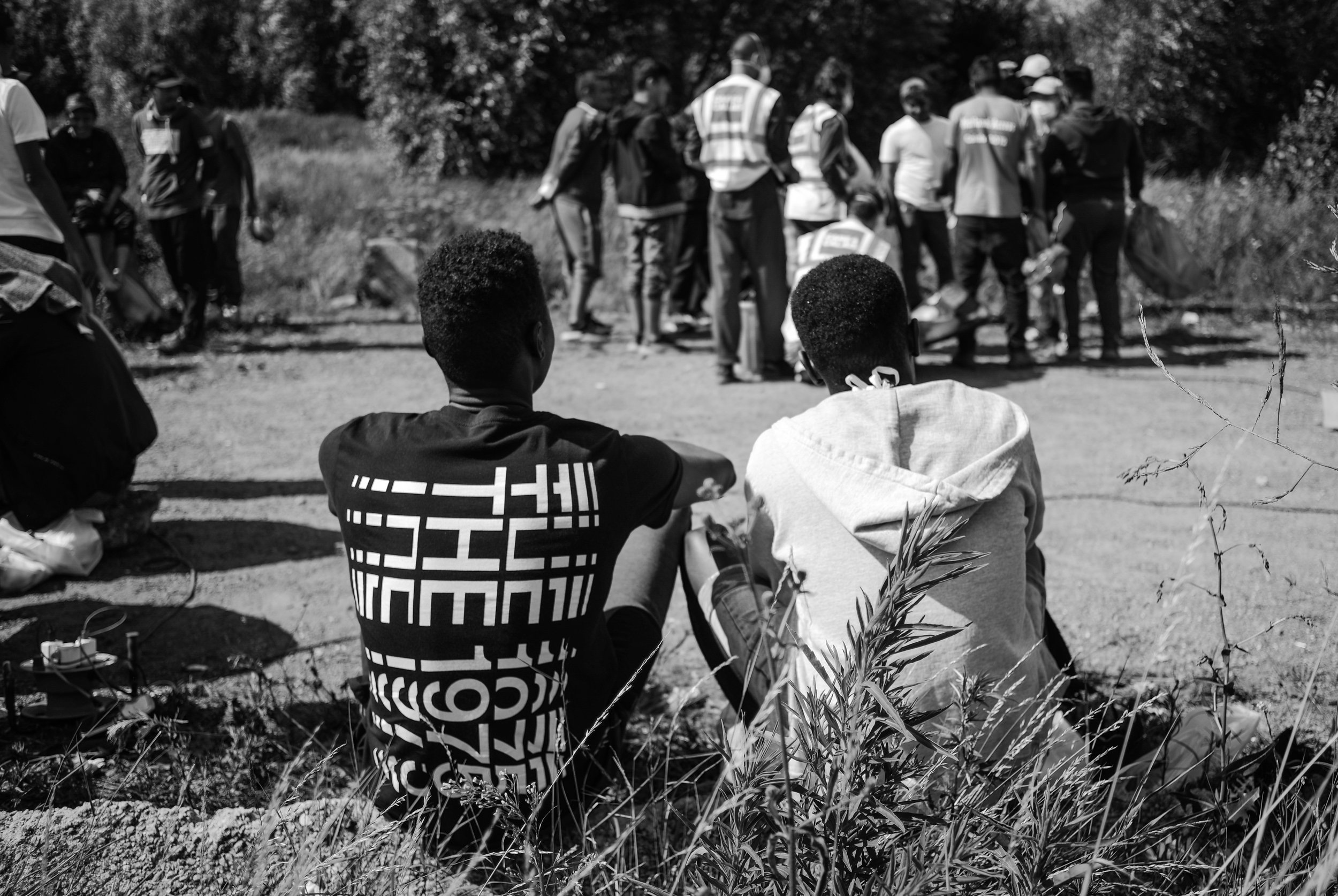
Photographing refugees in Calais produced a myriad of reactions. Some were very much against the idea of making a portrait, fleeing regime persecution. Other people want to pose, and would ask for the photos to be sent to them. Maybe a way to remember who they're with at this time? Who were those friends, those comrades, those shelters, those shoulders. Some of the people I met responded to my camera in ways I didn't expect, reacting as my friends and family would. Silly faces, hand gestures, funny postures. It made me question my own expectations. Of course they made silly faces! They're regular people just like those people at home. My mind had a narrative that was refreshingly unfulfilled. I feel blessed to have been afforded the opportunity to meet the people I did and blessed to have been allowed to attempt to document their experiences. But ultimately, I feel blessed I’m not a refugee. I'm glad I came to Calais. I didn't feel as though I did much, but I'm glad that I met these people. If only to say: I see you.
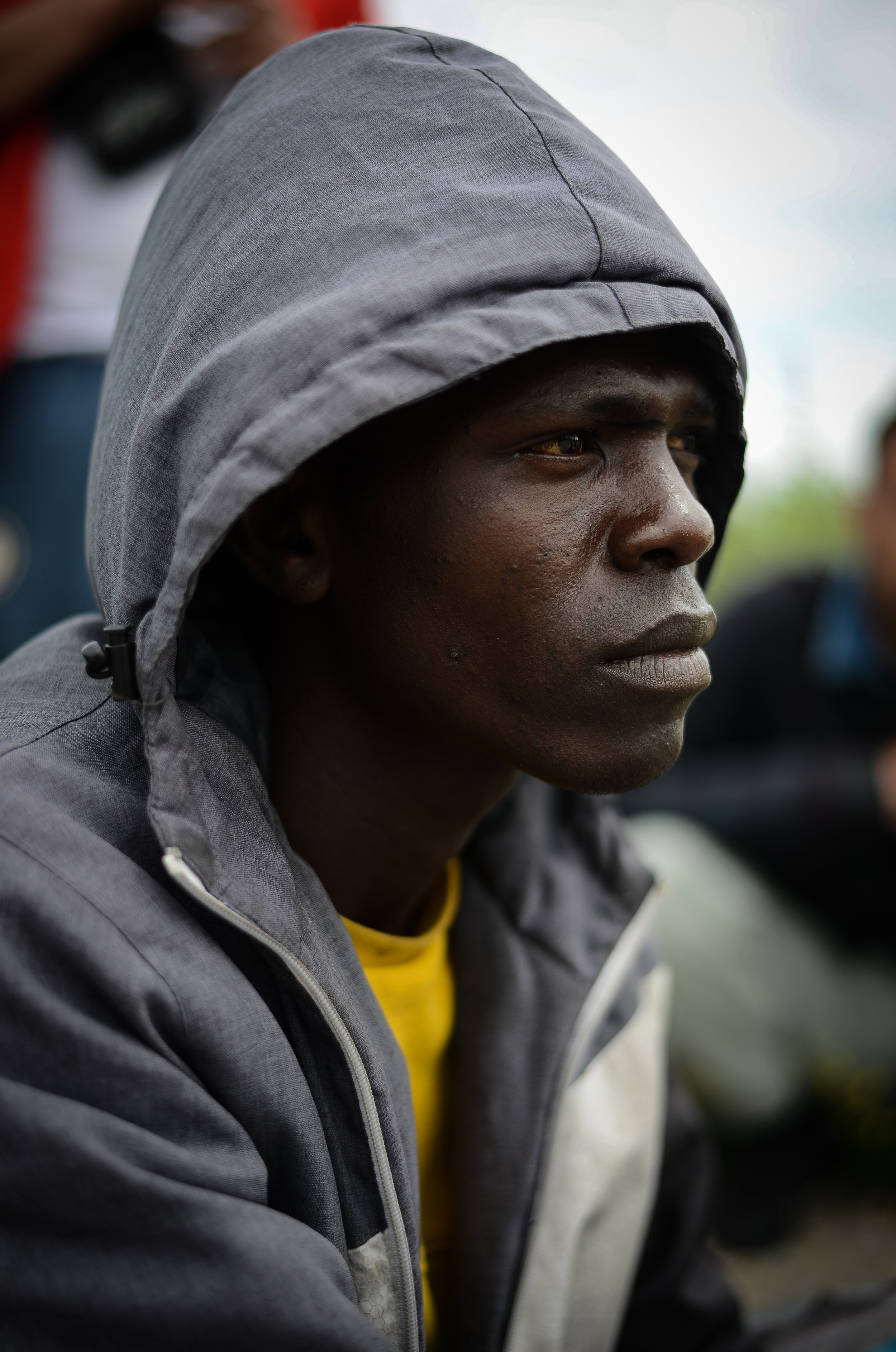
This amazing teenage boy from Niger (who was fluent in at least 3 languages) politely and calmly explained to me that his knee was injured by #police during the last big #eviction in Calais almost a month ago. They had shot him with a rubber bullet.
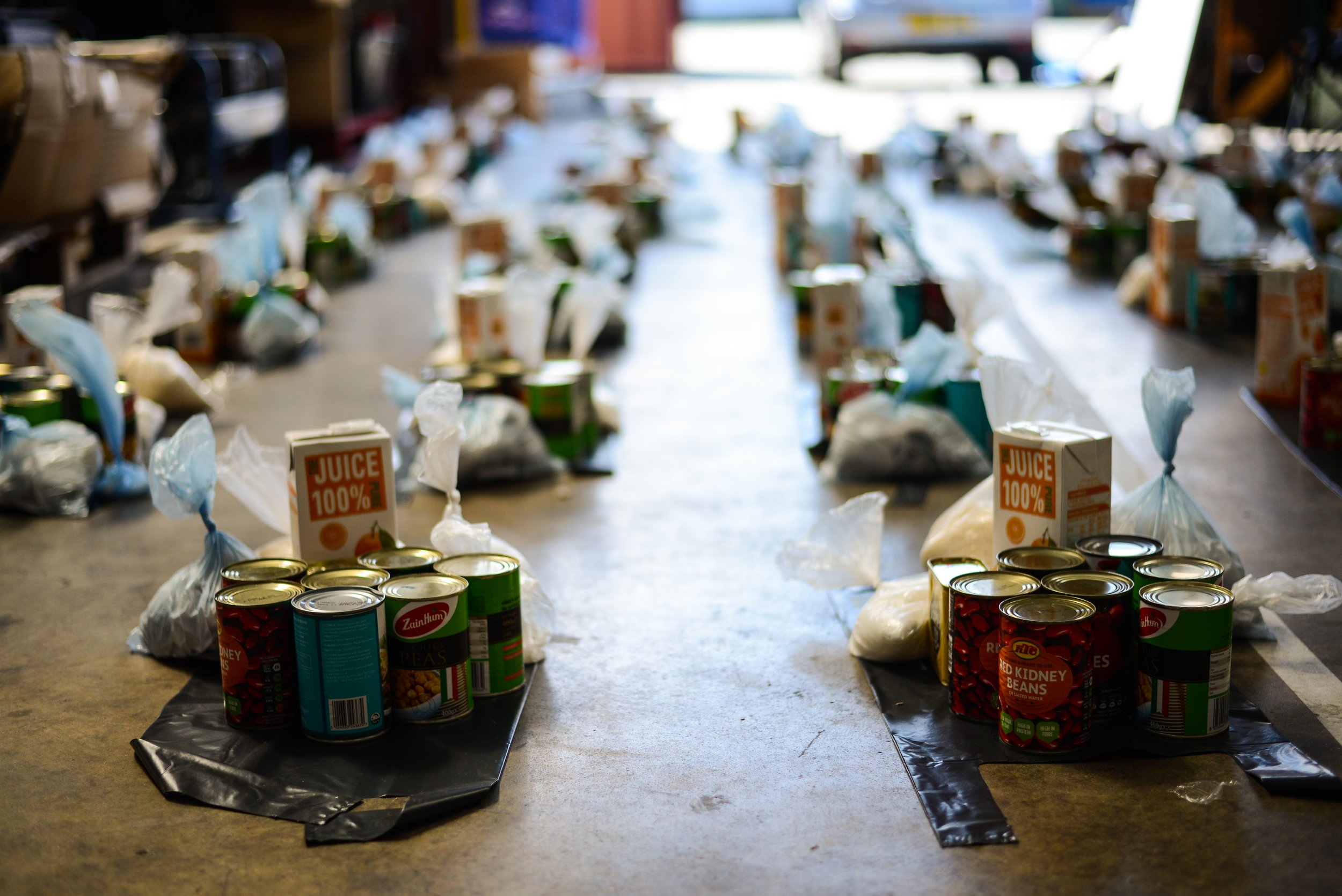
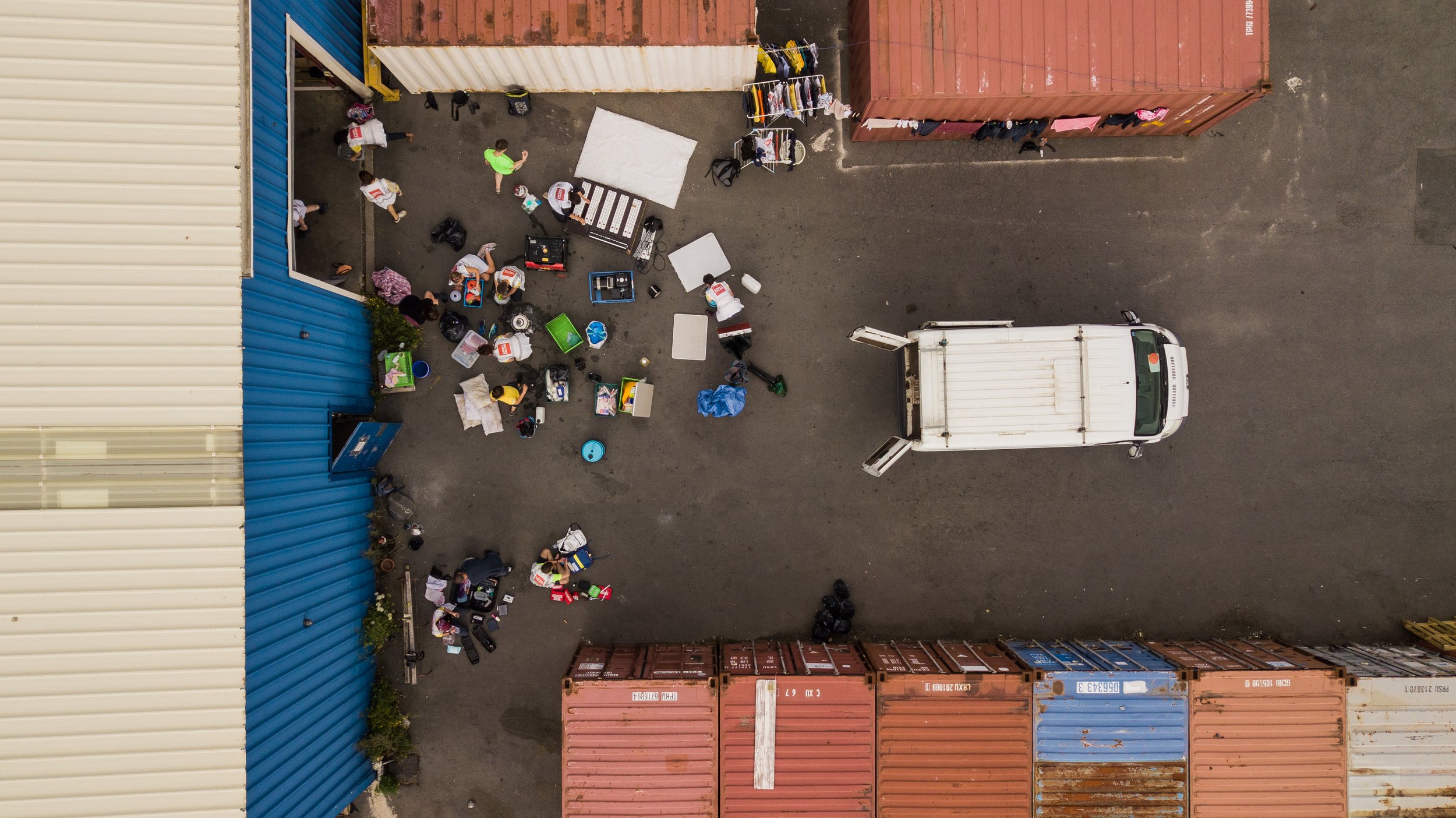
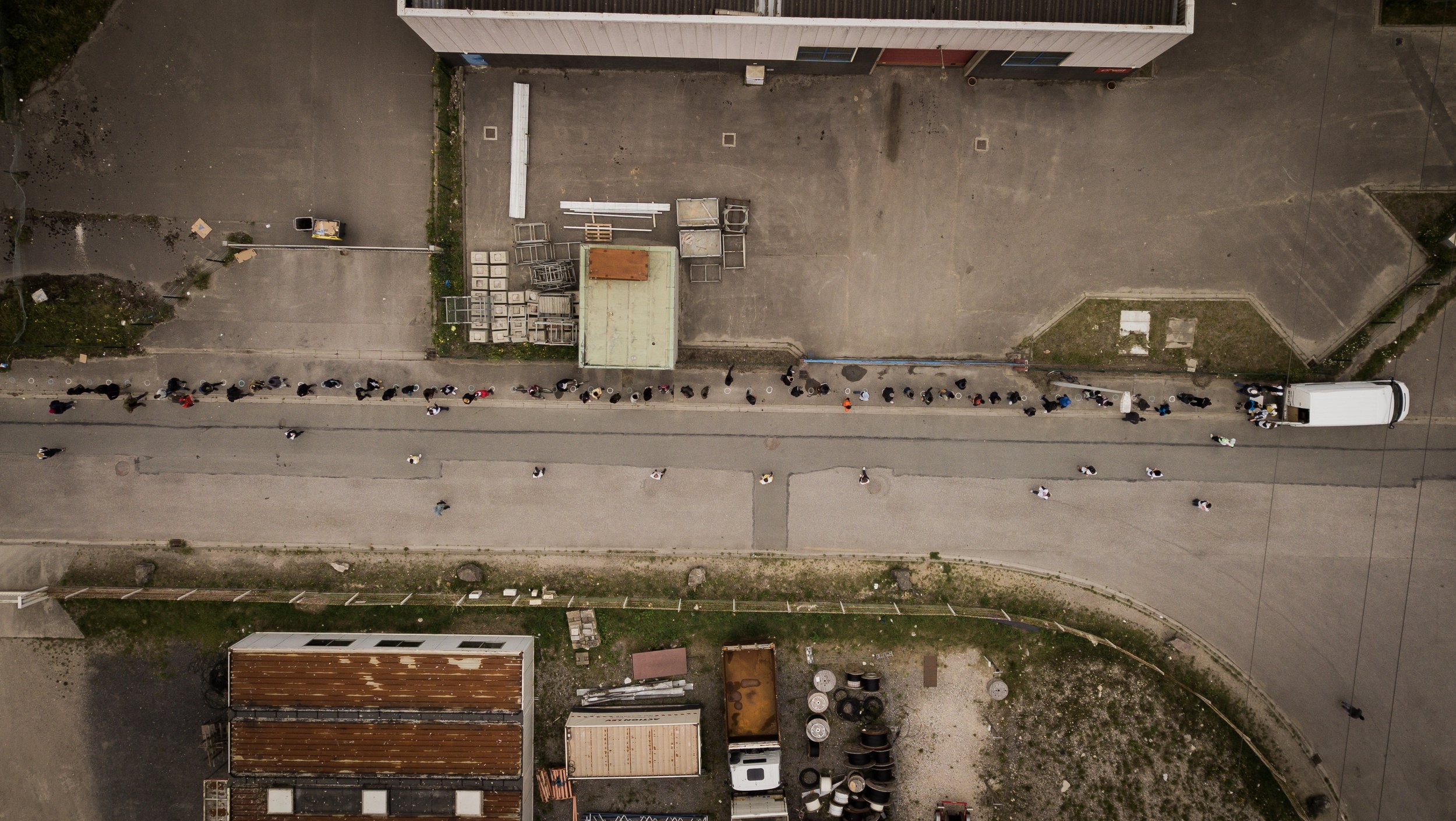
A long line of men, mostly from Sudan, queue patiently as they wait for local charity organisation @care4calais to distribute items (whether it be clothing, food or other essentials) .
Each refugee 'site' around Calais is home to a particular community. The people that reside within them are both surrounded by some form of familiarity and utterly alone.
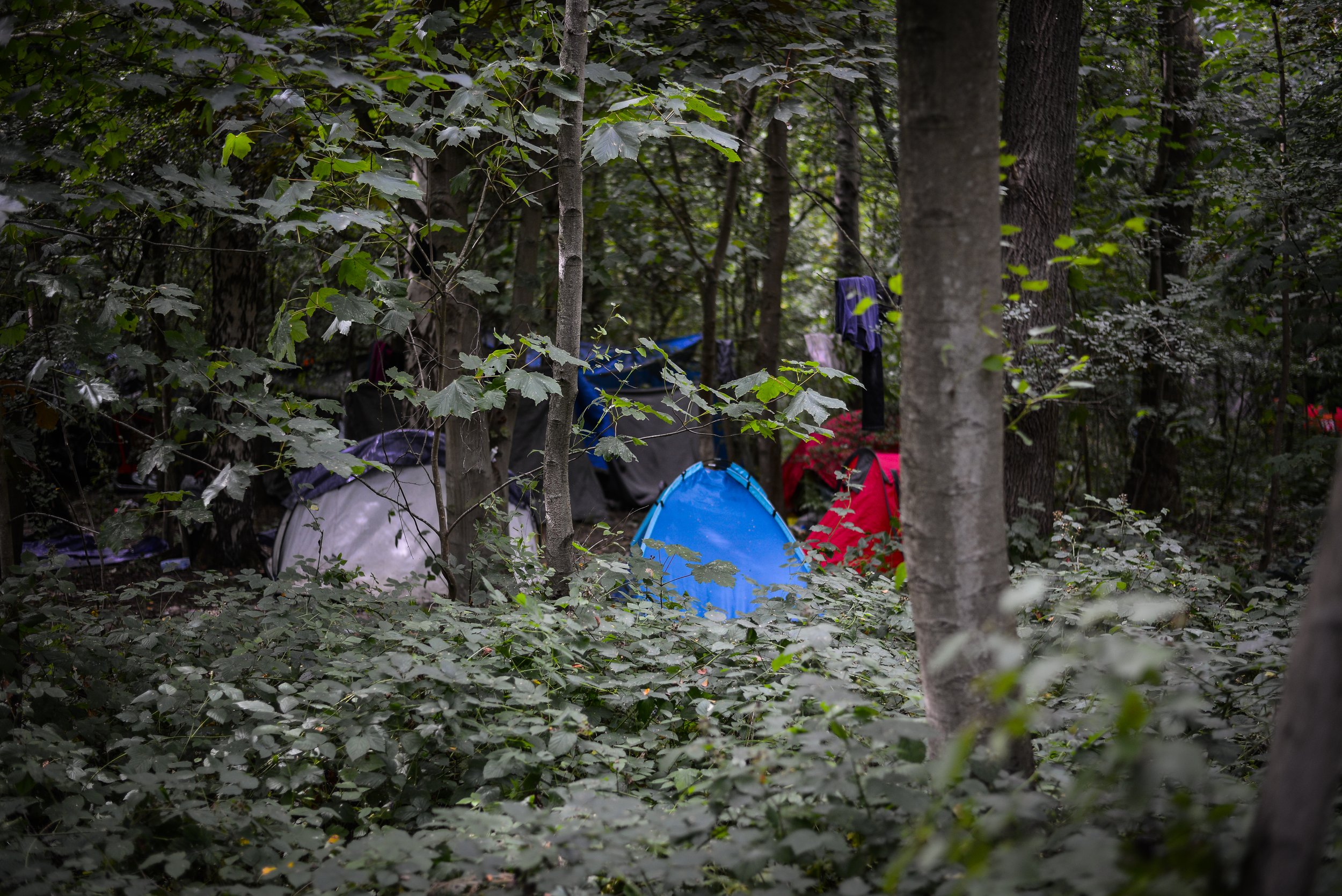
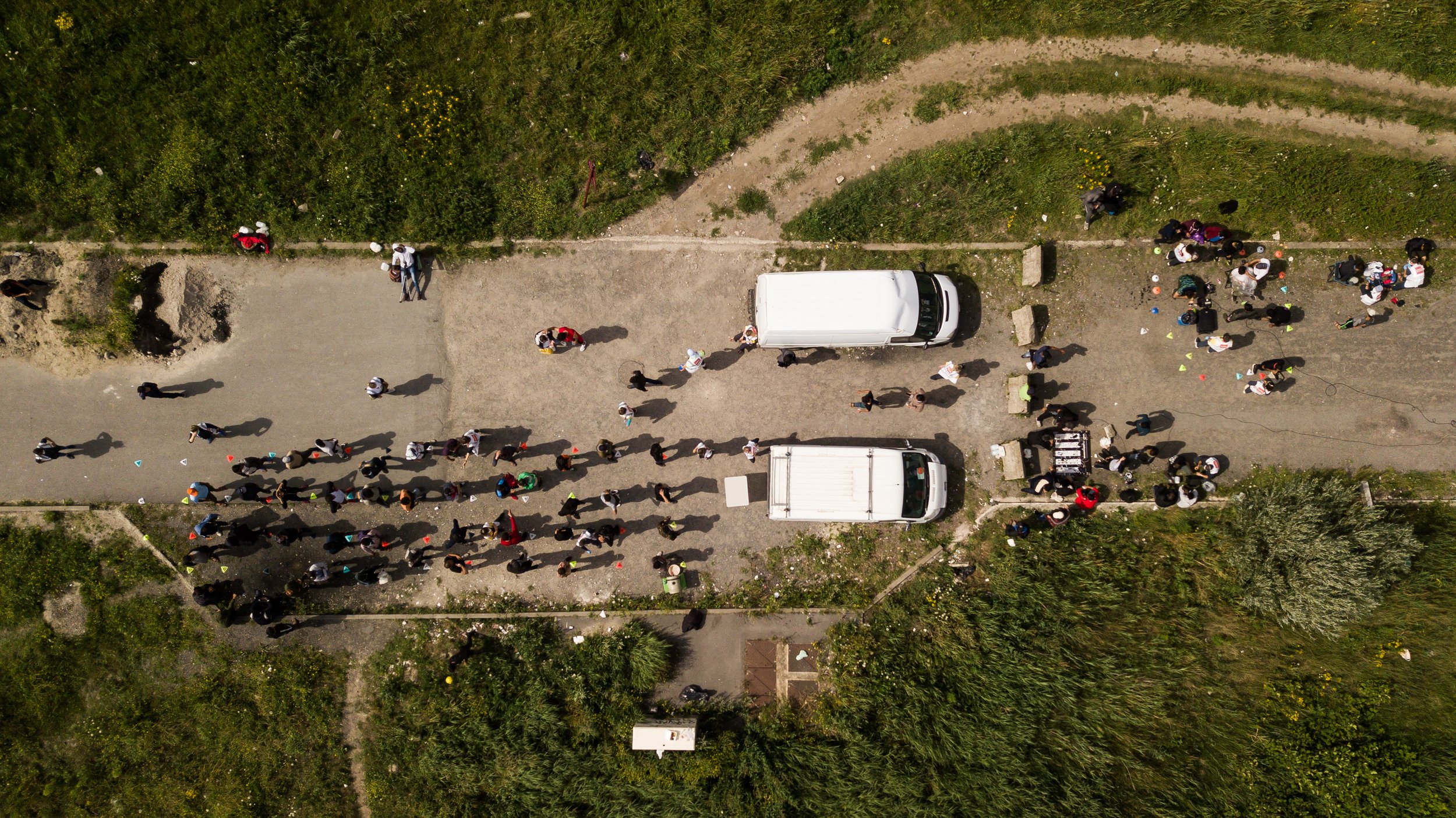
At the 'Afghani Hospital' site, people wait for a variety of services, such as first-aid, haircuts and hot drinks.
Care4Calais prep everything for distribution and services from their warehouse in the morning, before meeting refugees in the afternoon.
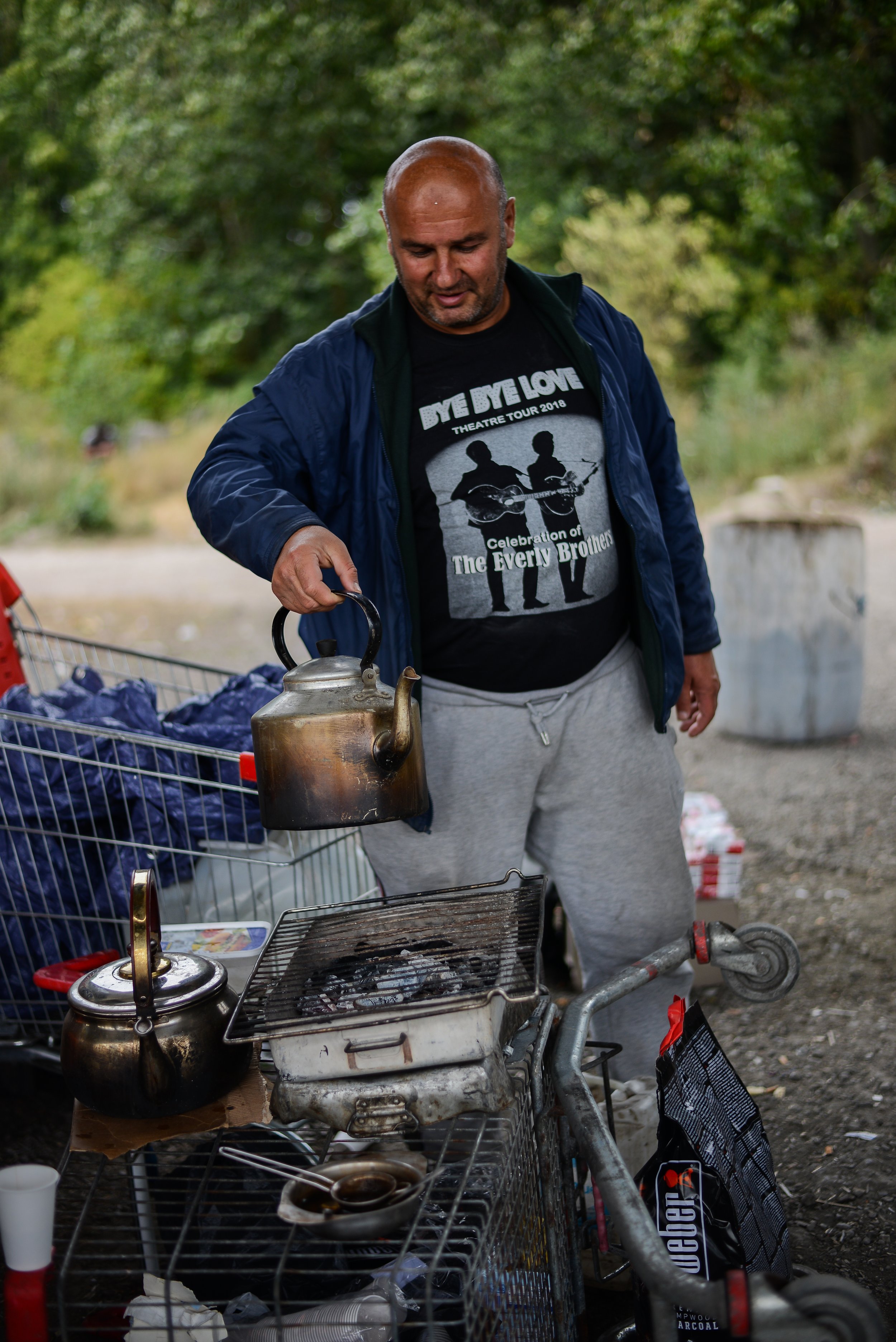
A Kurdish man makes hot water for coffee on his make-shift stove in Dunkirk. I first saw him praying outside his tent which was beneath a bridge, next to railway tracks. He was smiley.
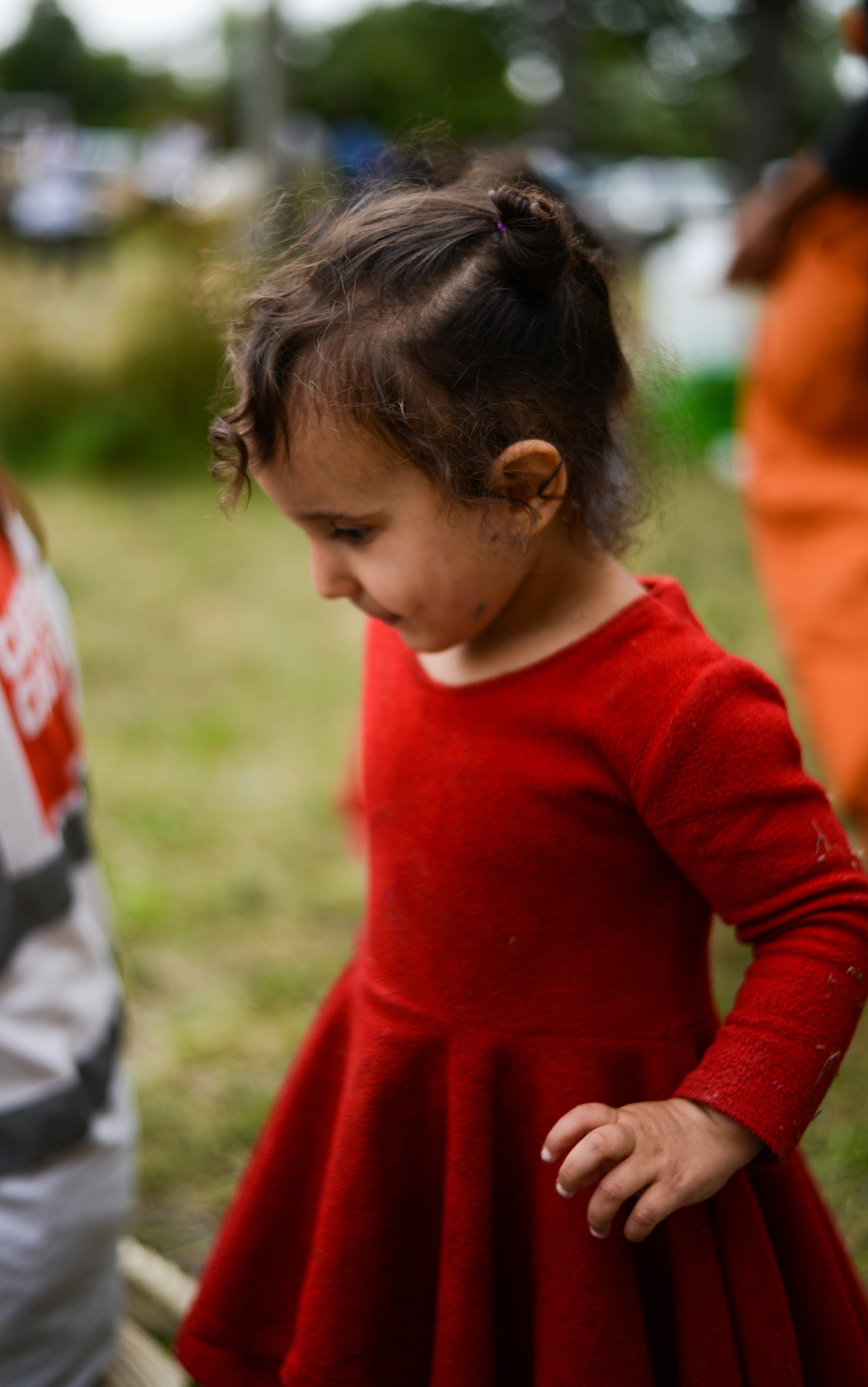
The Kurds don't have an official nation state. They're a people, with their own culture and language, spread mostly across Iraq, Iran, Syria and Turkey and have been persecuted for many years in the Middle East.
On the Dunkirk site there are lots of Kurdish families, some with very young children. These girls played for an hour or so with toys (their adult gave me permission to take these photos) and they seemed to have fun.
A difficult realisation that, after the playing, they would be going back to their tents in an unsecured area in Dunkirk, dangerous for adults, let alone infants.
It highlights the desperation of these people to find a new home for their families. No parent would willingly put their child at this much risk unless they absolutely had to.
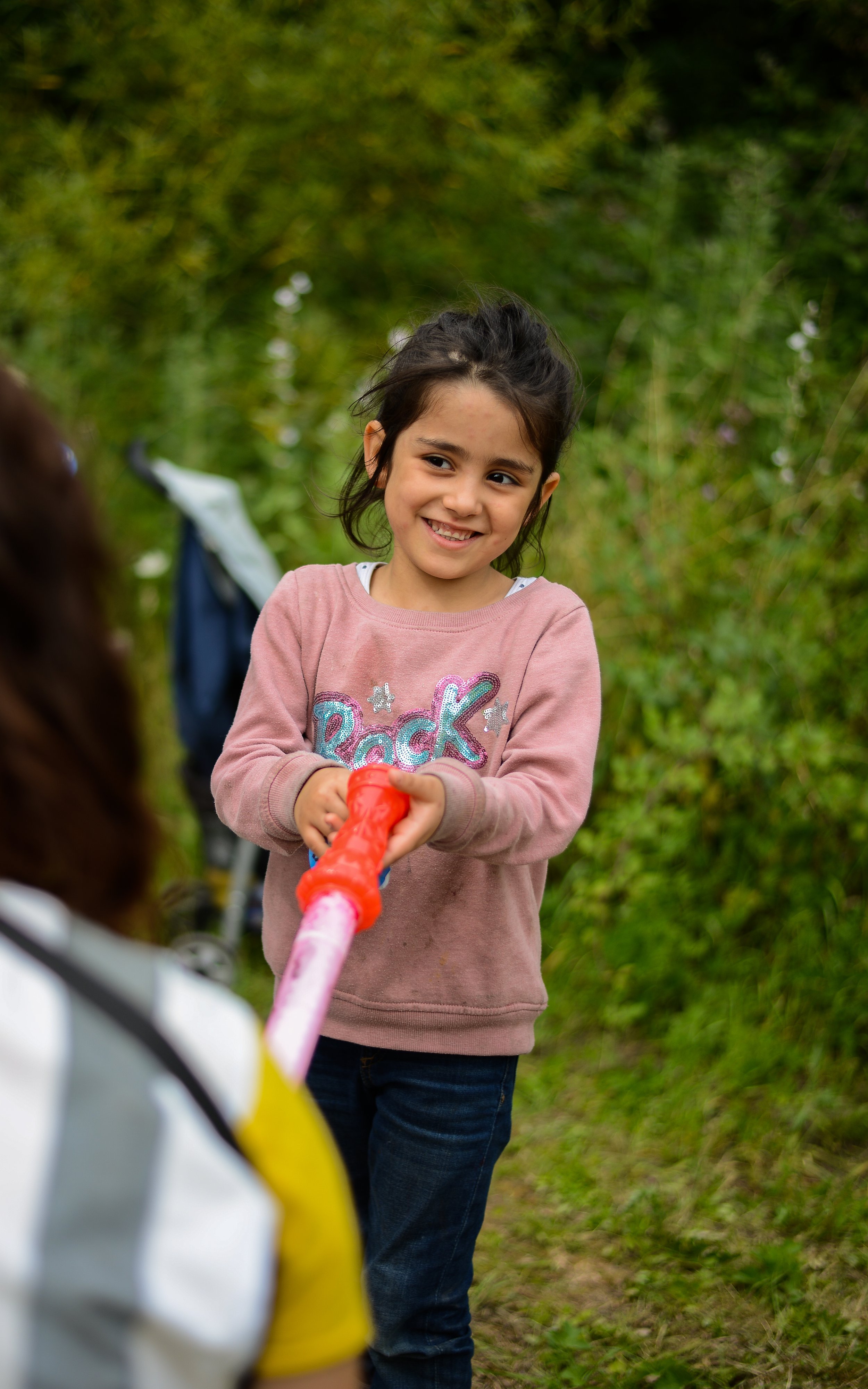
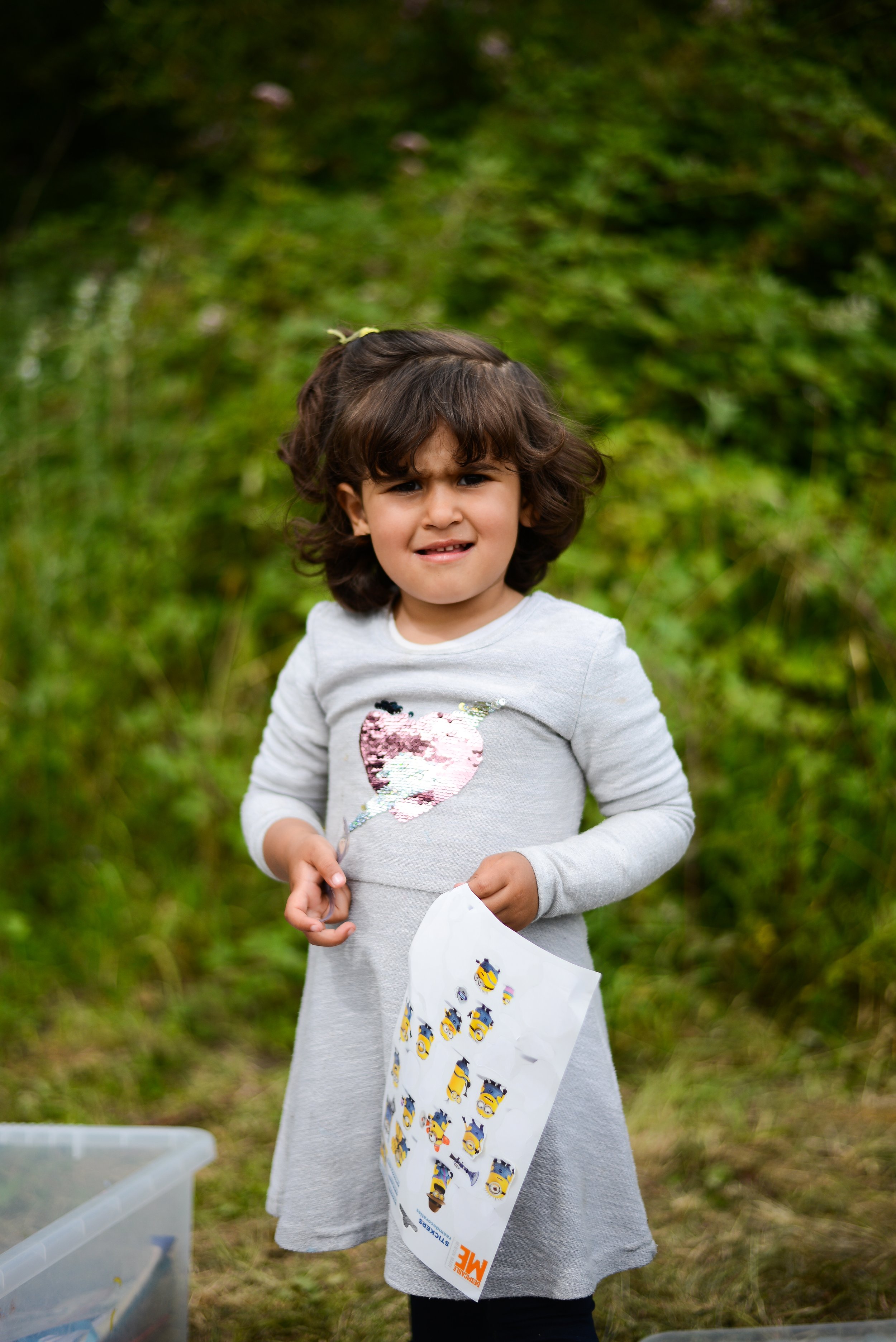
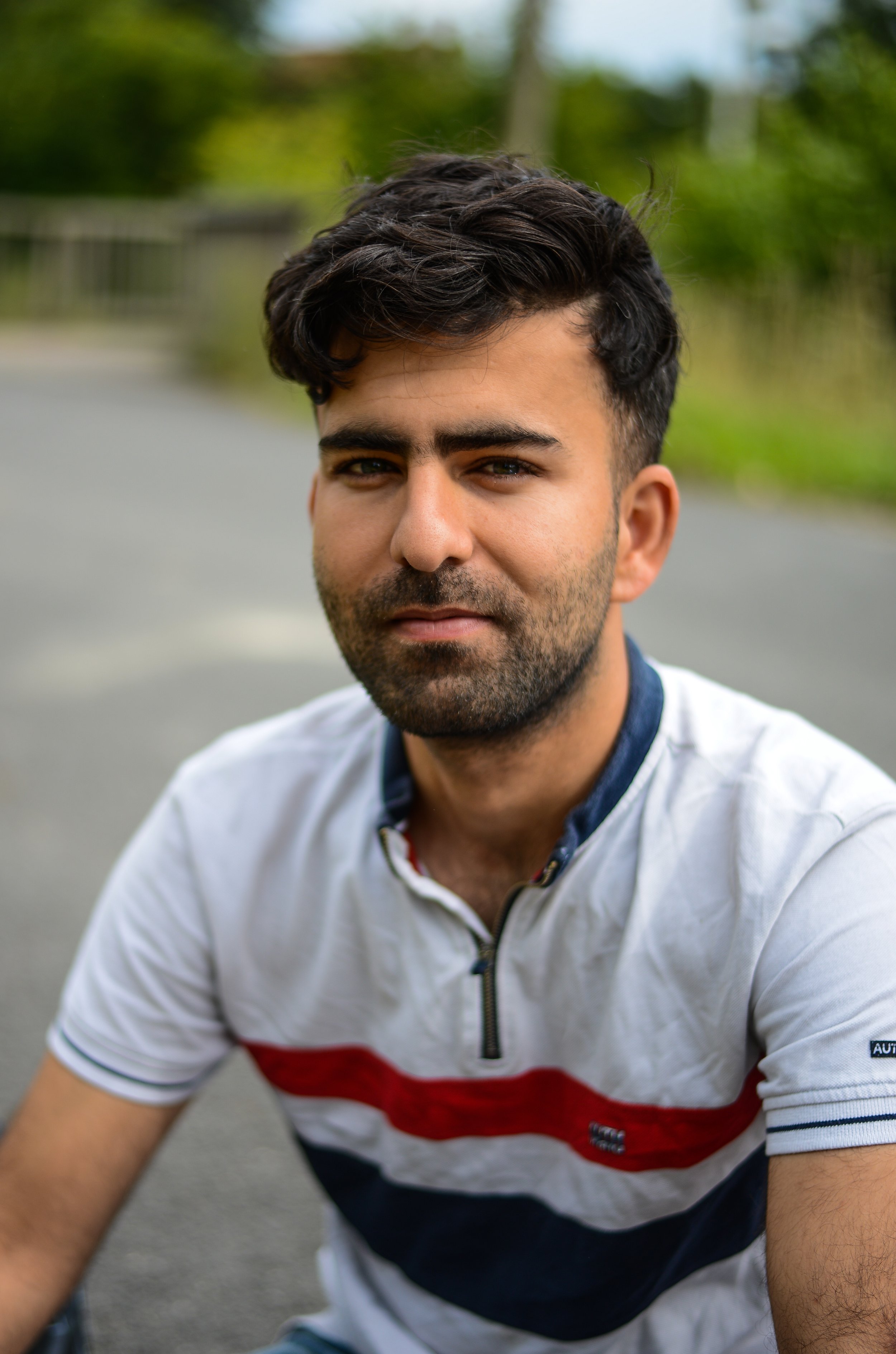
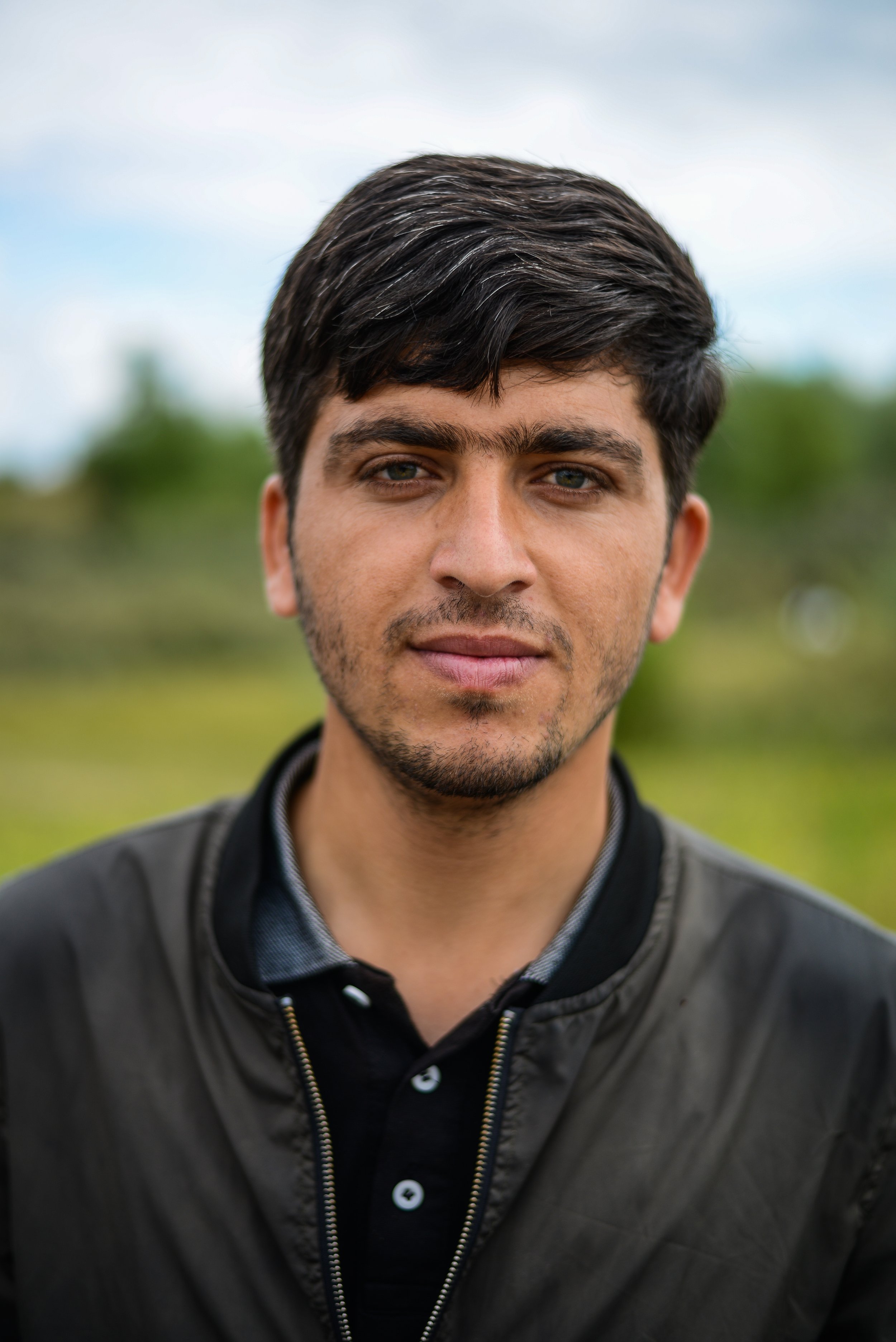
Afghani men and boys living within the same site in Calais. I found the vast majority of the people I encountered here to be affable and communicative; almost playful. Some of them reminded me of friends at home.
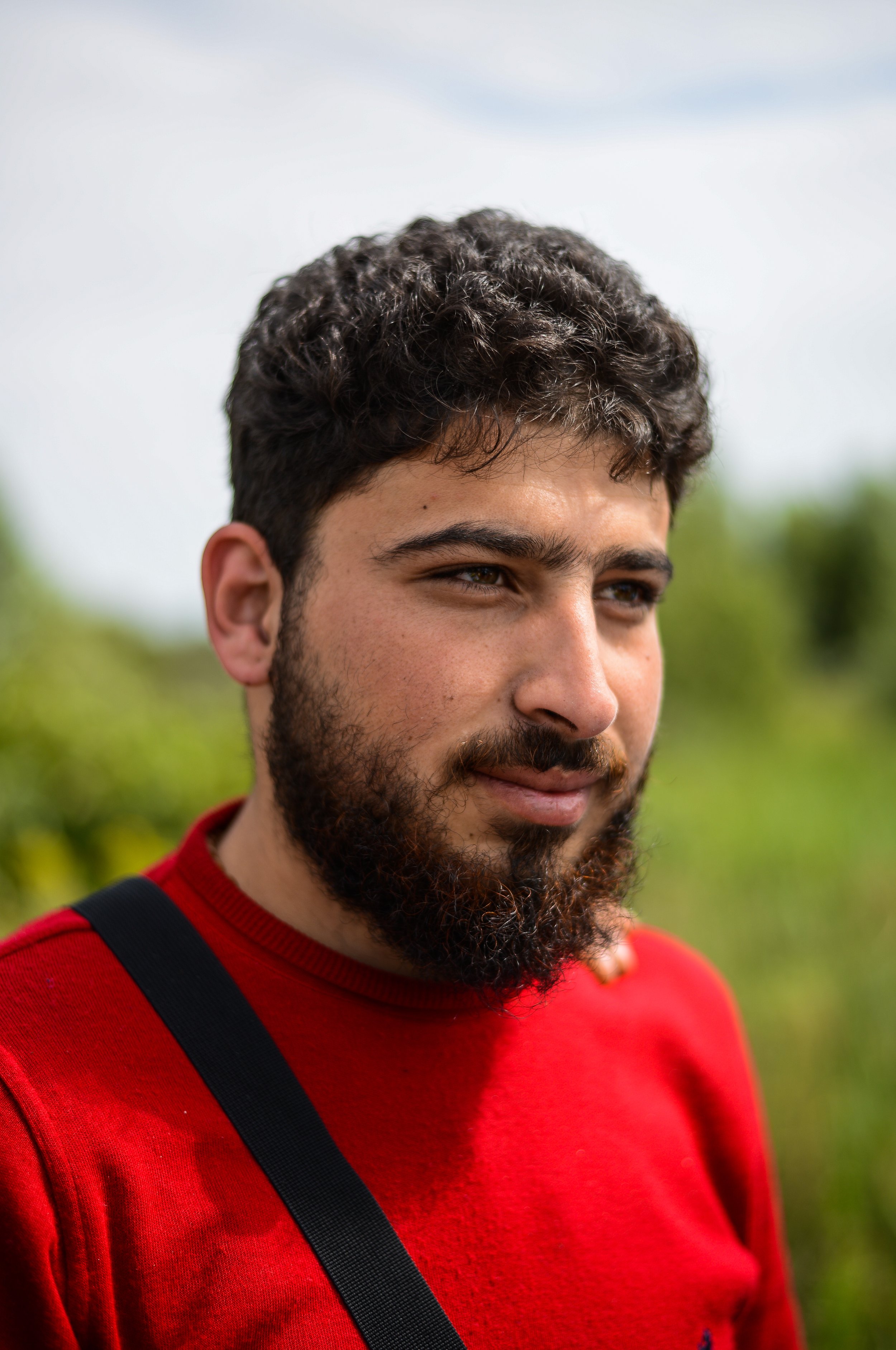

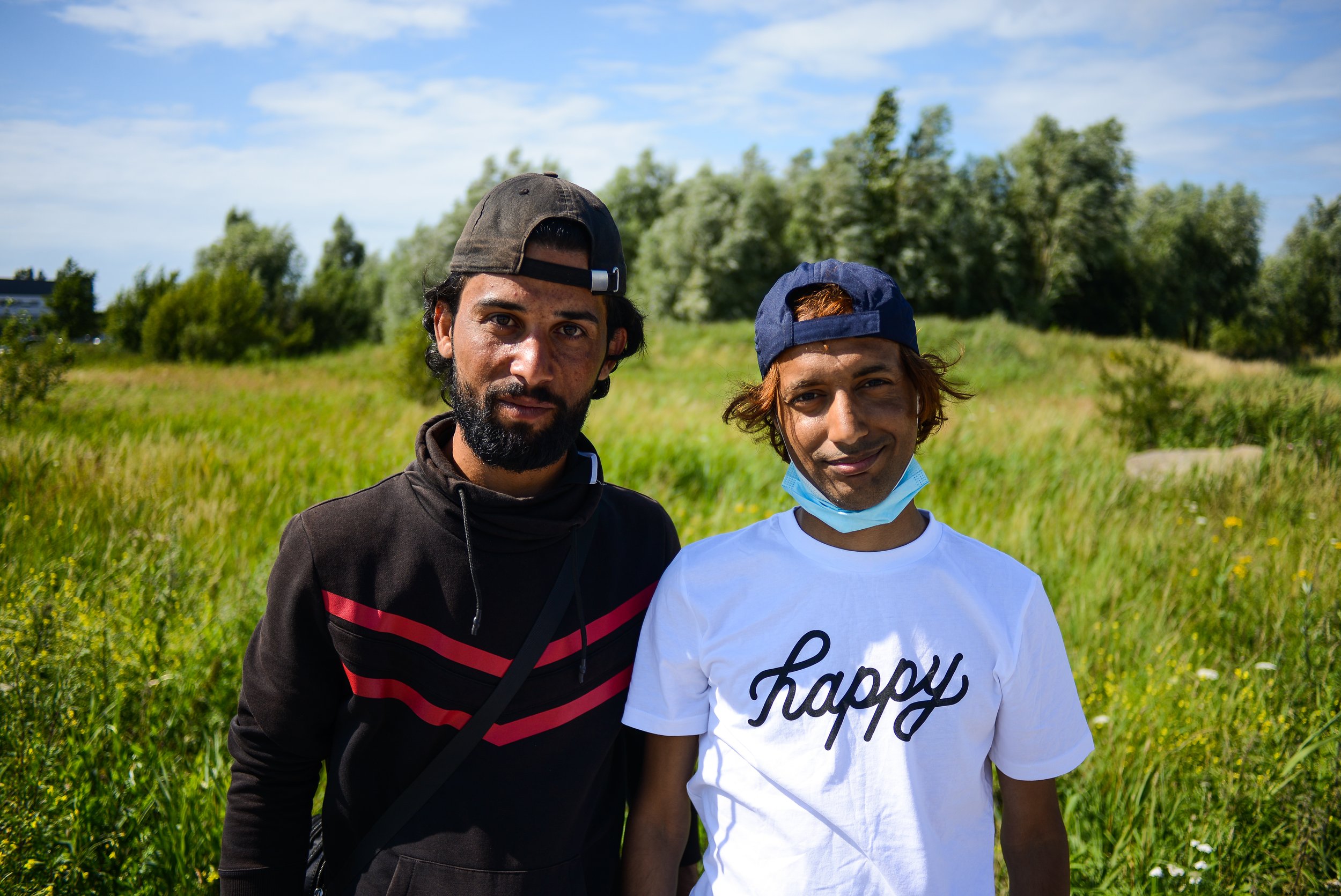
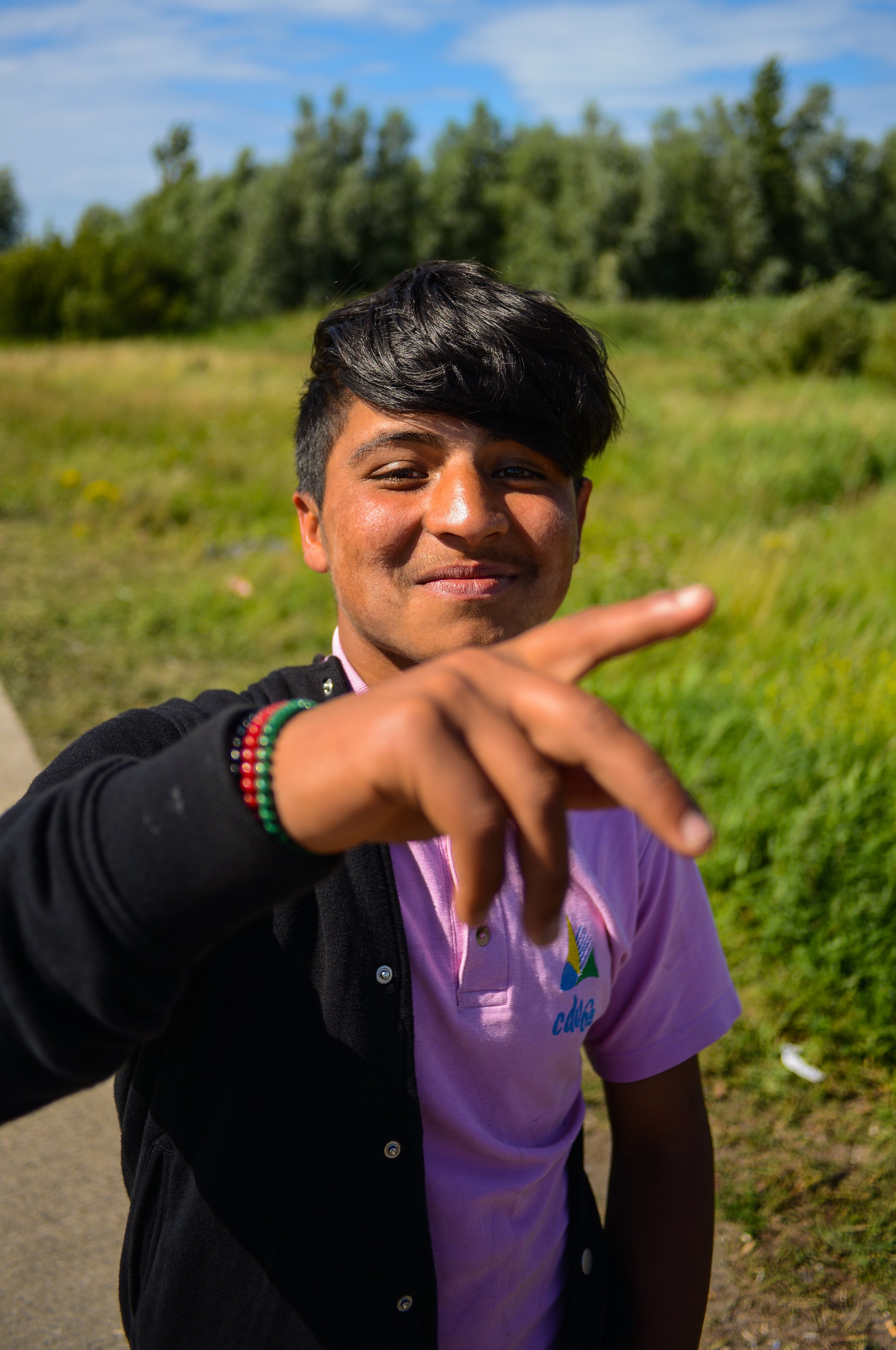
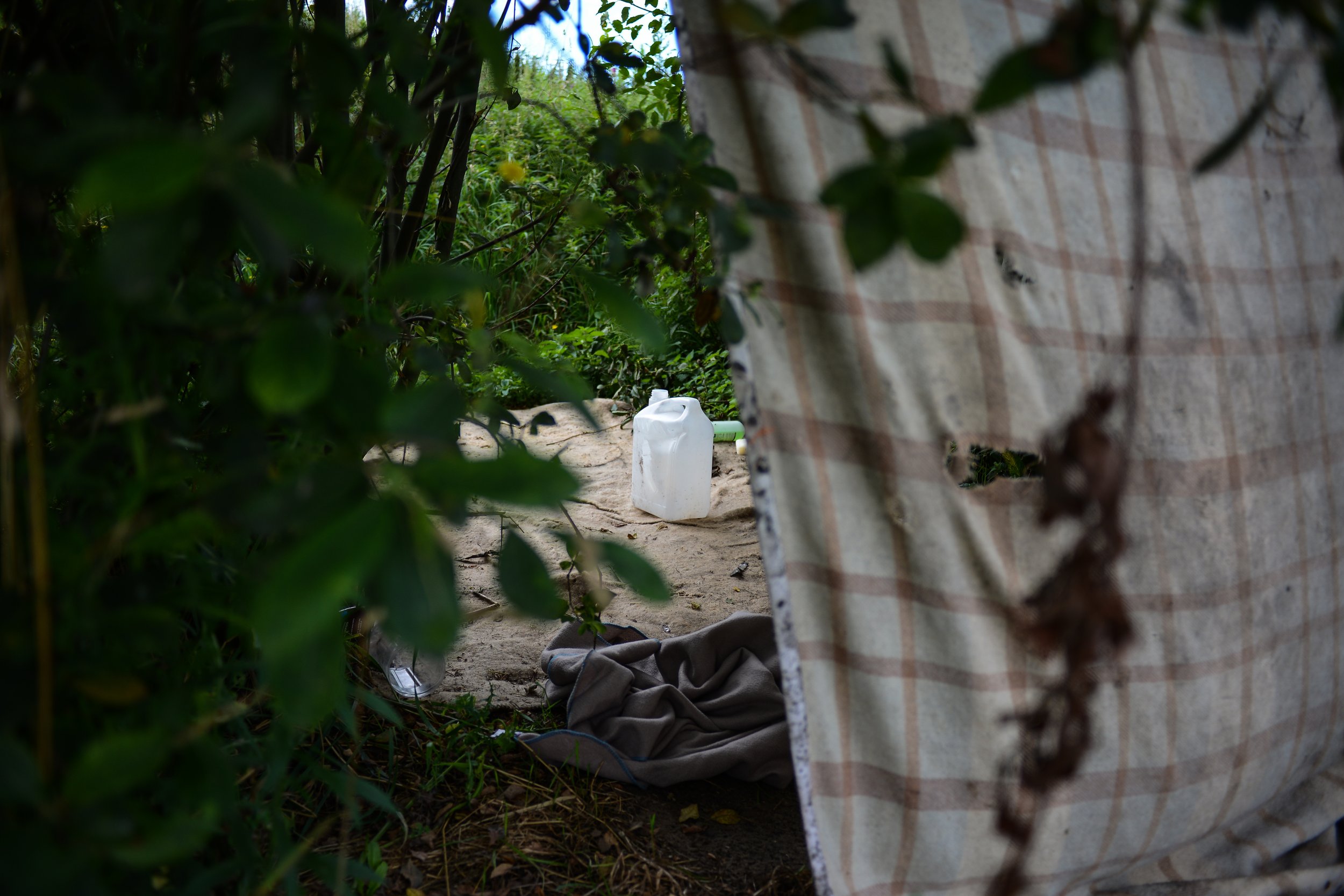
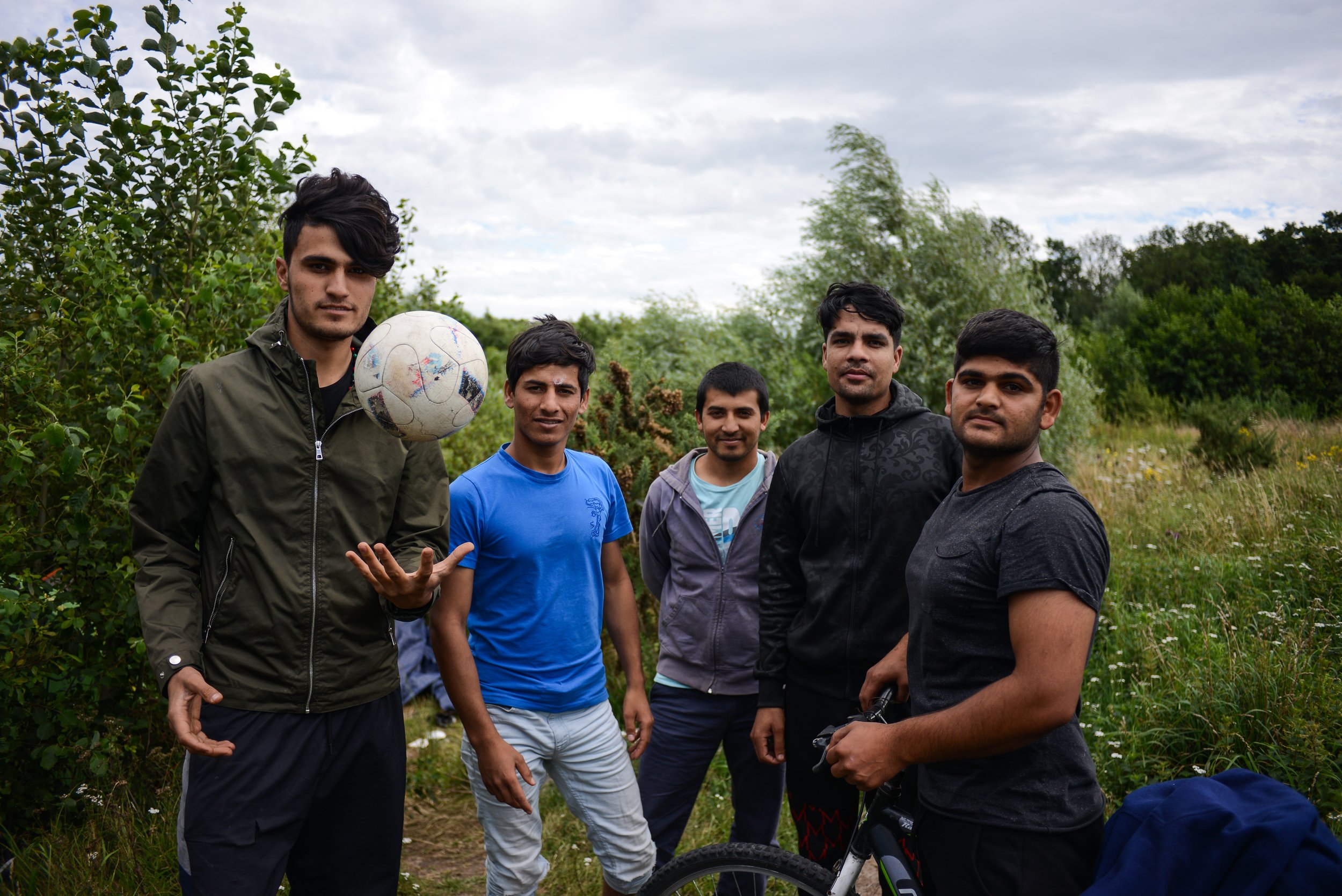
A group of 5 boys from Afghanistan (the youngest 15 and the eldest 18) travelled together for approximately a year across Europe to reach Calais, mostly by foot.
They were friendly and welcoming but were bemused Care4Calais didn't bring a cricket set this time. I didn't know cricket was so popular in Afghanistan!
It was pretty shocking to see people so young travelling unaccompanied across such a distance, but they clearly supported each other in their make-shift camp.
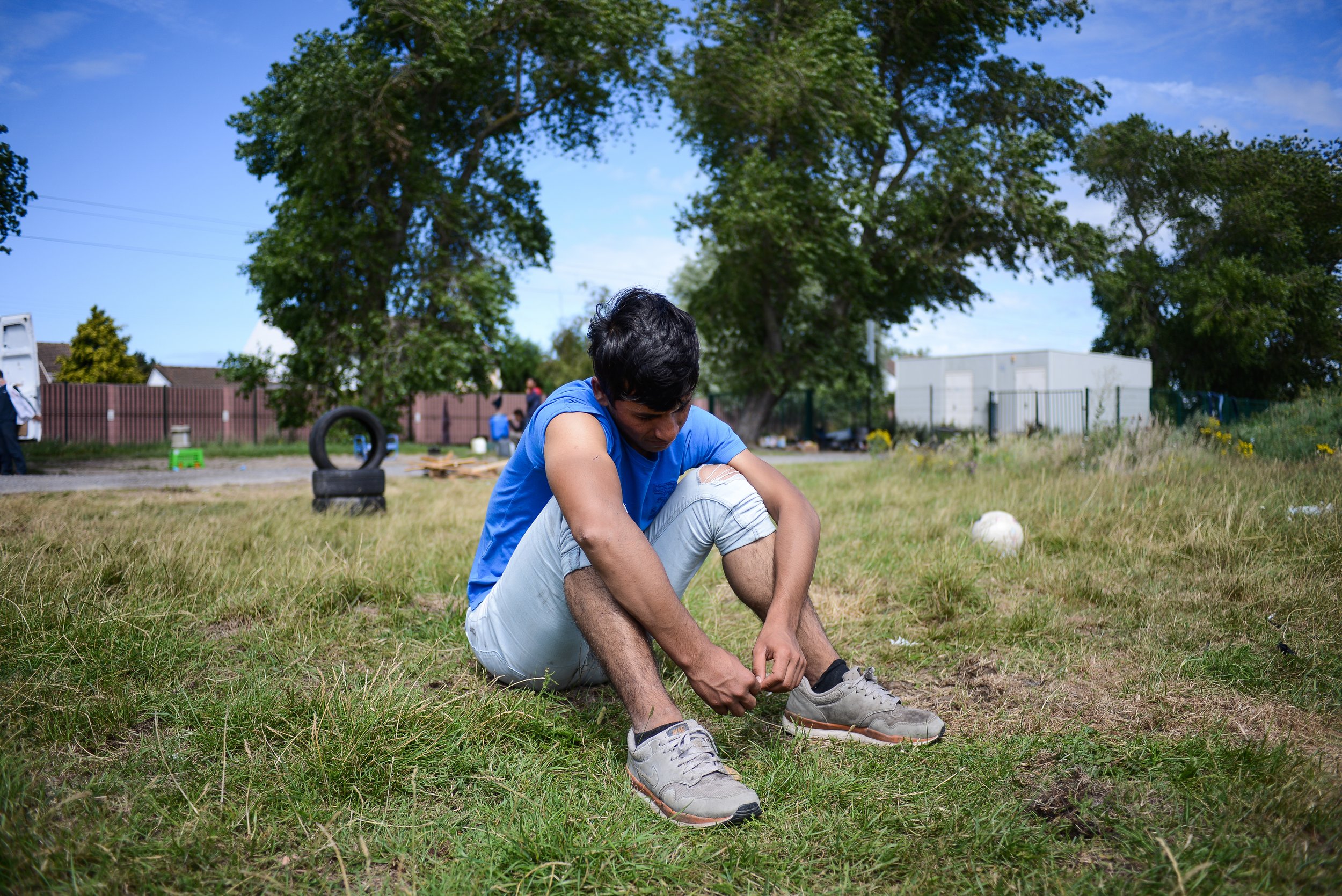
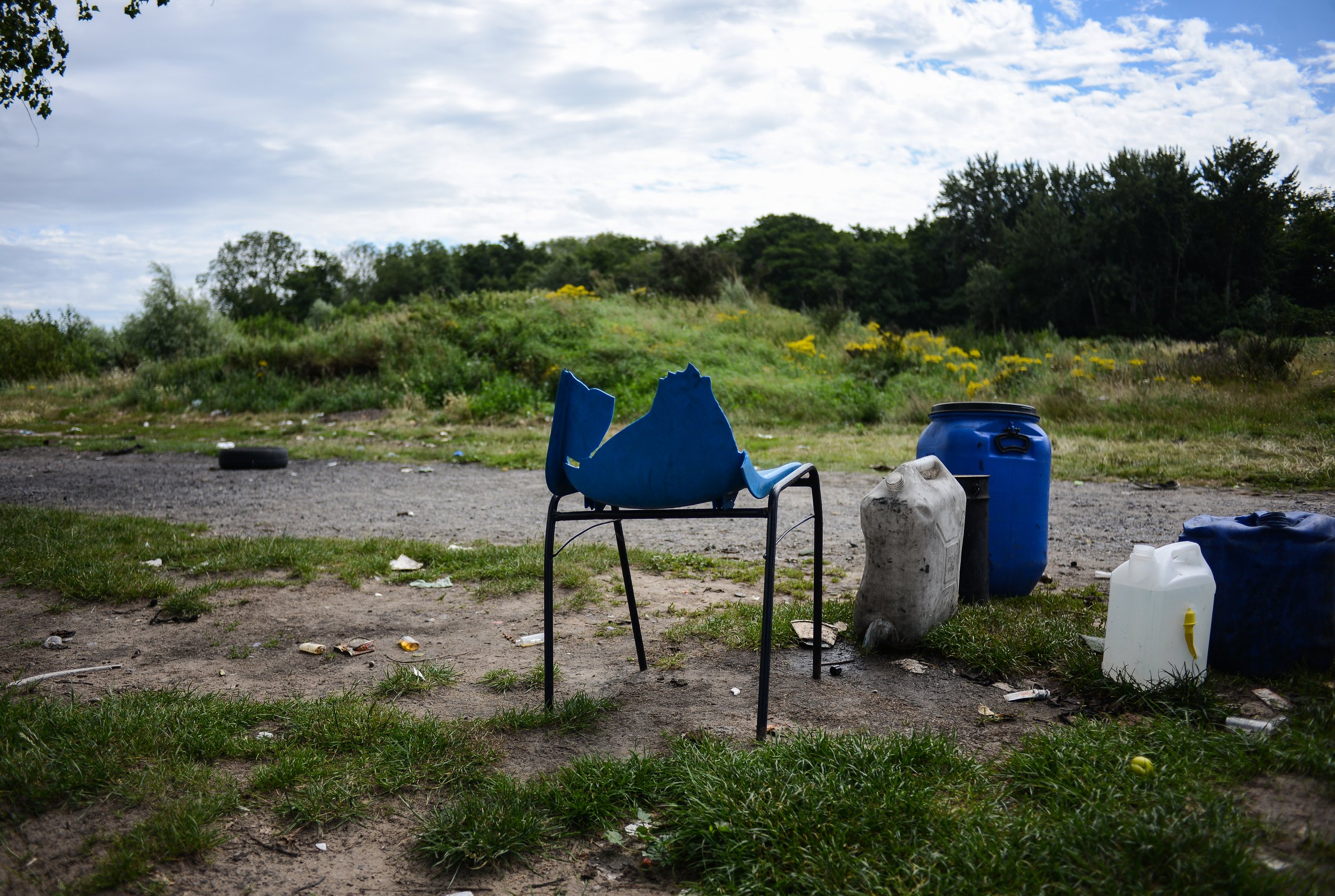
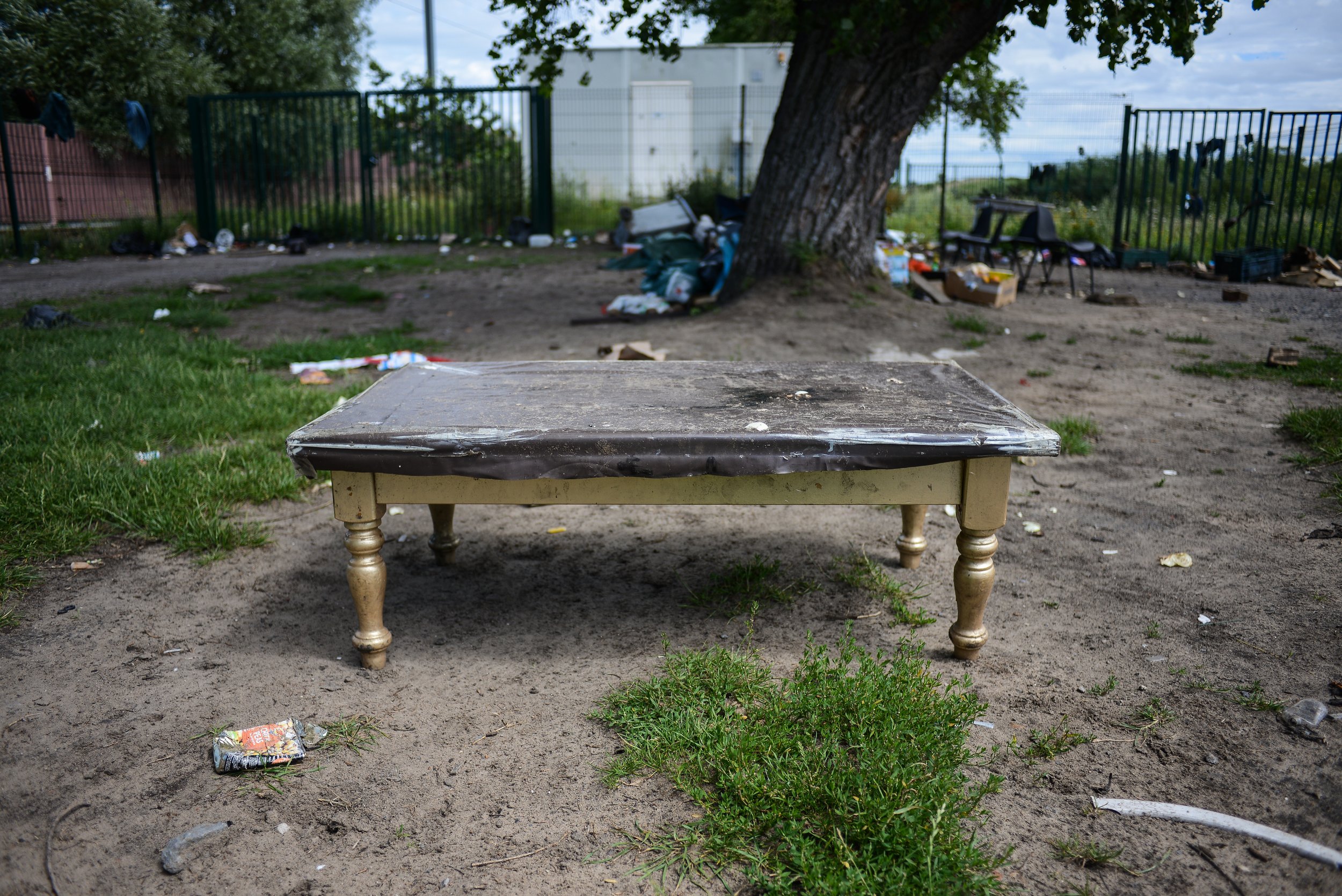
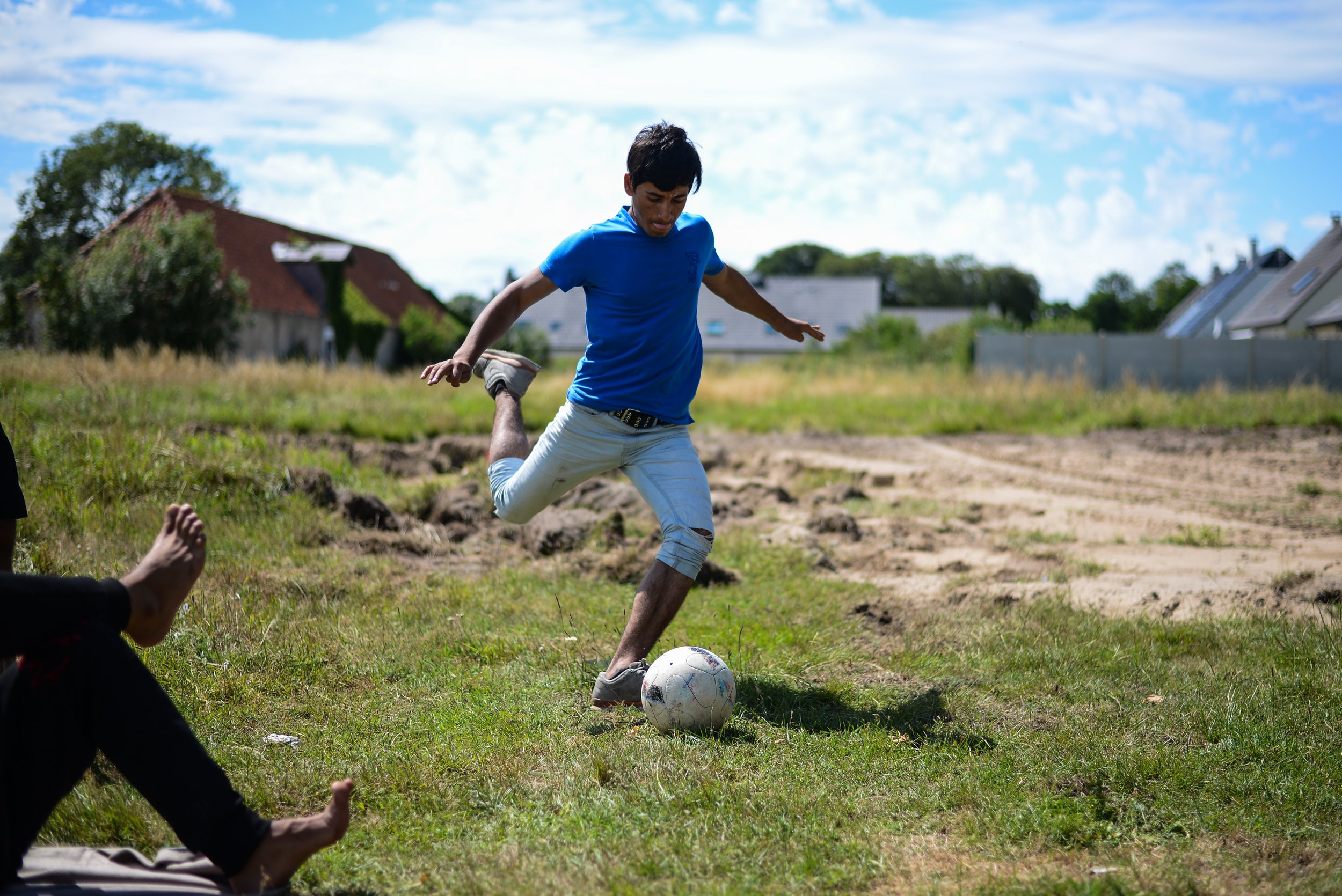
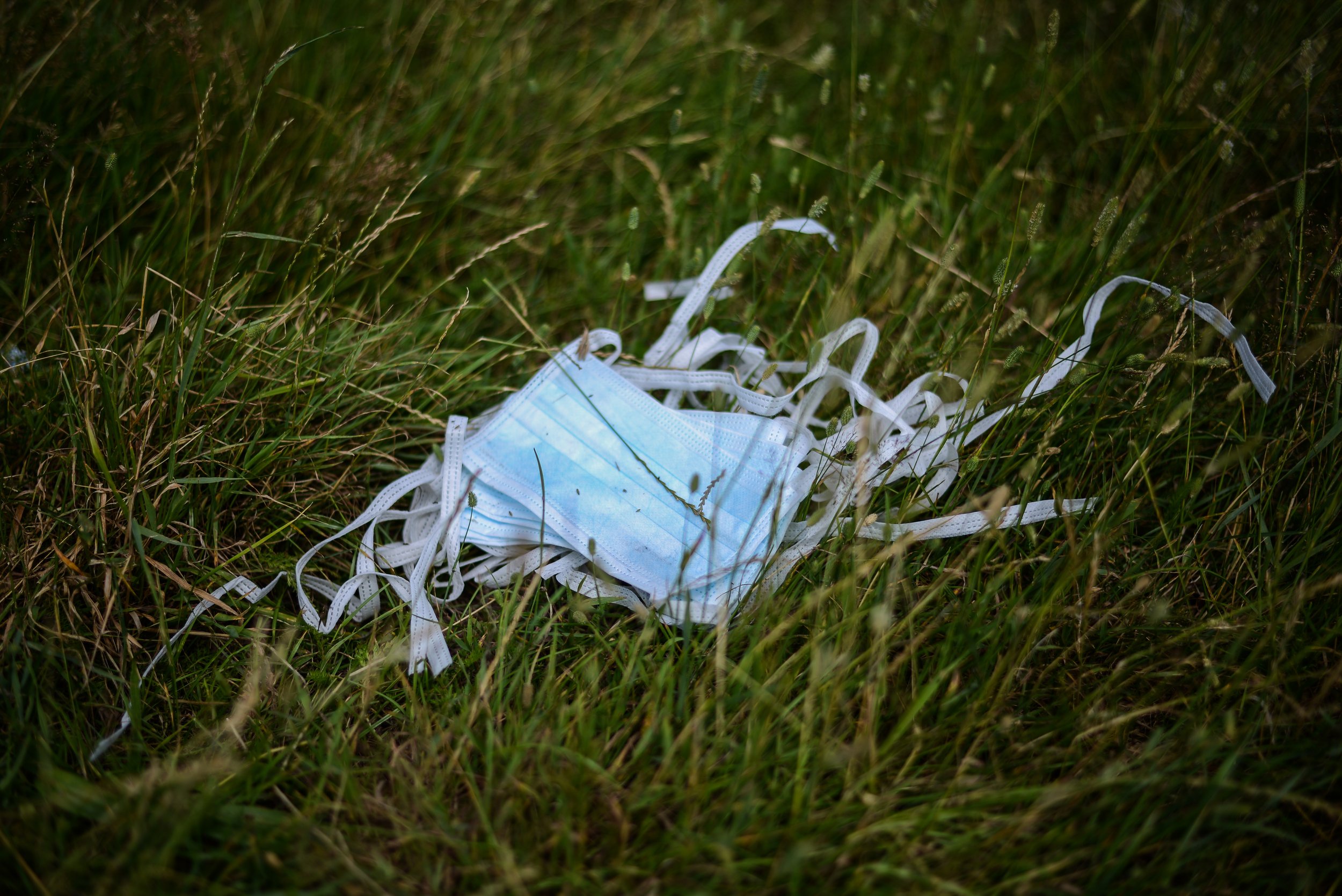
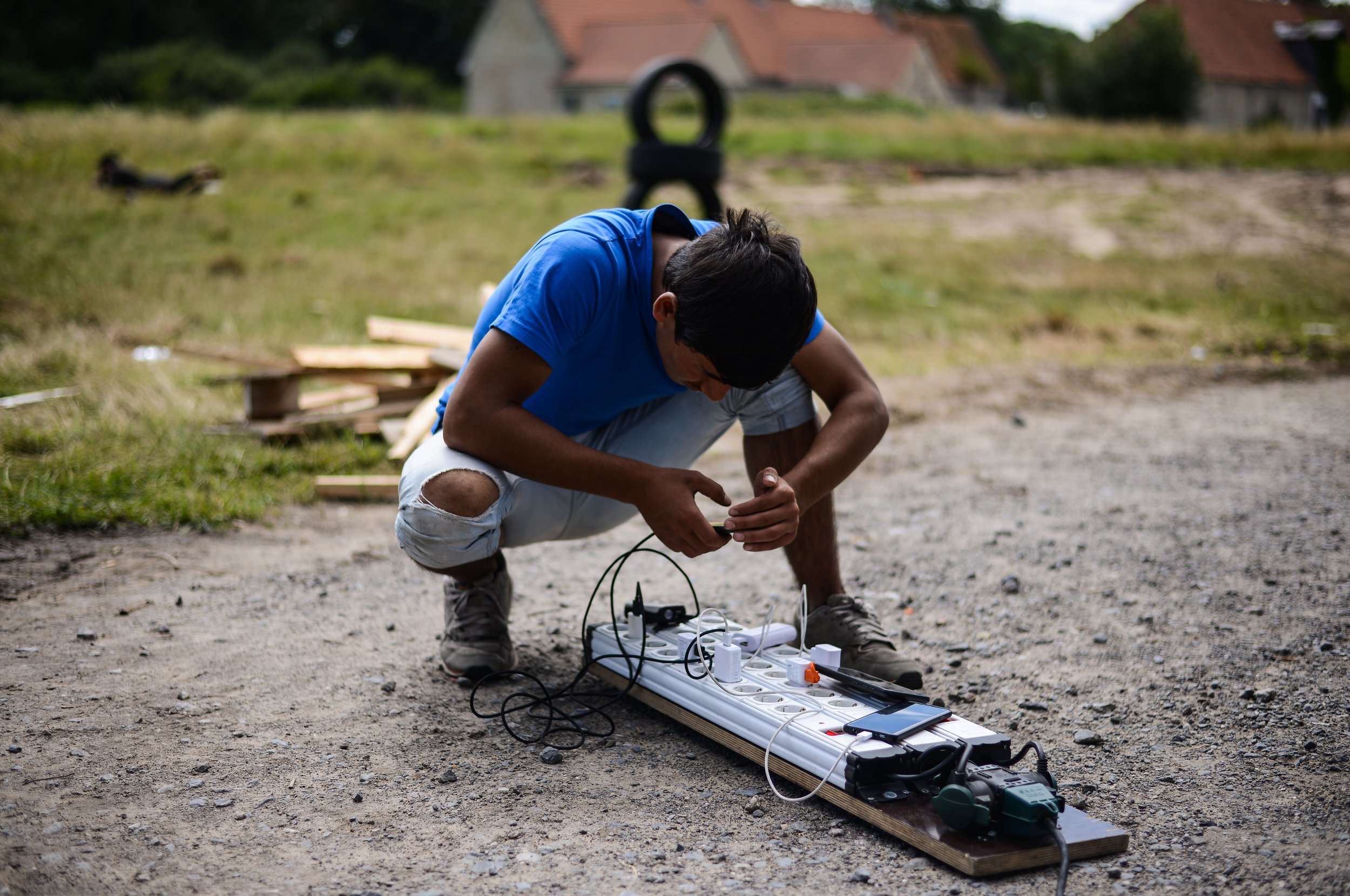
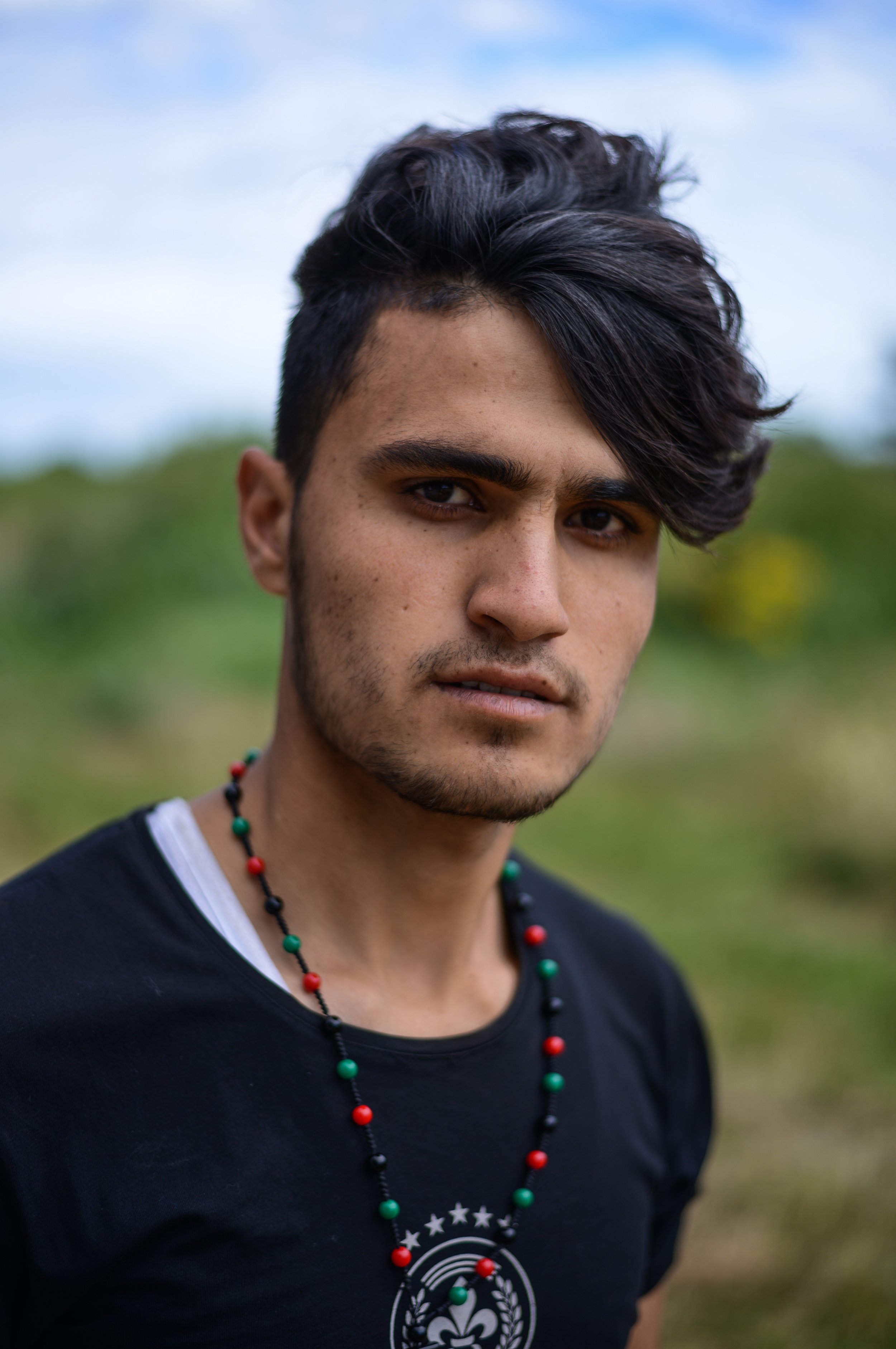
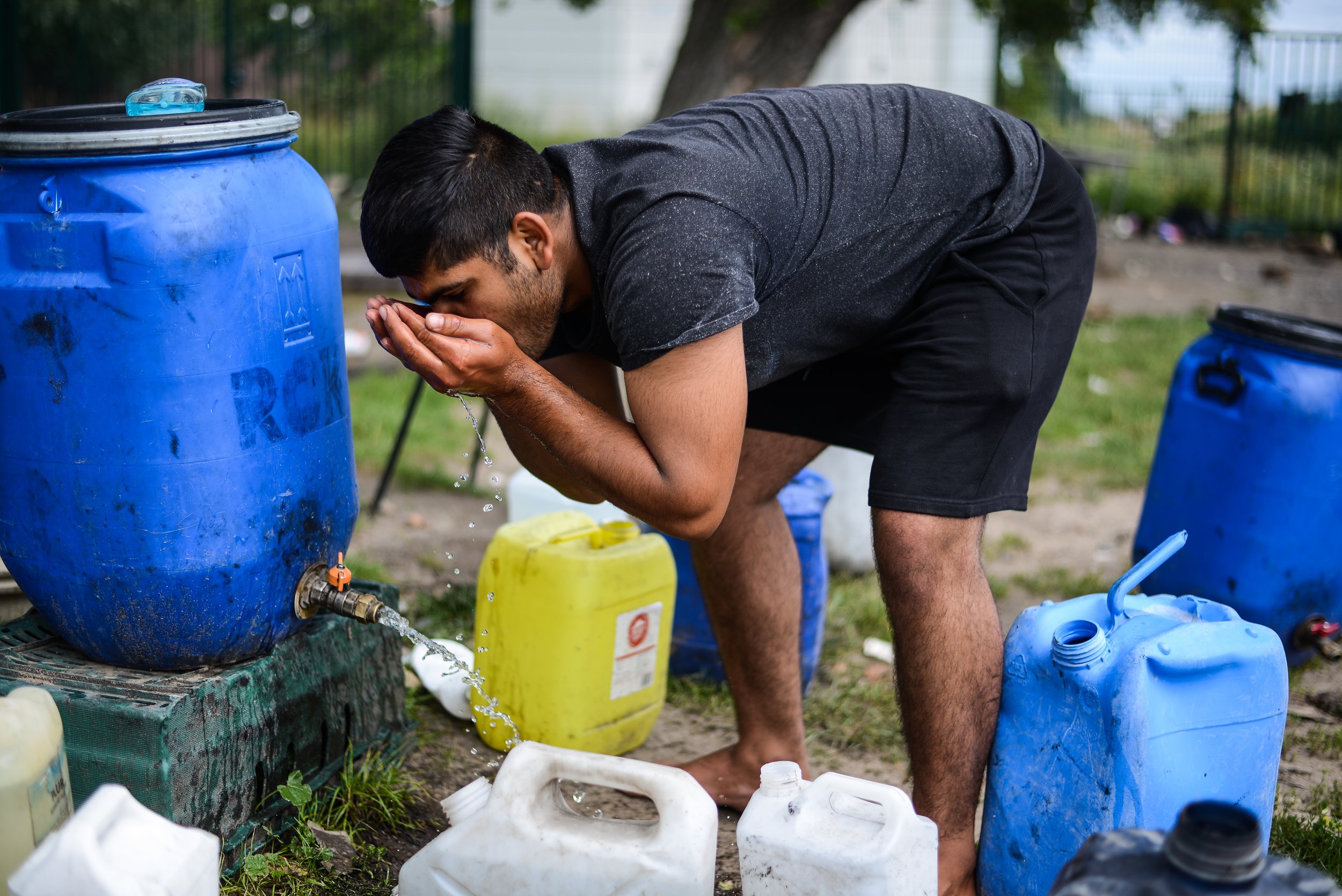
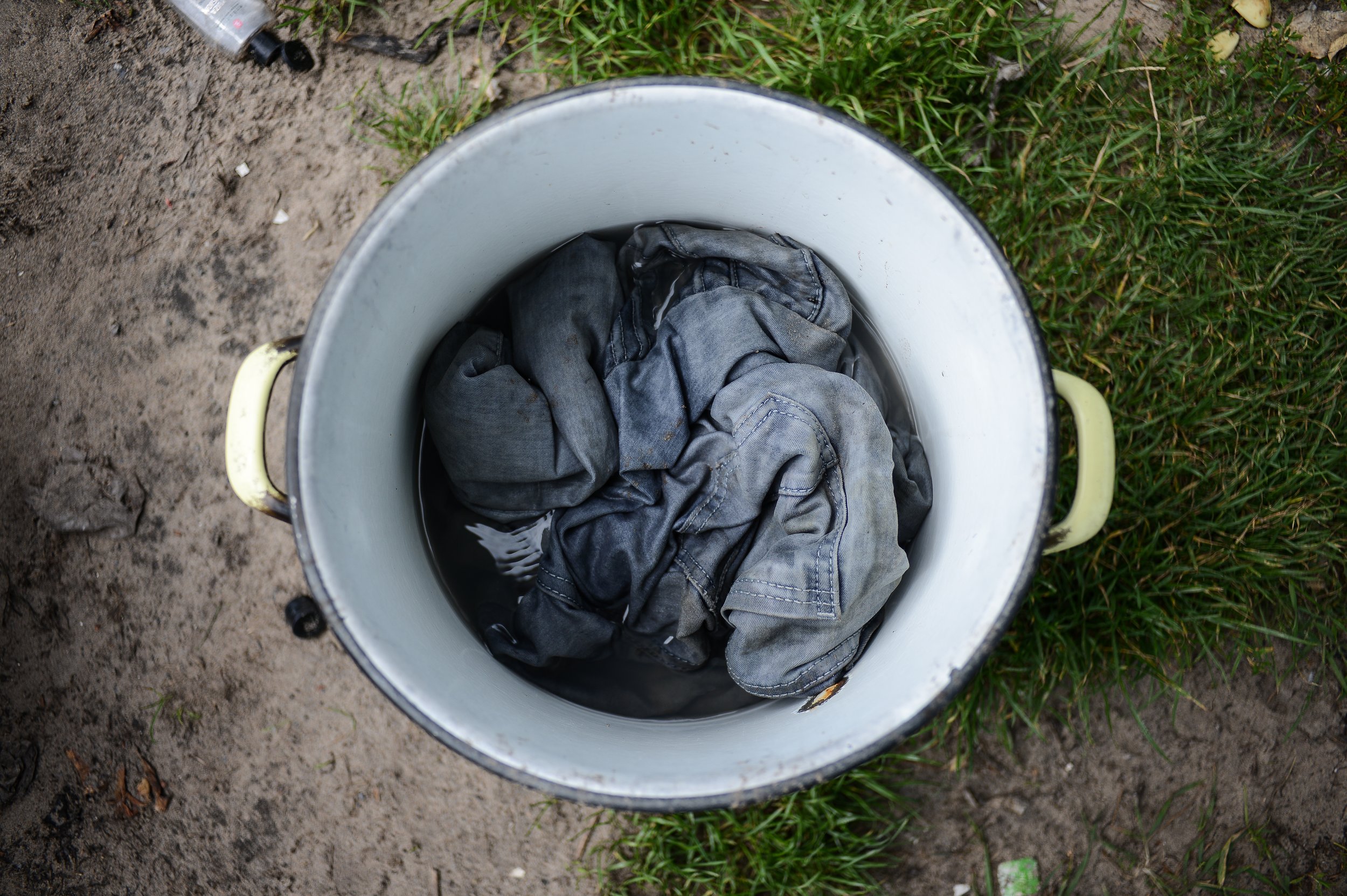
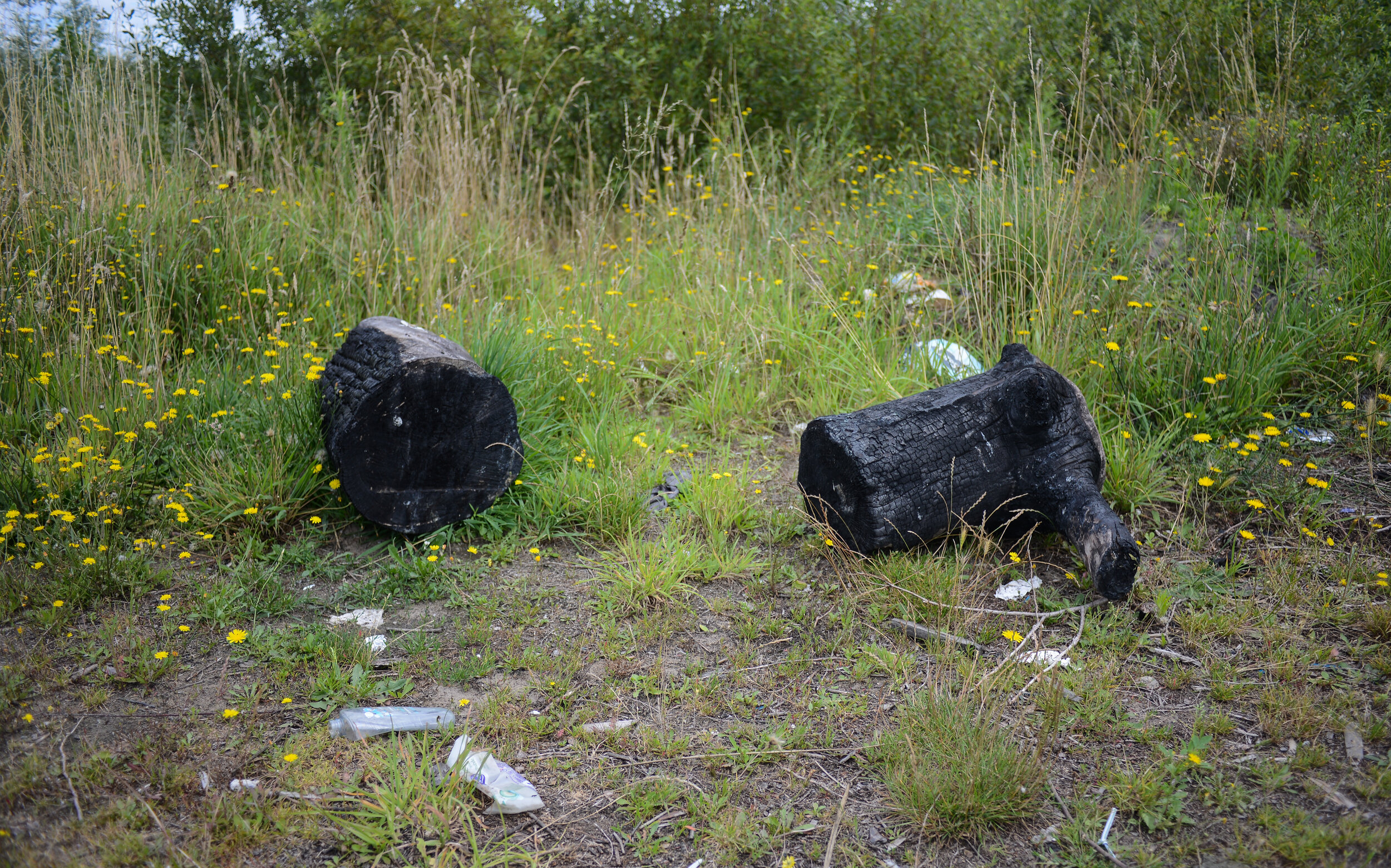
Life in Calais - Documenting the refugee crisis in Northern France (2020)
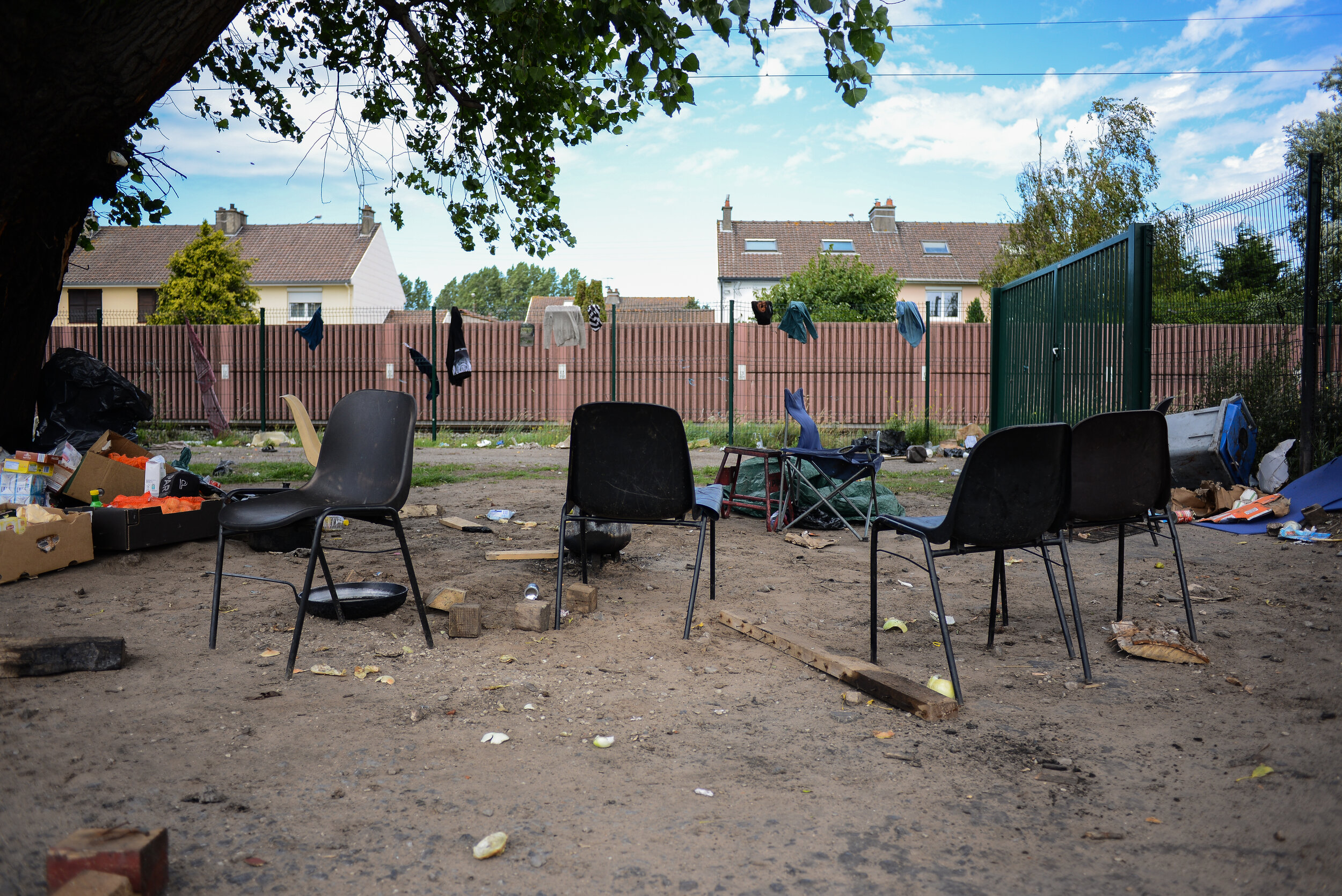
Life in Calais - Documenting the refugee crisis in Northern France (2020)
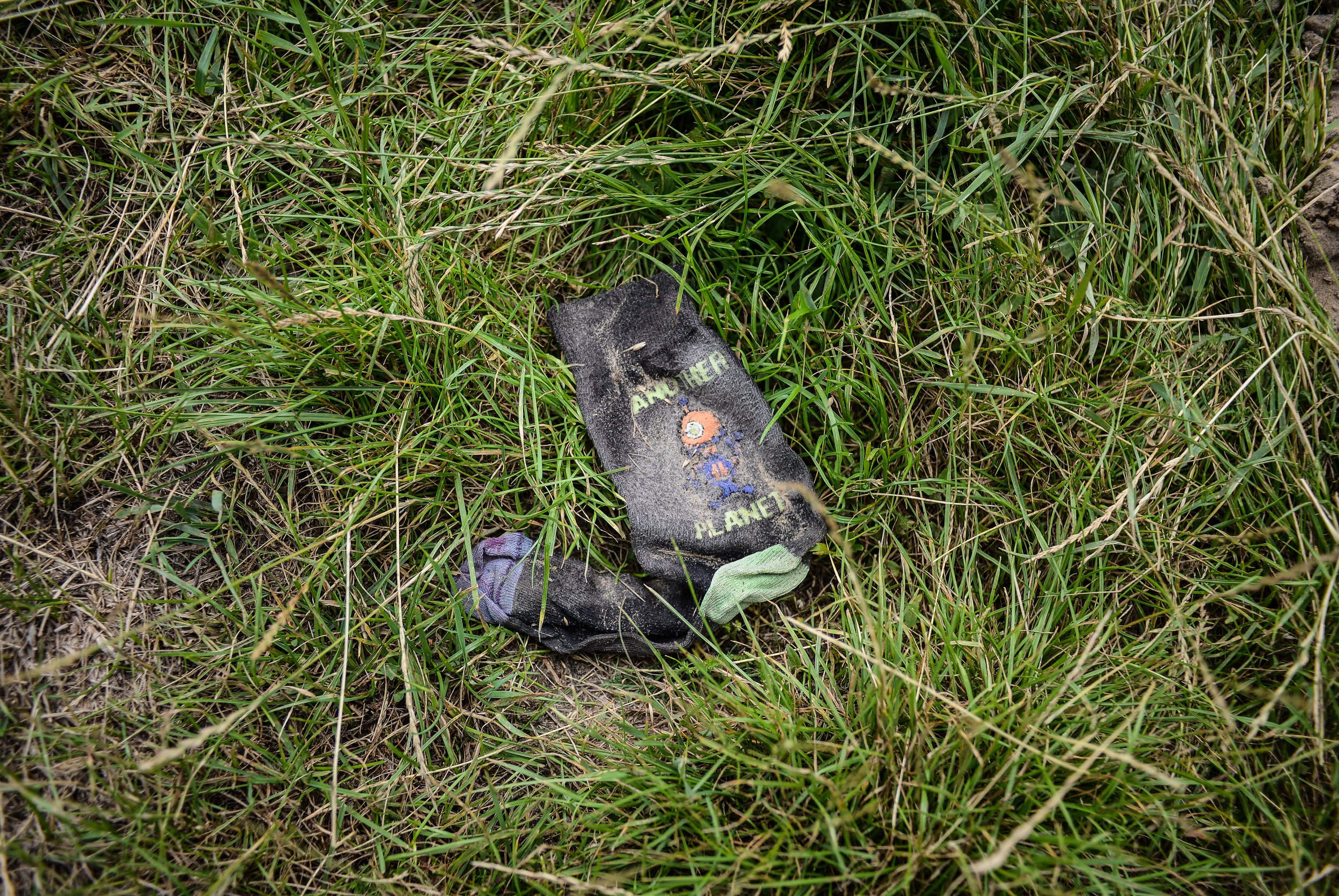
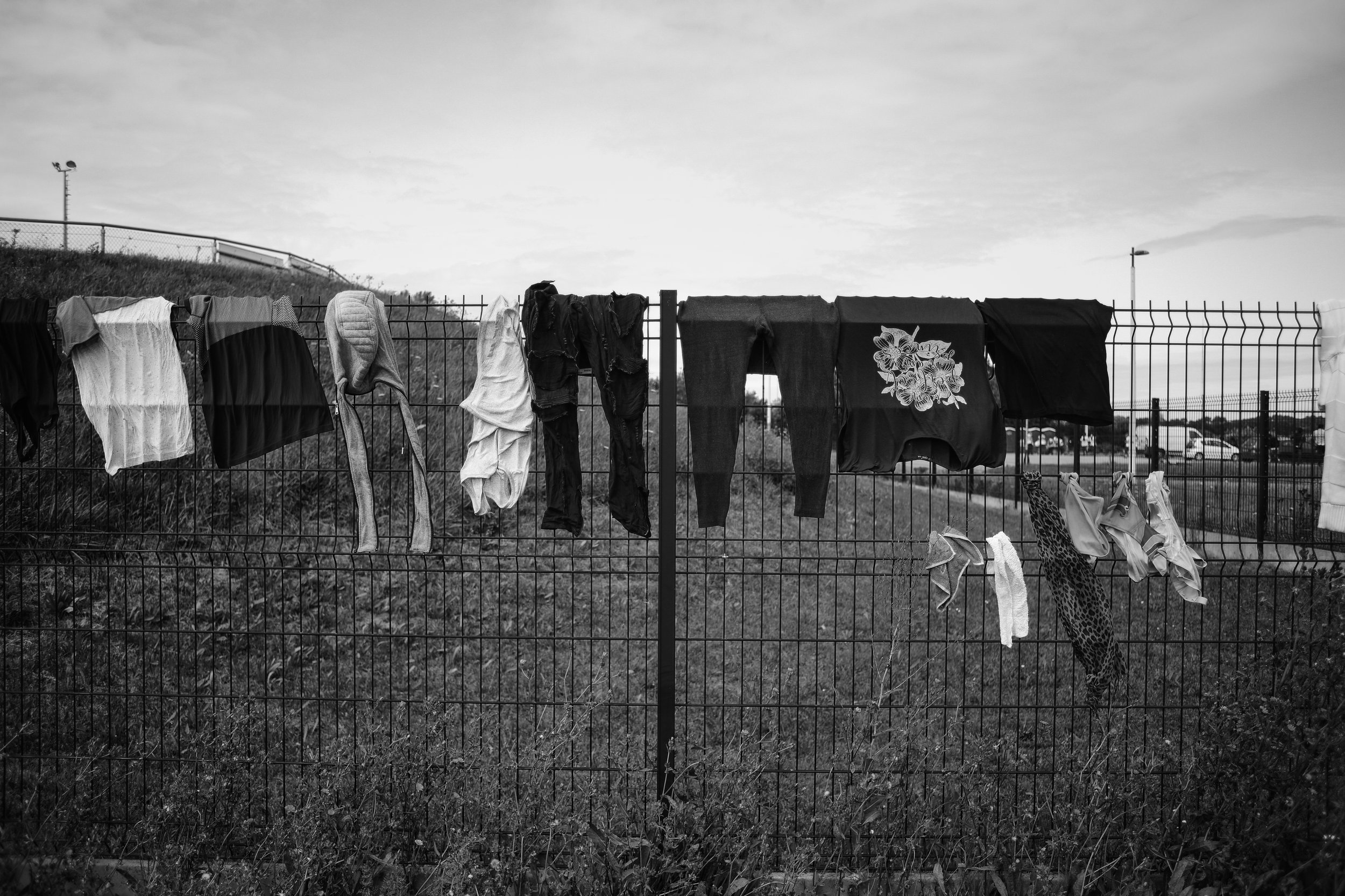
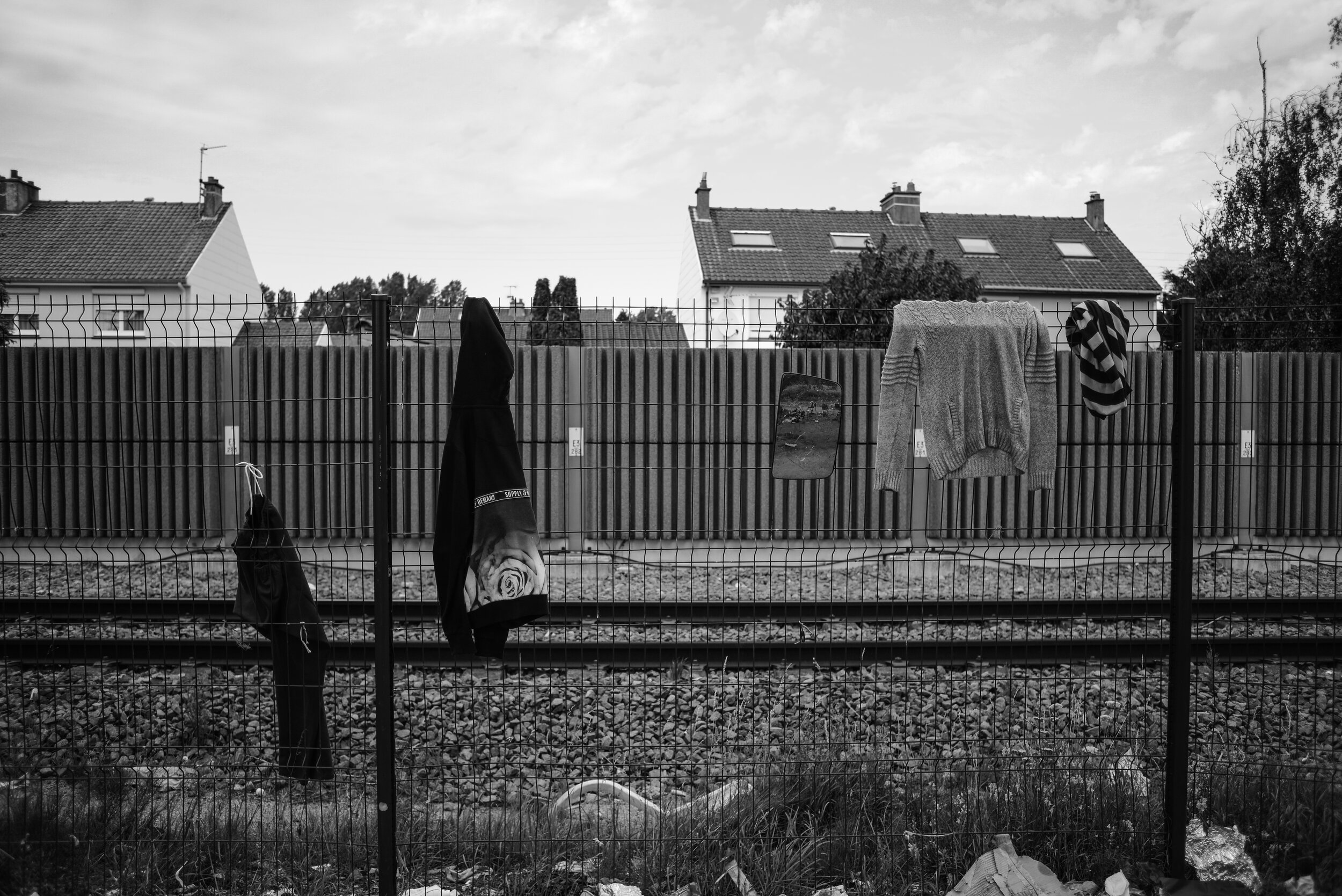
Life in Calais - Documenting the refugee crisis in Northern France (2020)
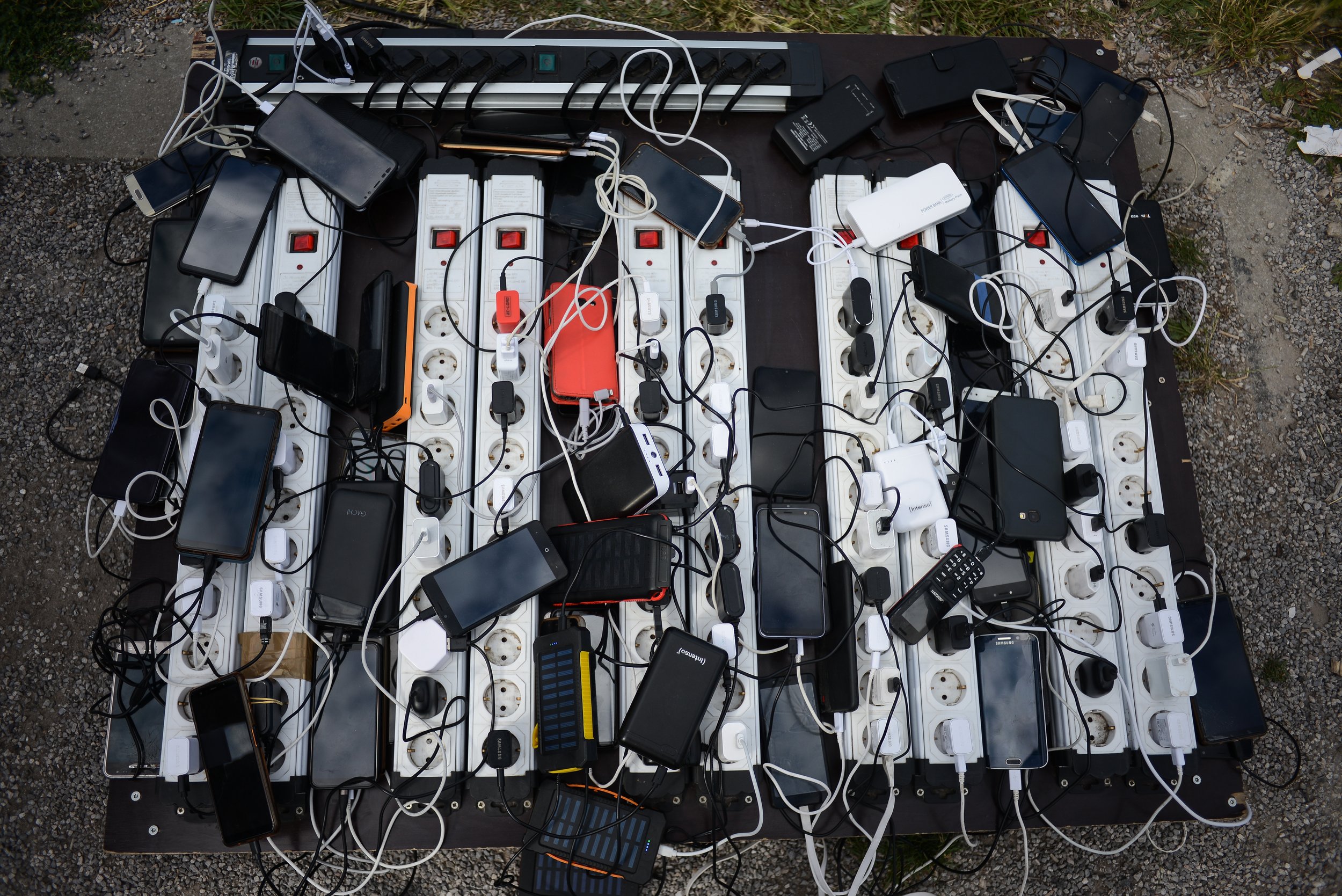
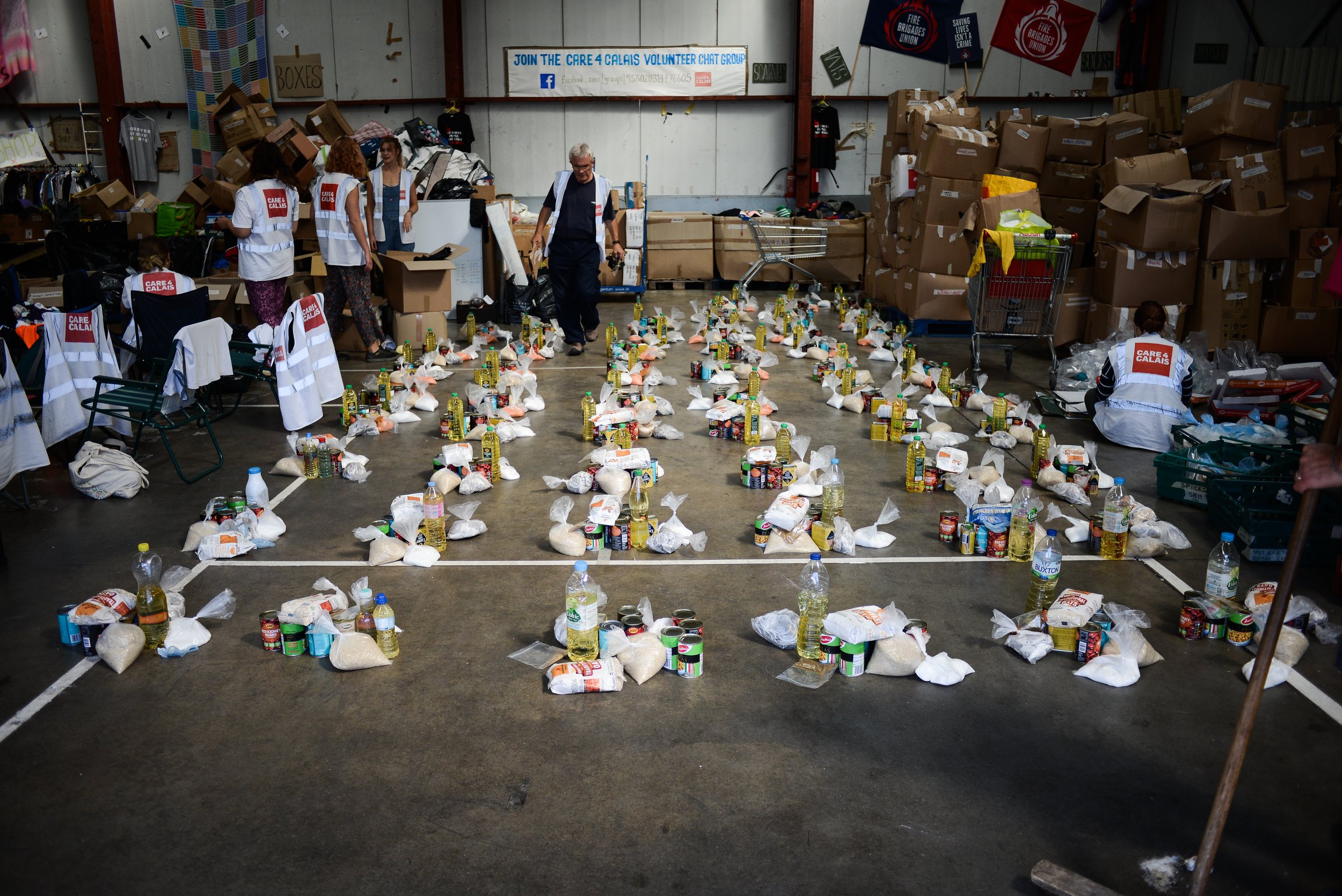
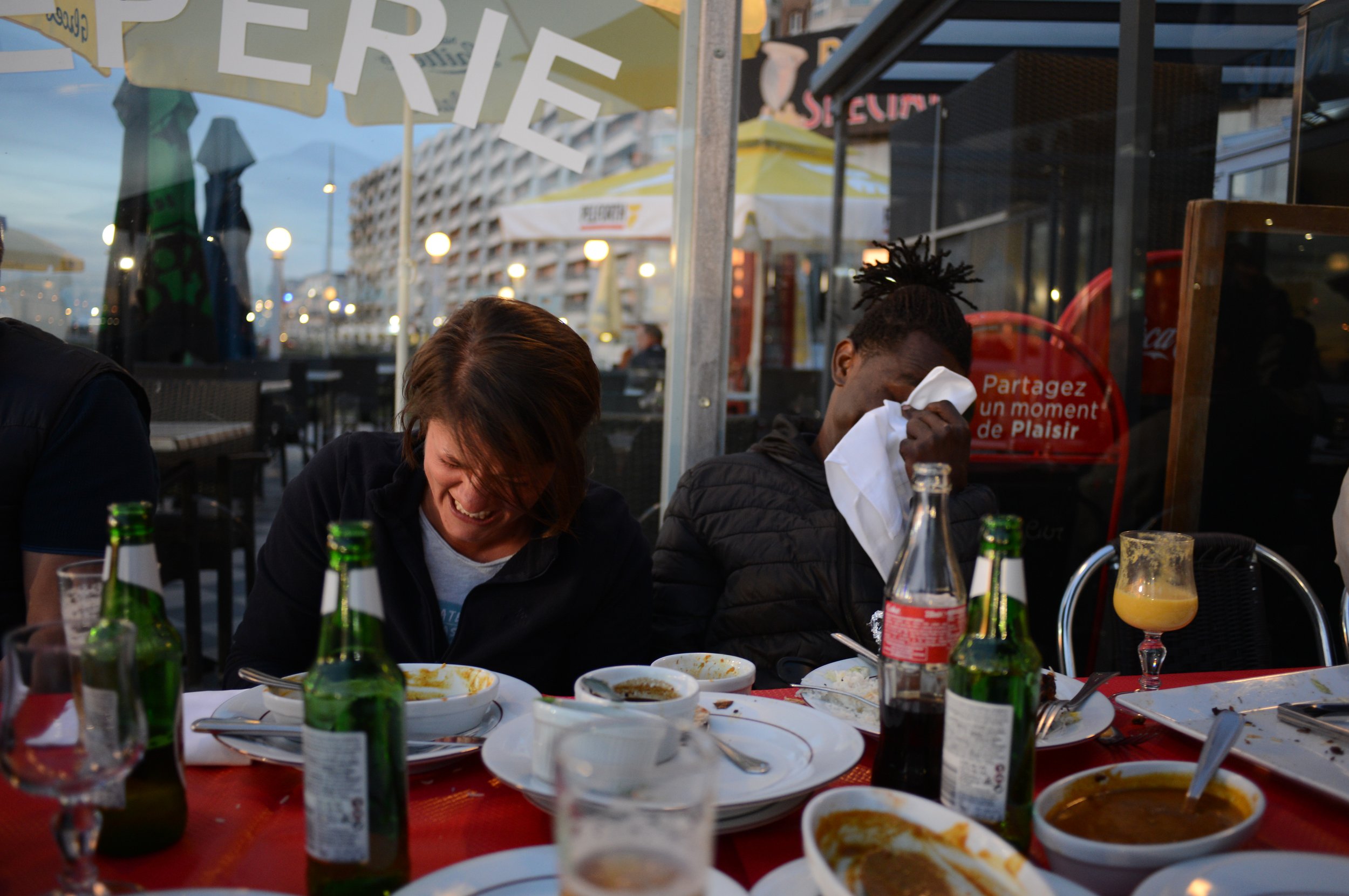
'G' (an aid worker) and 'A' (a refugee) are crying with laughter over something A had said!
A group of workers and refugees were treated to dinner one evening and it was really heartening to witness the friendship between the two.
It served as another reminder that everyone around the table was a 'regular' person, enjoying food with friends and having a good time. A welcome respite, certainly, but a break from the narrative.
At the table, everyone was allowed to have what they needed, as it should always be. At the table, no one was simply surviving. During those brief moments together, we were all prosperous.
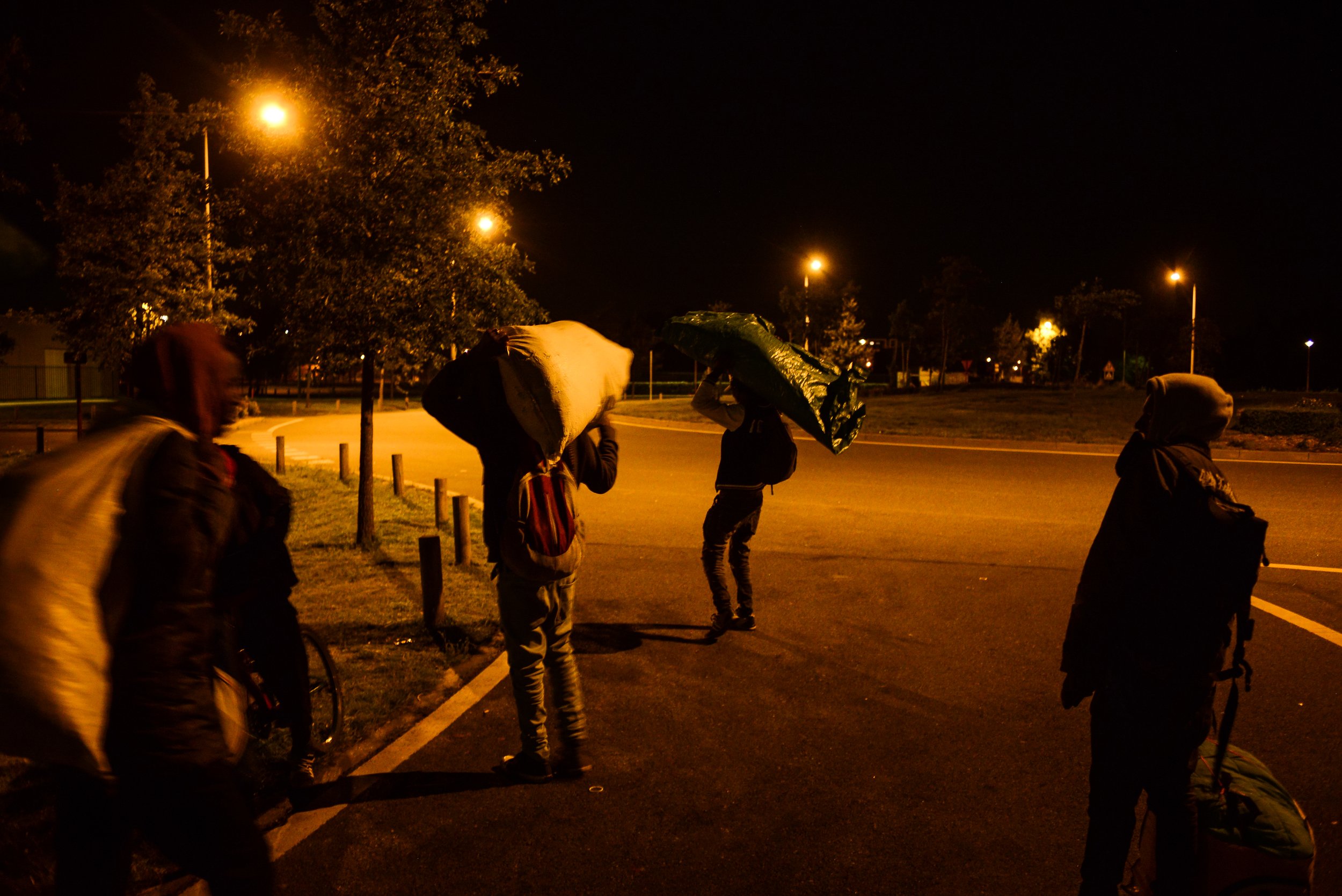
A group of Ethiopian men are forced to flee their camp and move elsewhere from the threat of a potential eviction the next day.
We gave them a lift across the town to reach the new site quickly. They didn't really know where they were going or have much in terms of belongings but there was a sense of confidence about them.
One of them told me he was really into Michael Bolton! They were cool.
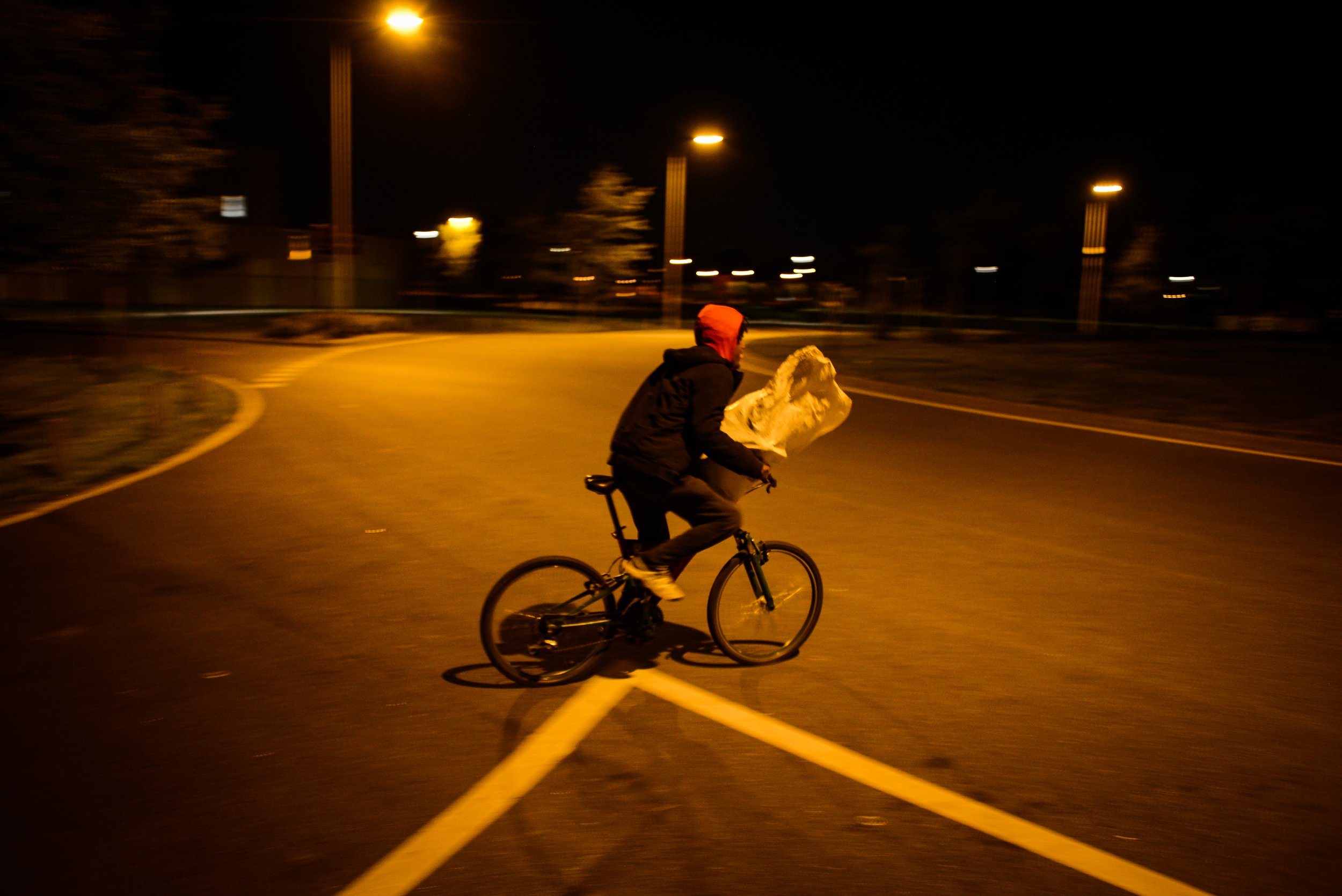
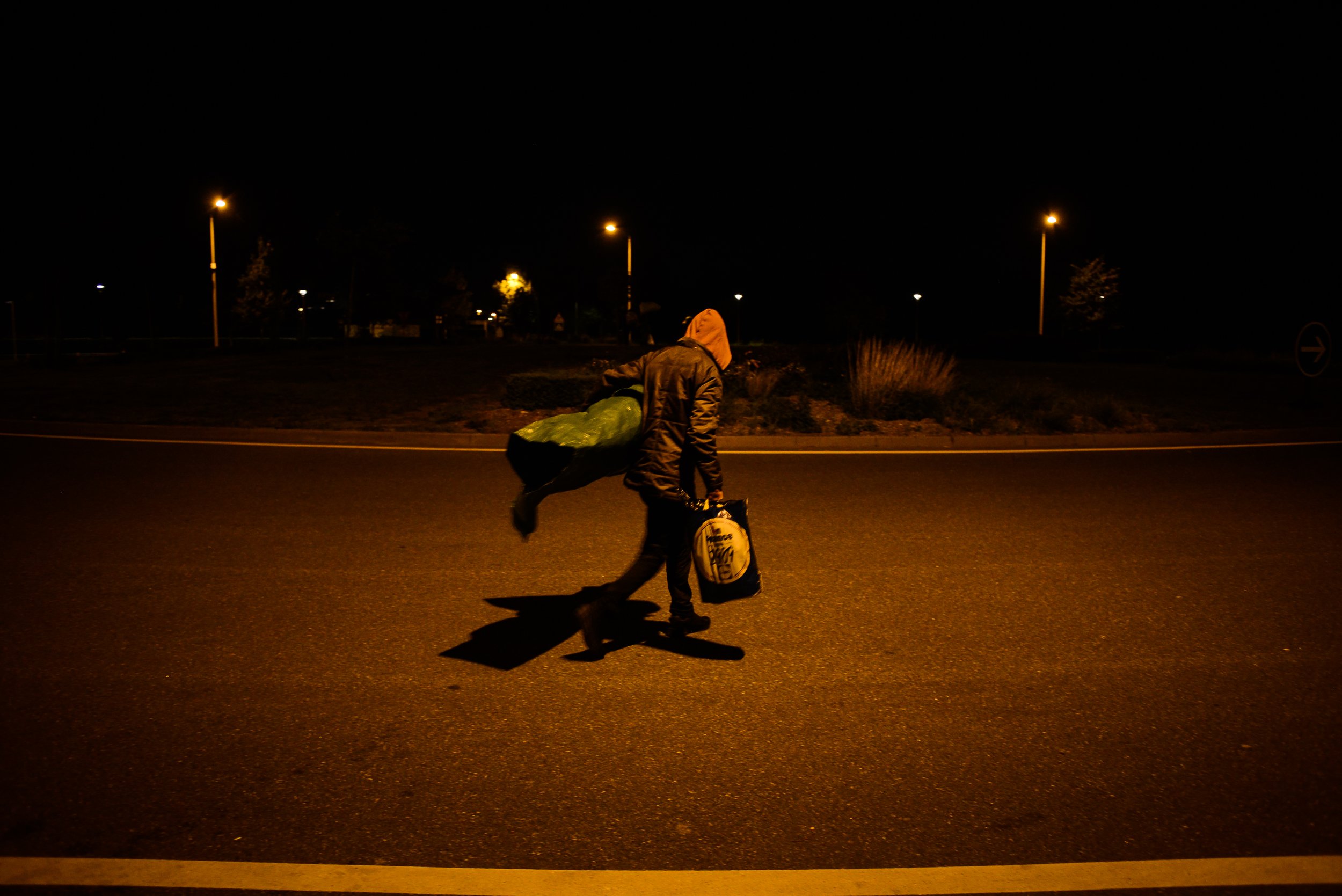
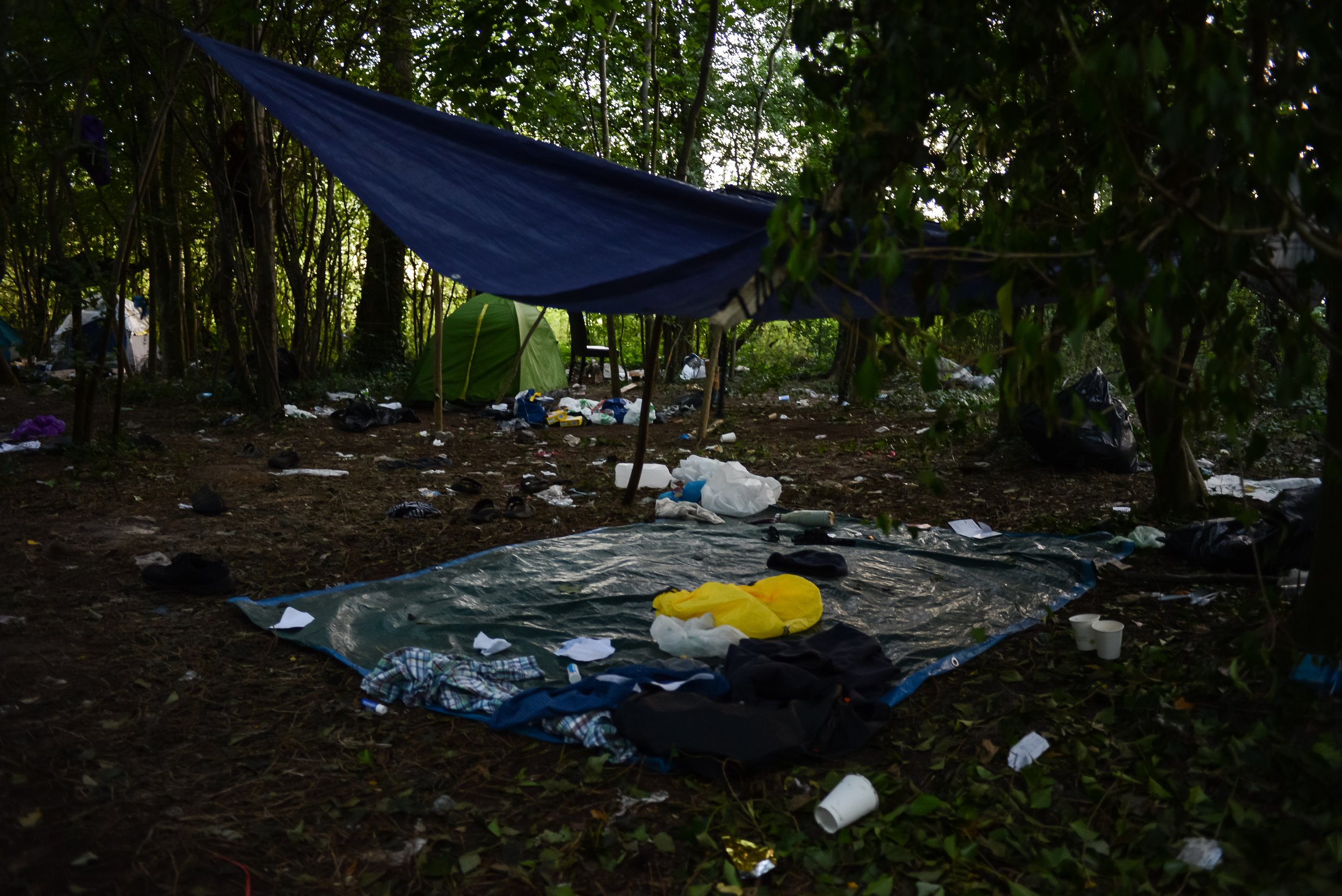
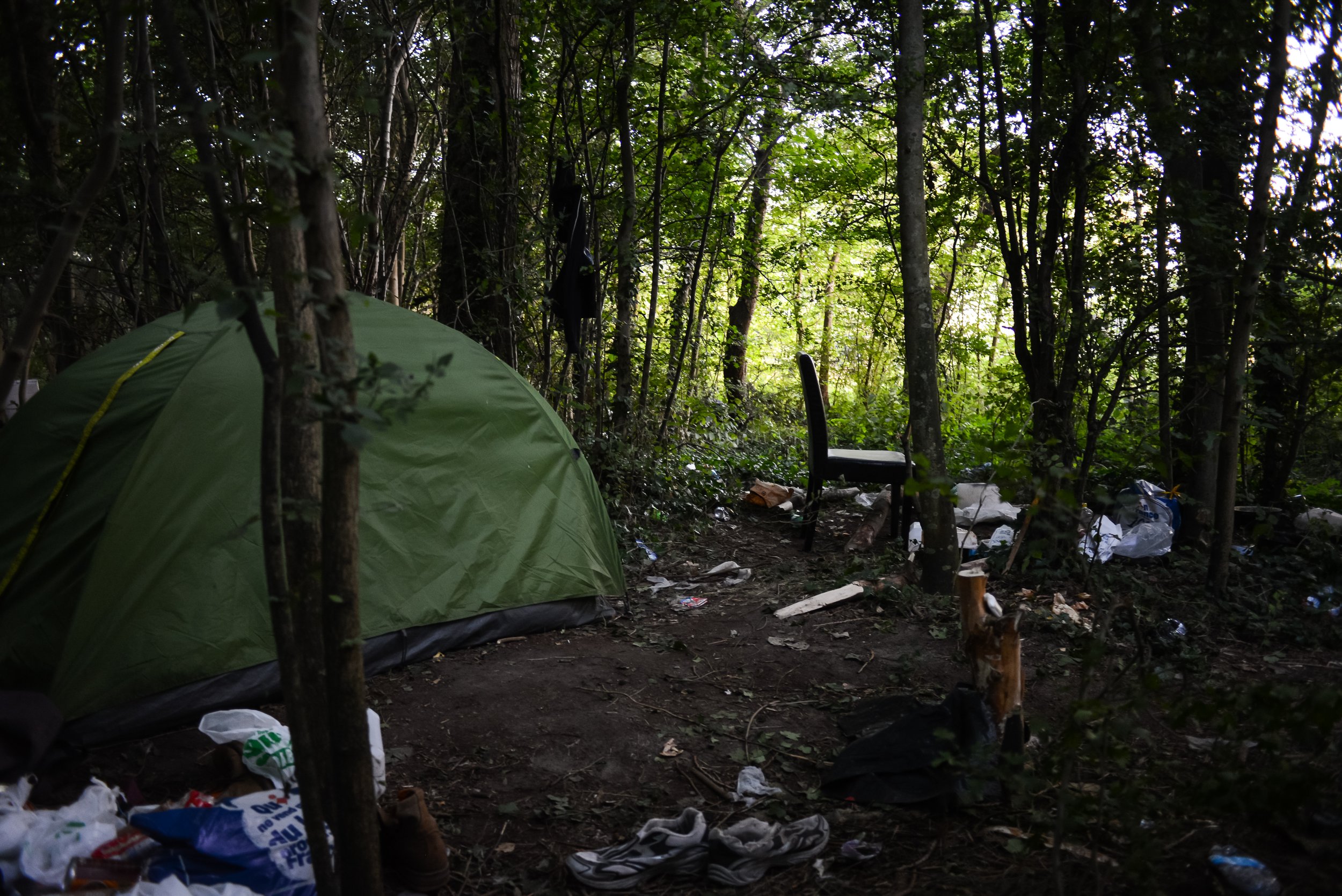
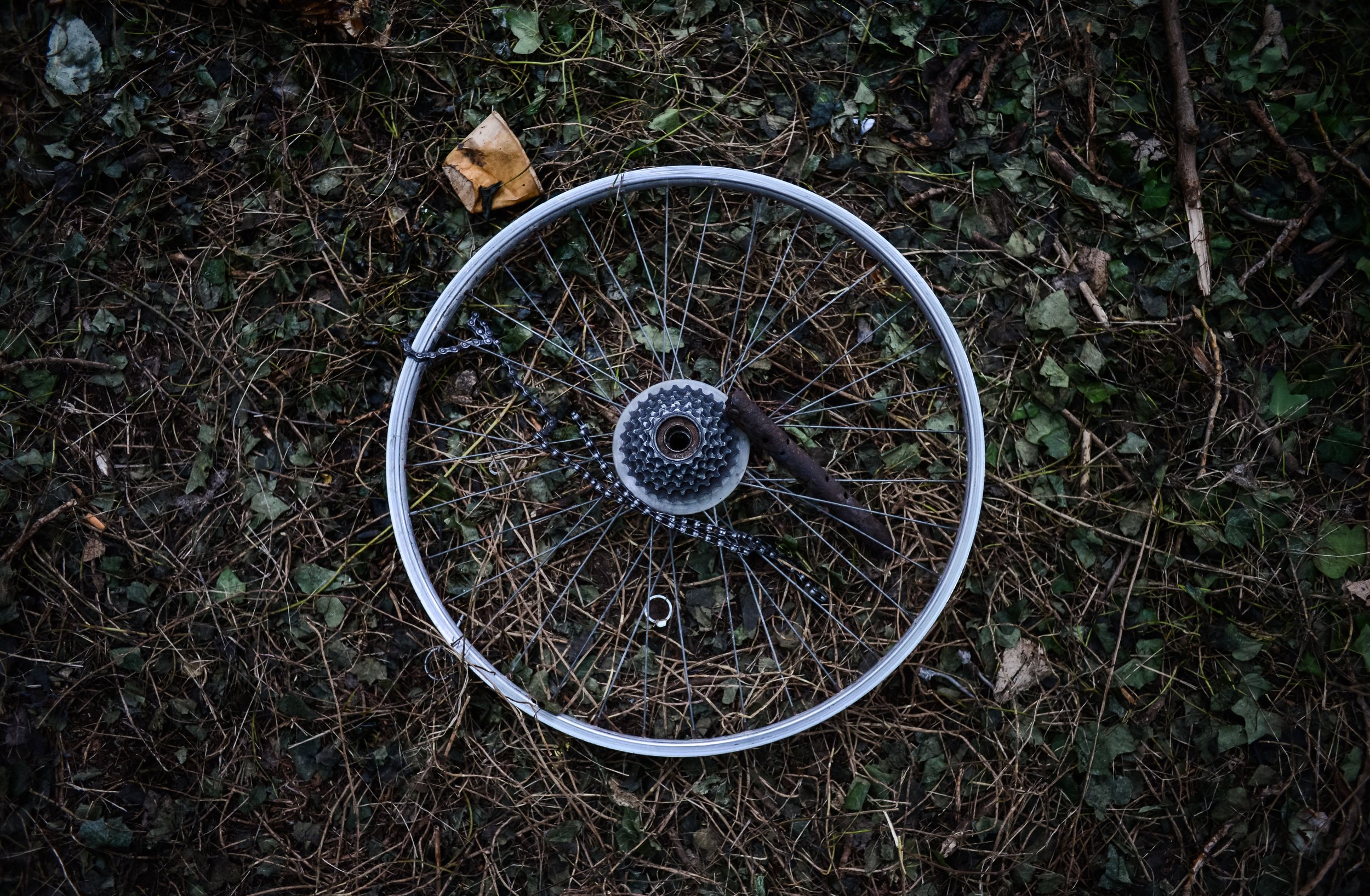
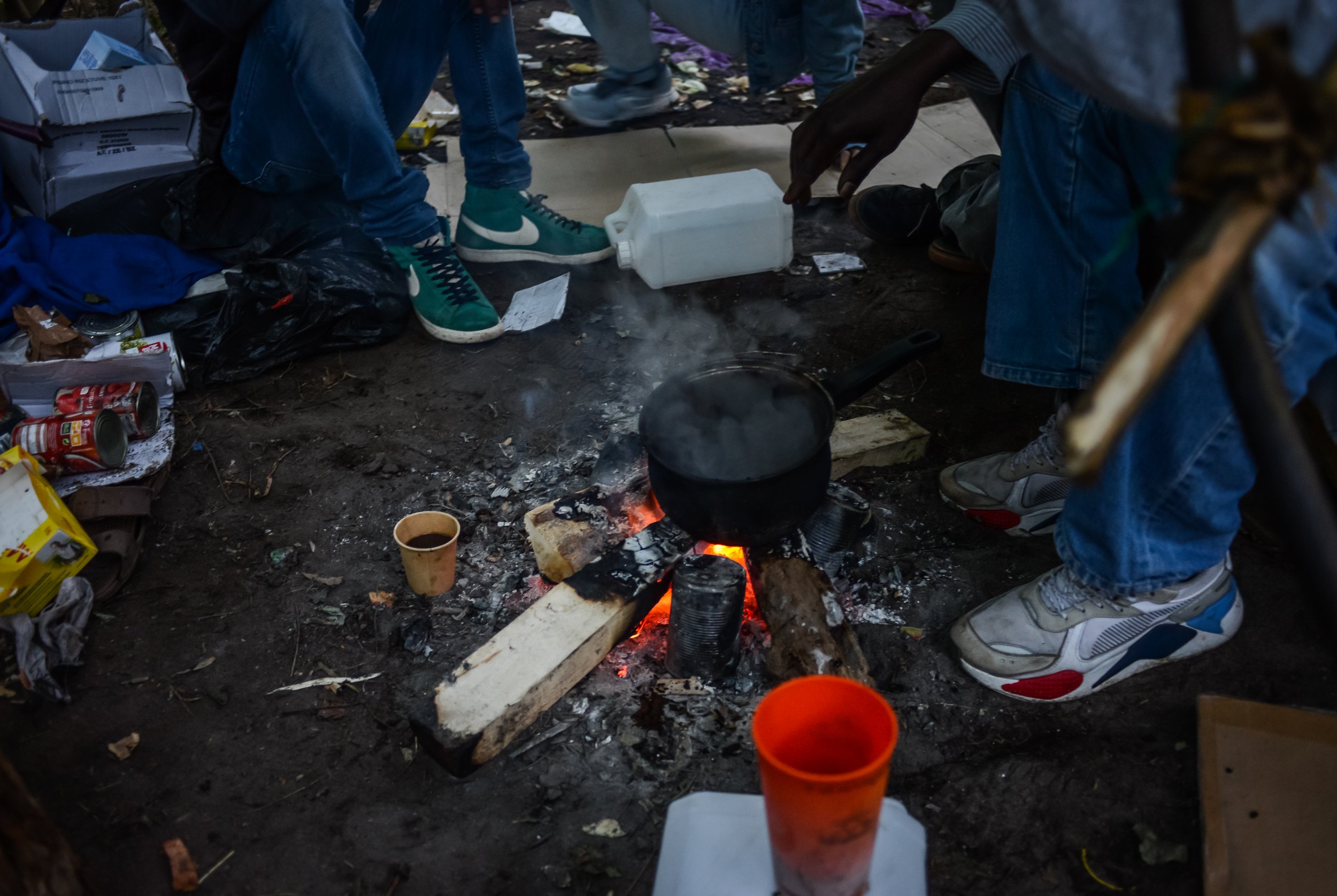
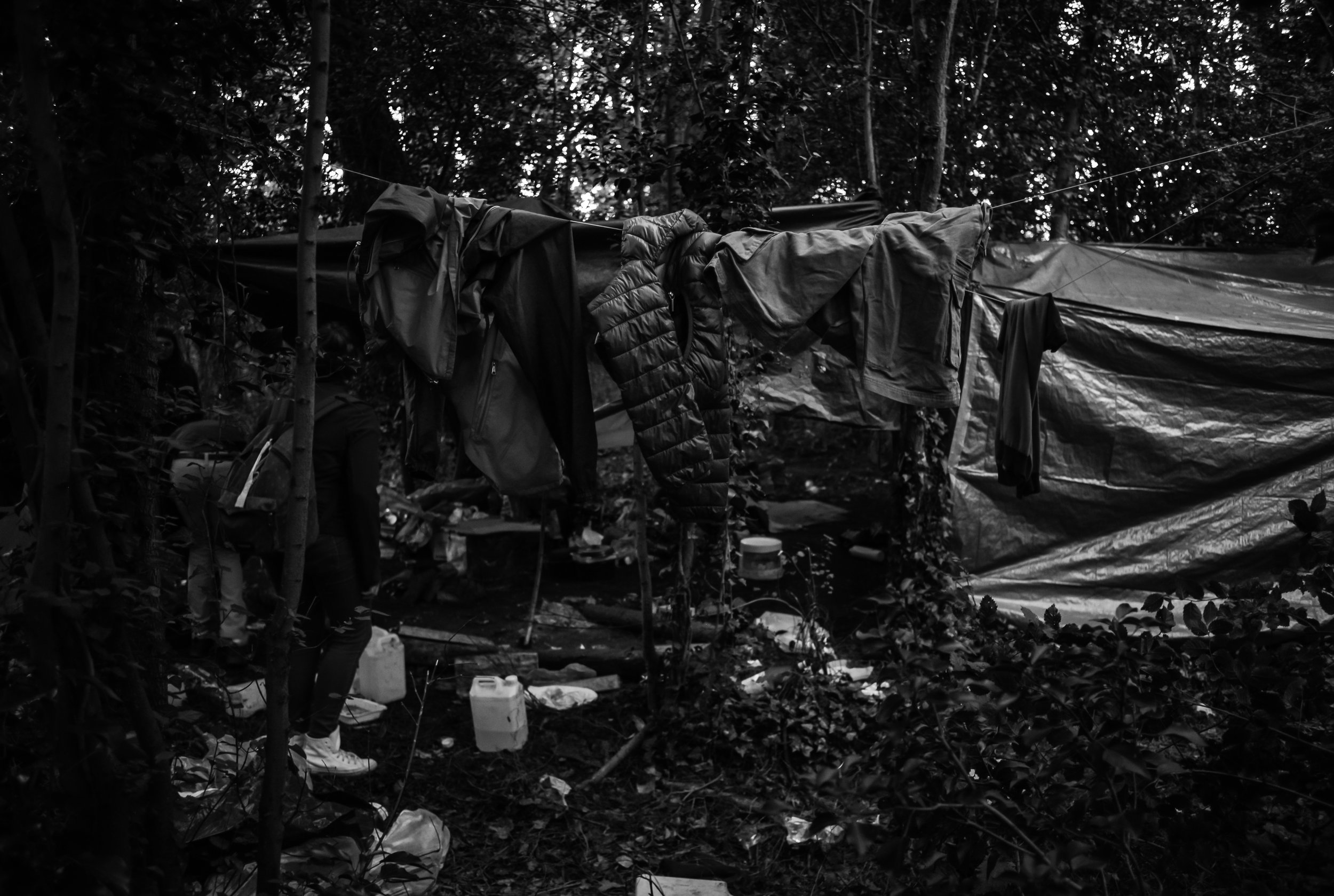
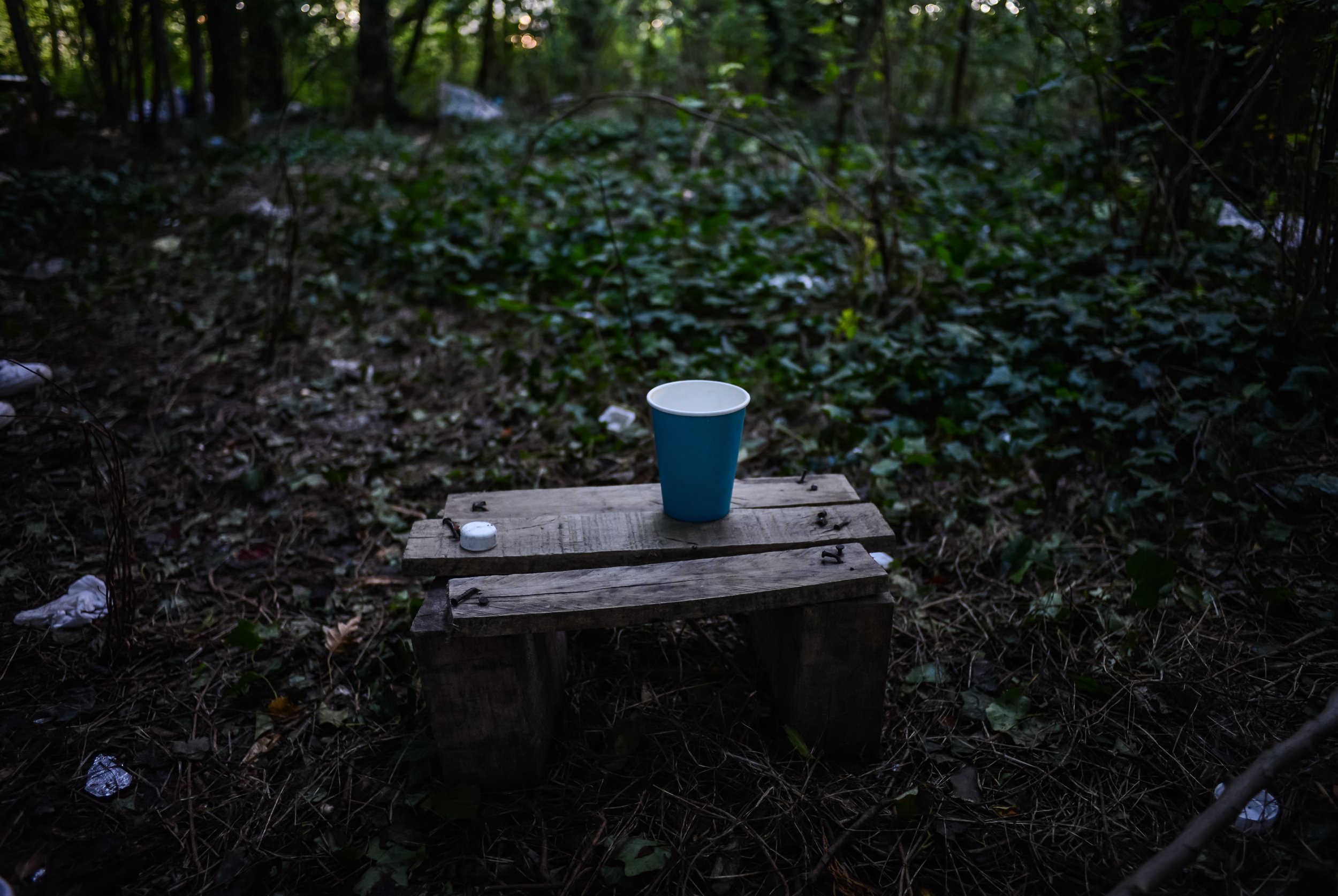
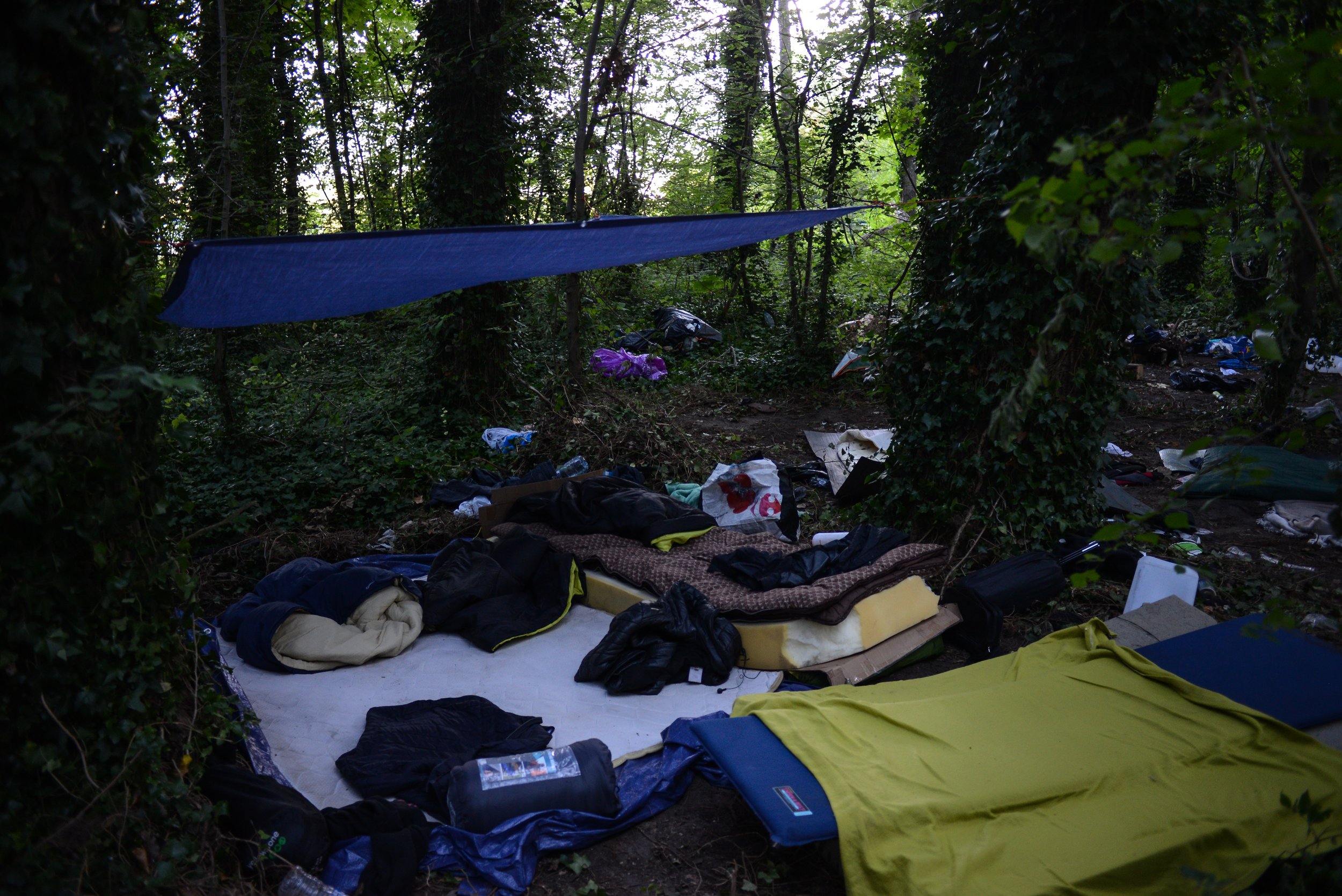

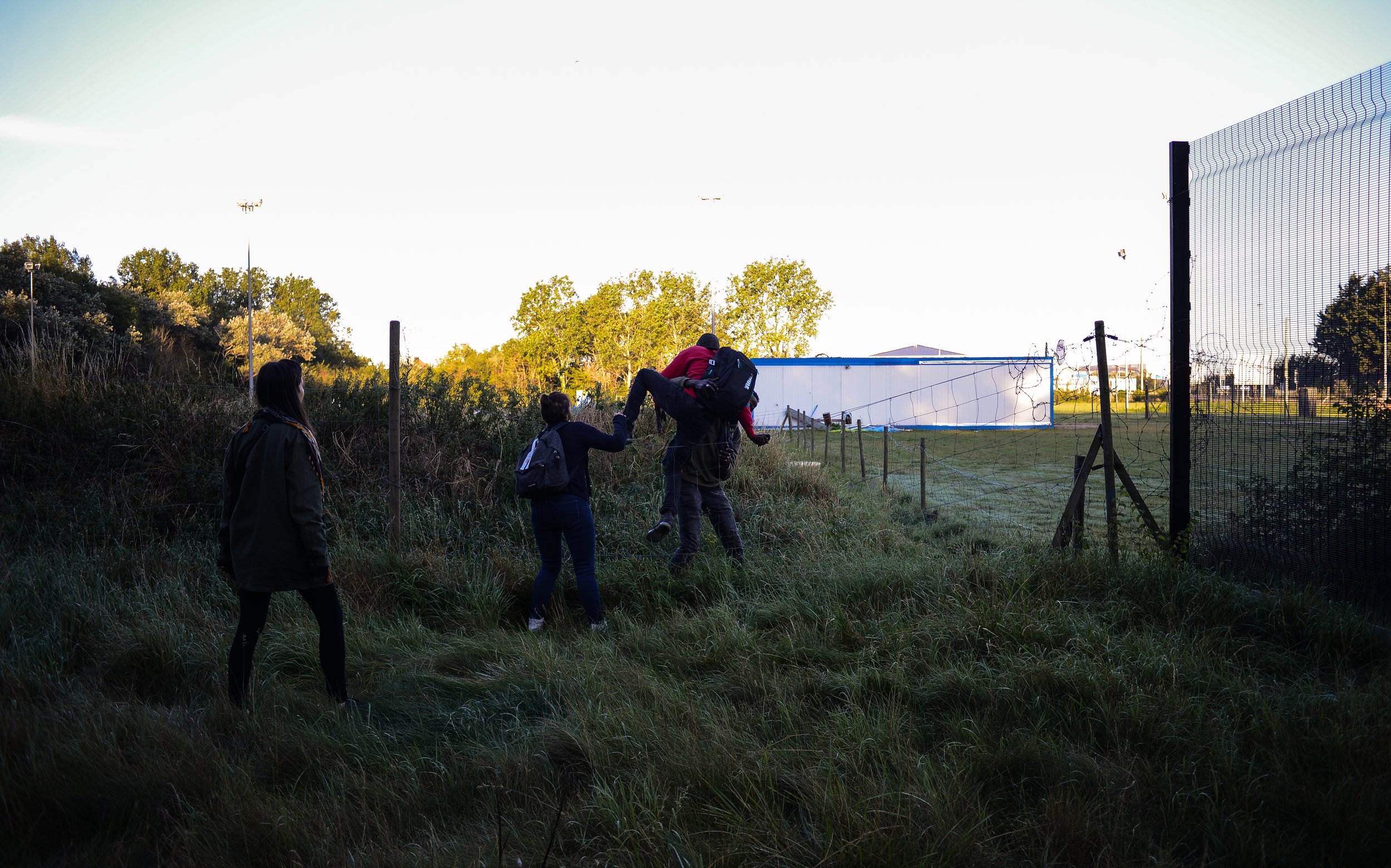
Two refugees from Sudan, watched by aid workers, hop over a perimeter fence very early in the morning to evade police during an eviction.
By avoiding the police this time, they avoided potential violence towards them and certain extradition from this part of France.
The police were only 50m away and making their way through the woods. It was truly desperate to witness.
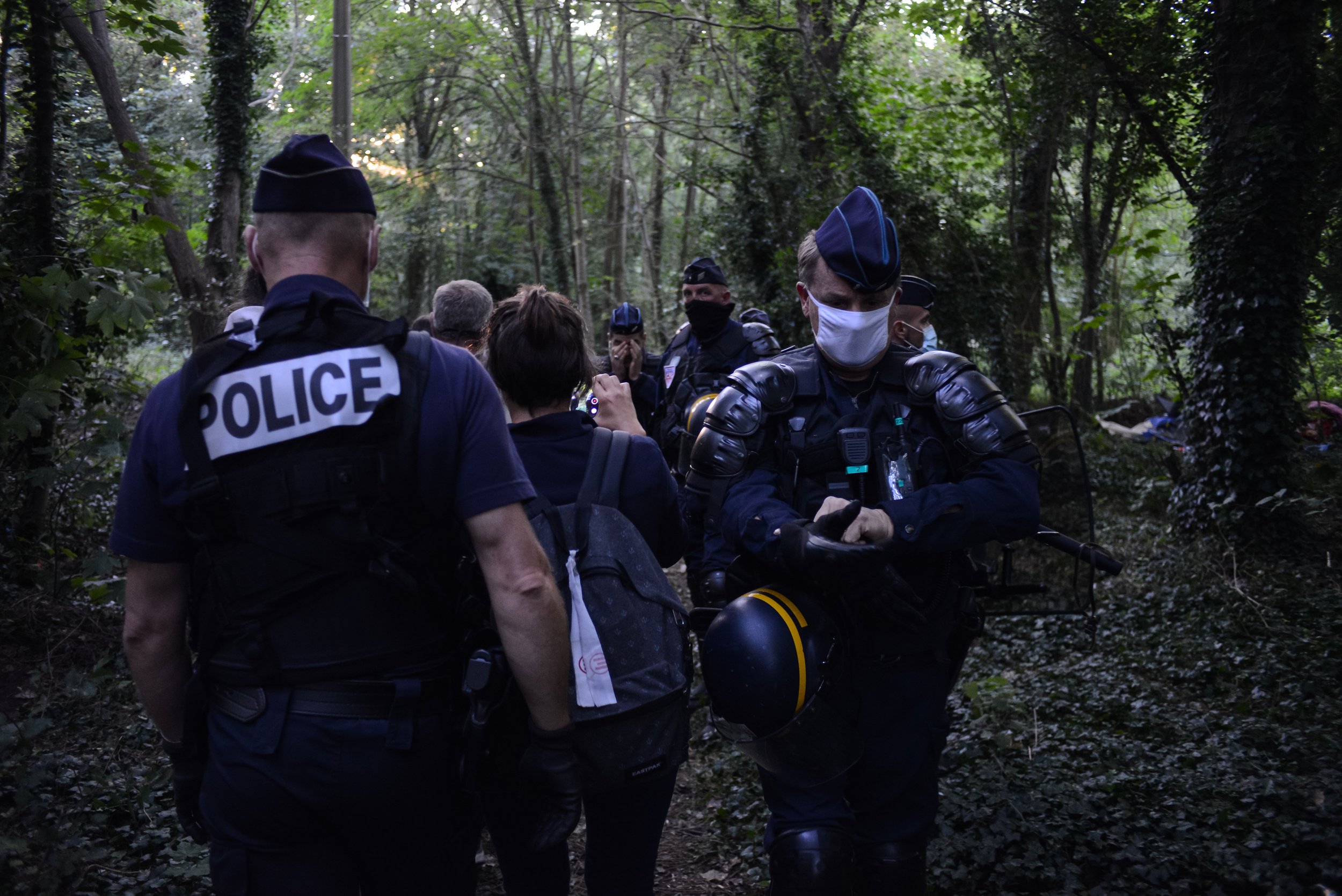
Evictions by police are common place among the sites in Calais.
This one took place in one of the main 'jungle' sites on the 30th of July at approximately 6.30am and involved police from 2 distinct departments (the CRS, once part-funded by the UK government) forcibly removing people from their would-be 'homes', before placing them on buses to be dumped in different regions across France and then burning any belongings that are left (sometimes all that these people have).
This time, the police put up an eviction notice a day before to let the refugees know they were coming which caused many to relocate to another site nearby where they thought they would be safe.
The people they did catch were loaded onto a bus before being the police headed to the other site where the refugees had relocated. This was unexpected. 3 or 4 more buses of people were caught by surprise, loaded onto buses and shipped out. No warning was given.
Thankfully, this eviction wasn't violent. Previous evictions have involved tear gas, people being arrested, hit with batons and sometimes shot with rubber bullets.
The police I encountered were polite, but assertive. Robotic almost. However, their silence and forceful nature was a metaphor and signifier of how the state views the refugees here. They'd prefer them to simply vanish. Dehumanised in this hostile environment.
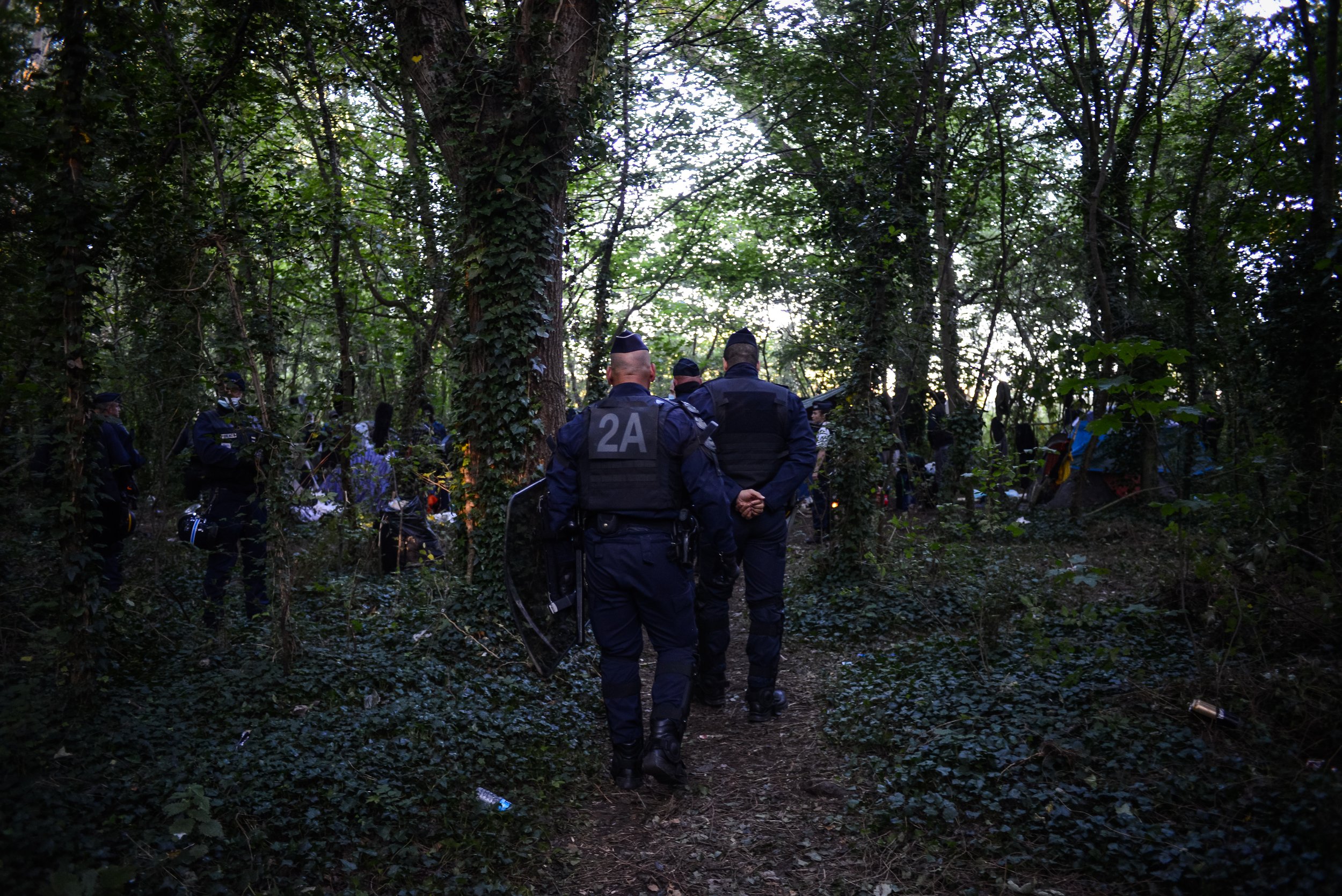
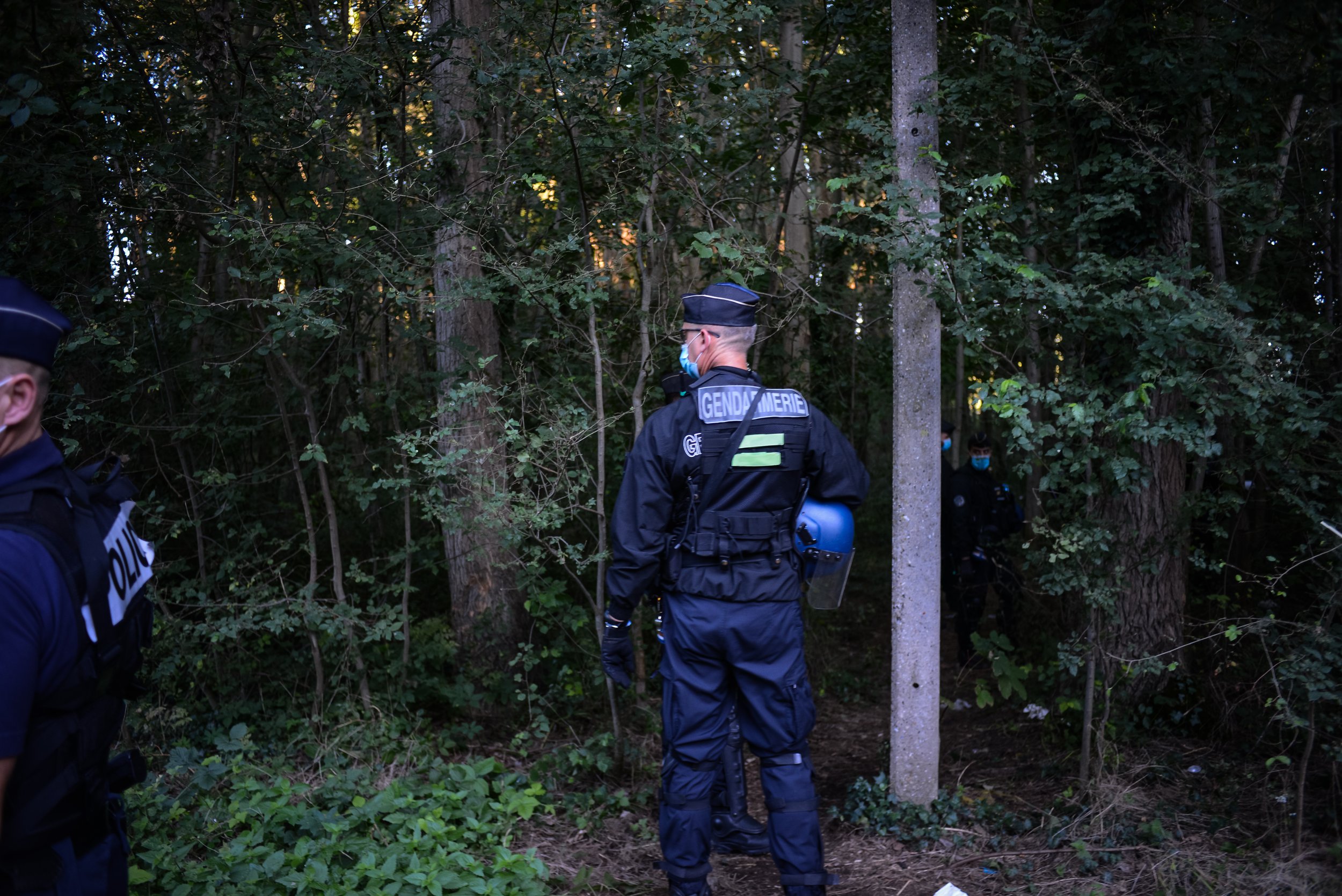
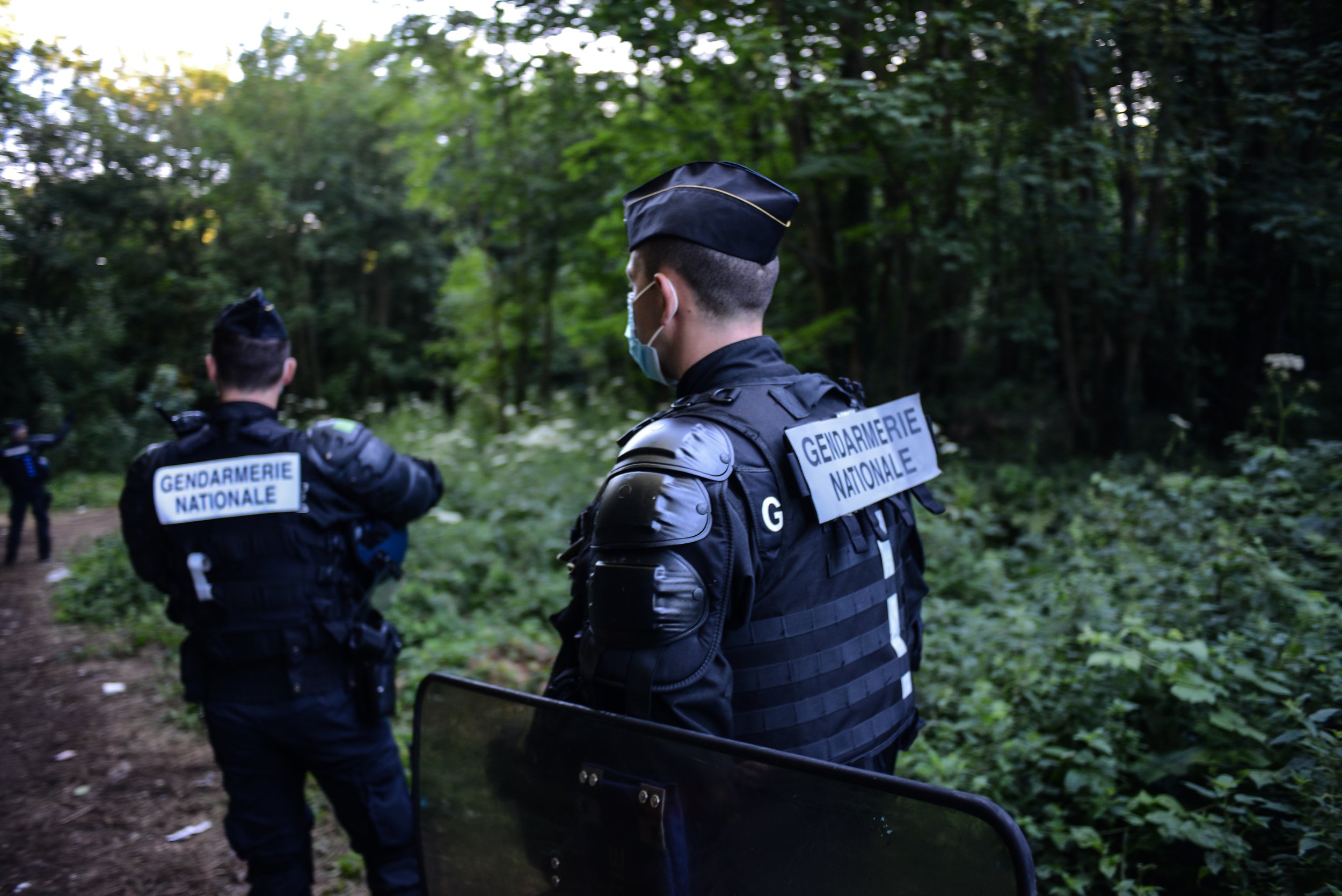

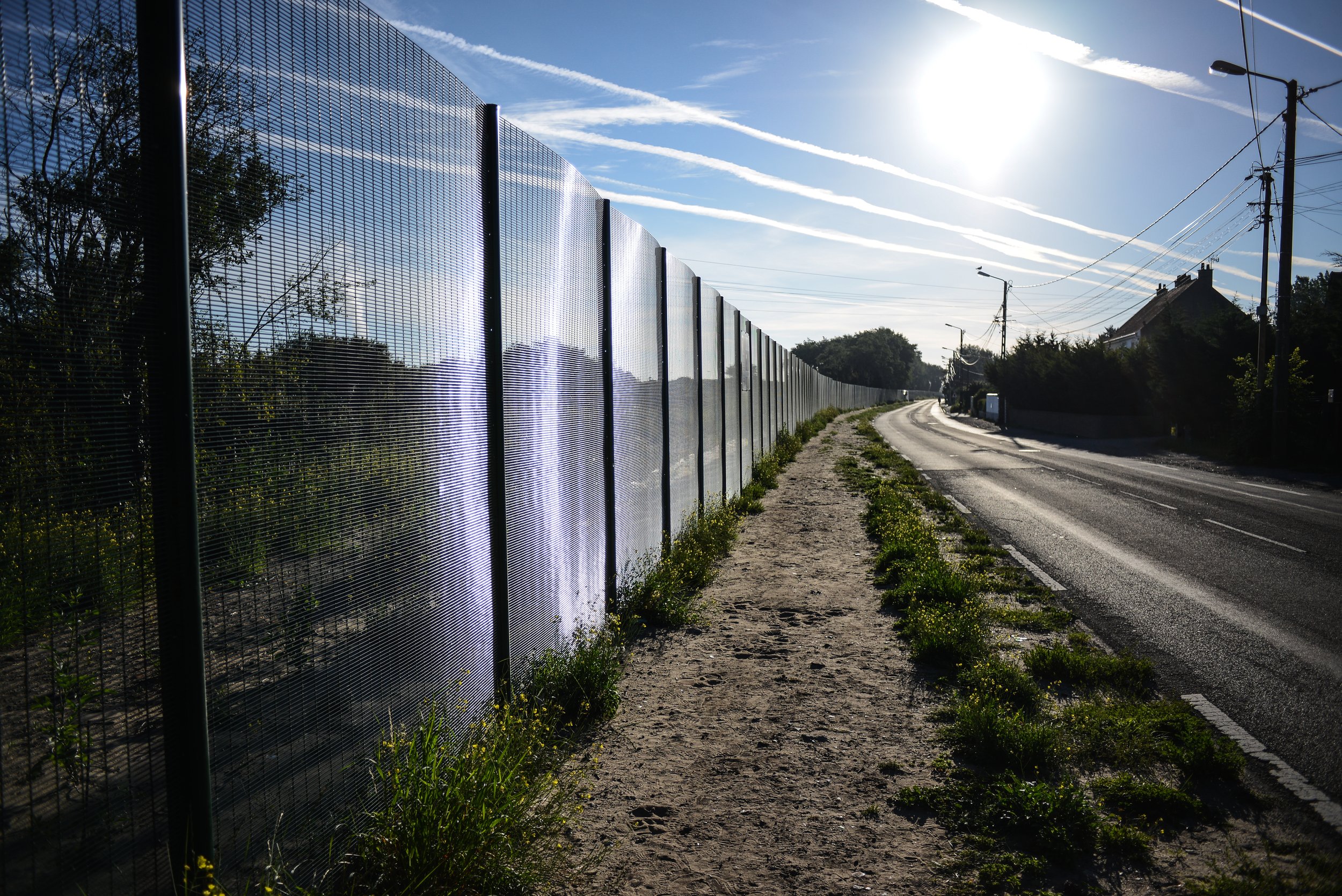
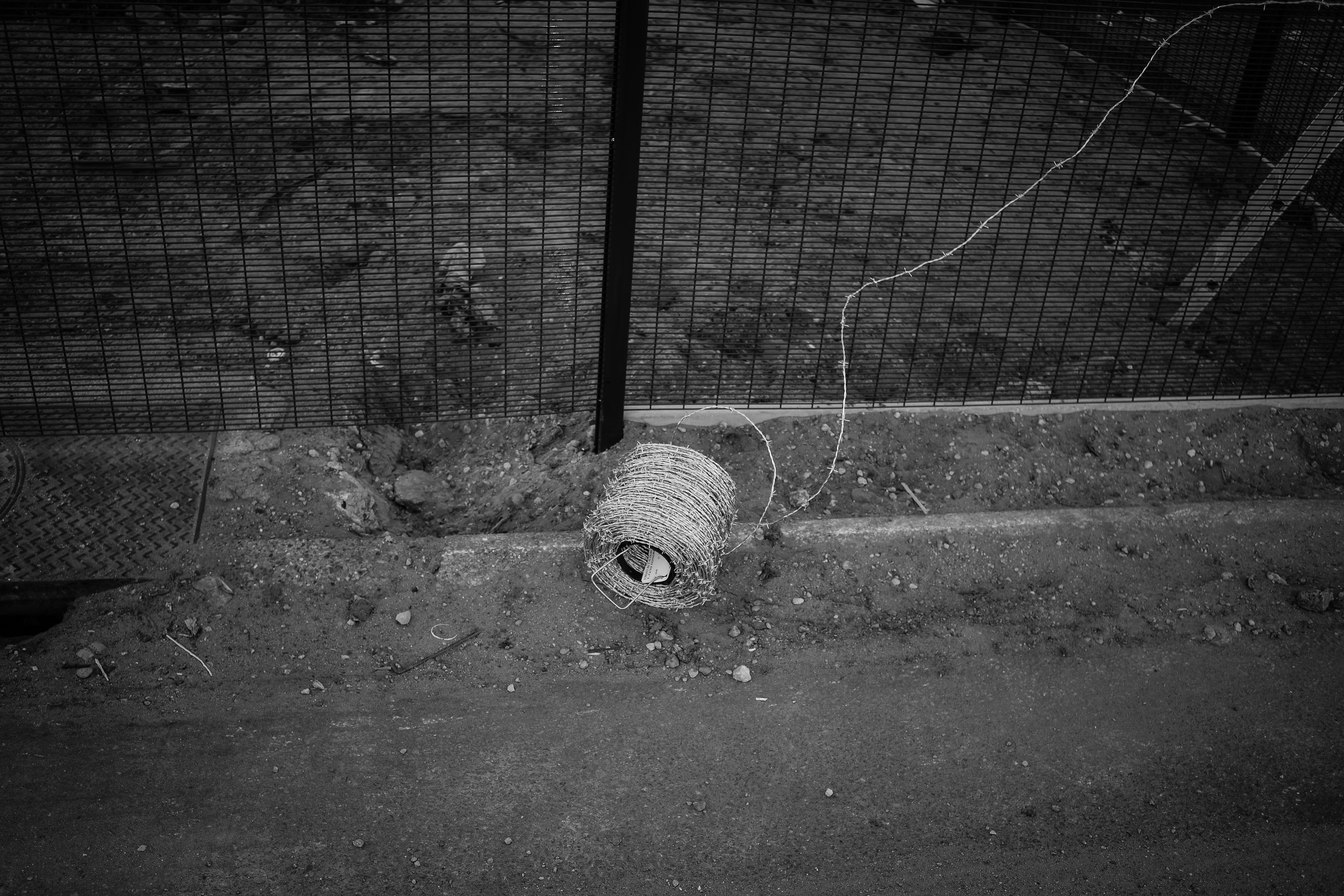
Once areas are cleared of refugees, the state will often put up whole new fences with barbed-wire to keep people from returning. A harsh way of 'shepherding'. Brutal and symbolic.


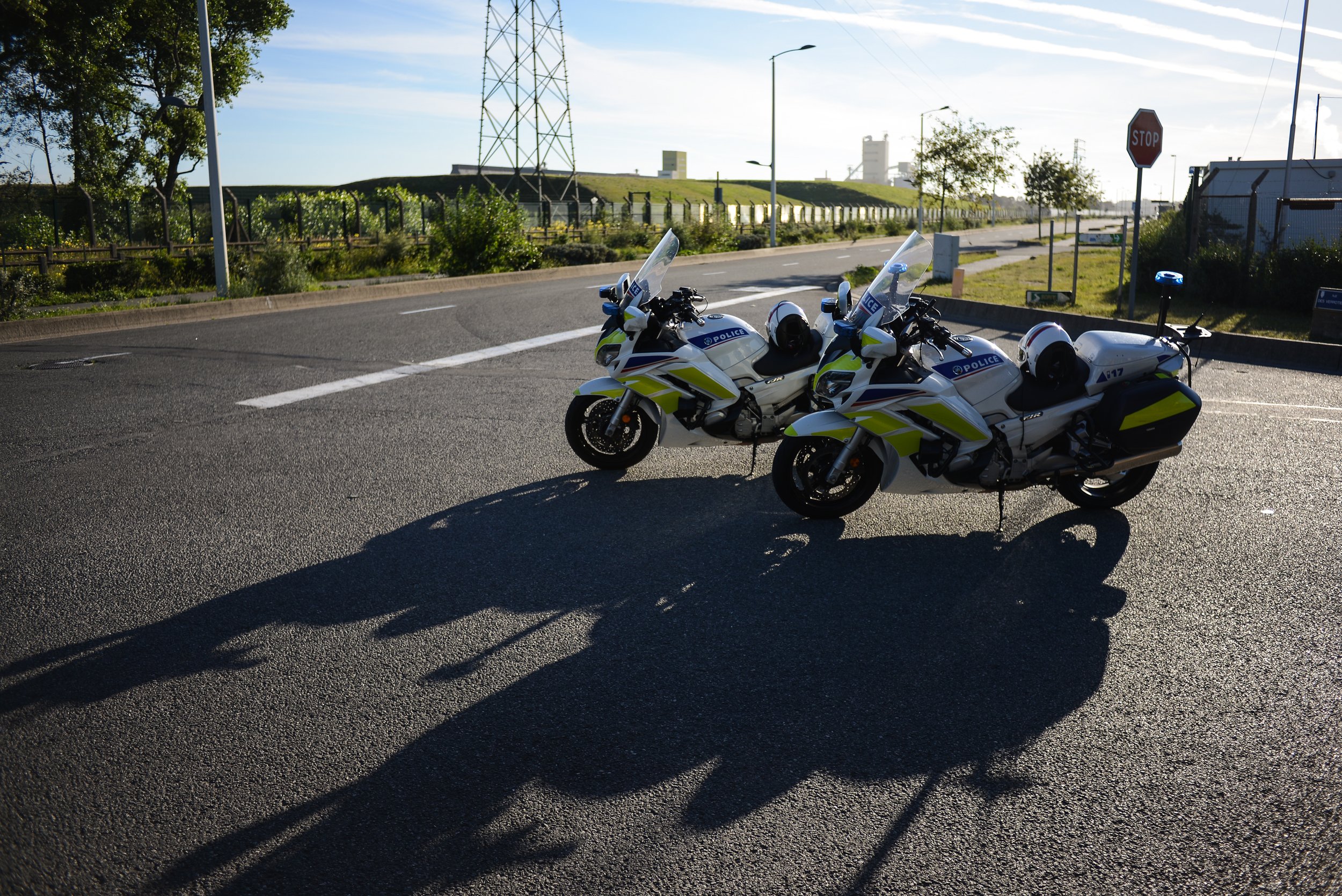
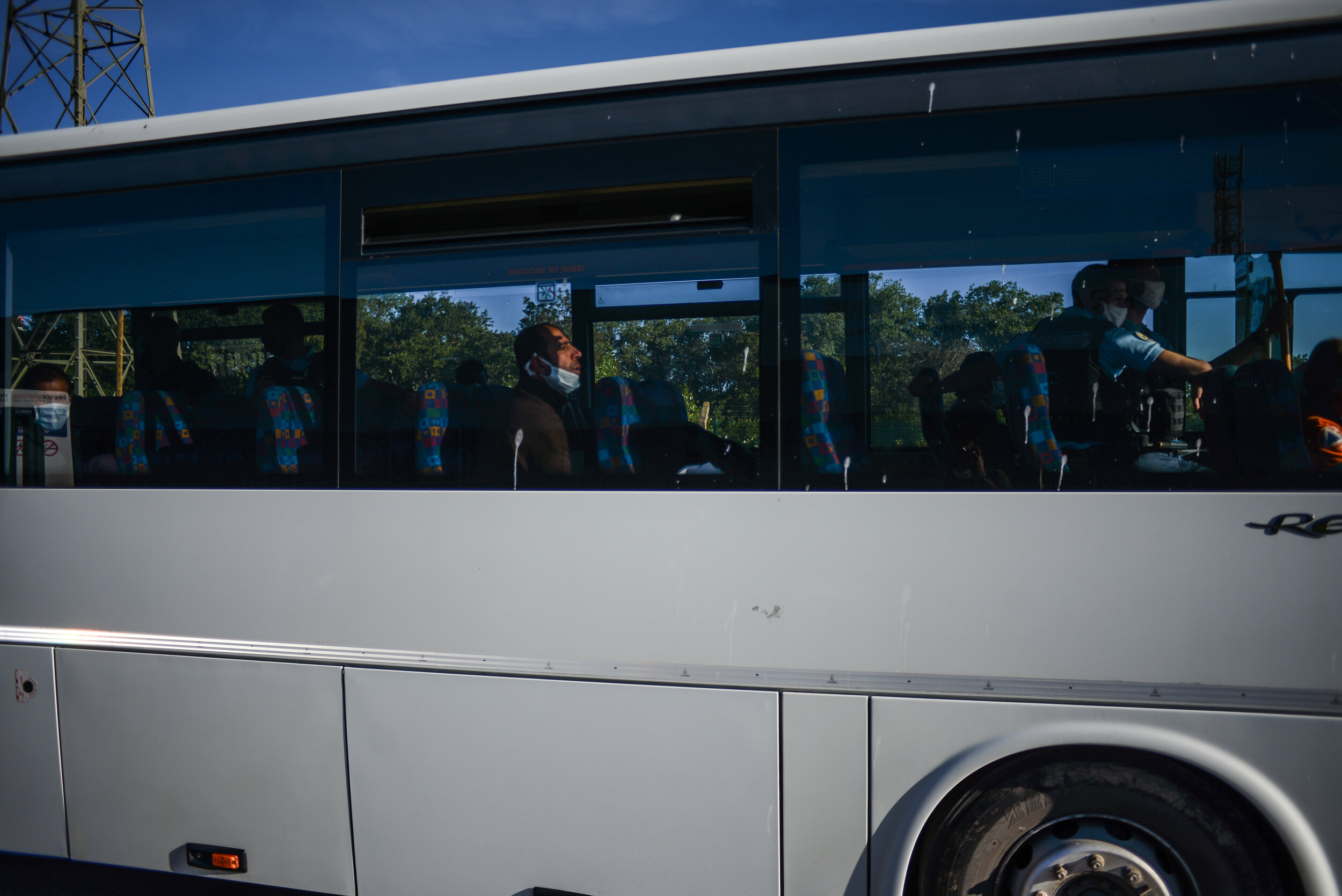
Life in Calais - Documenting the refugee crisis in Northern France (2020)
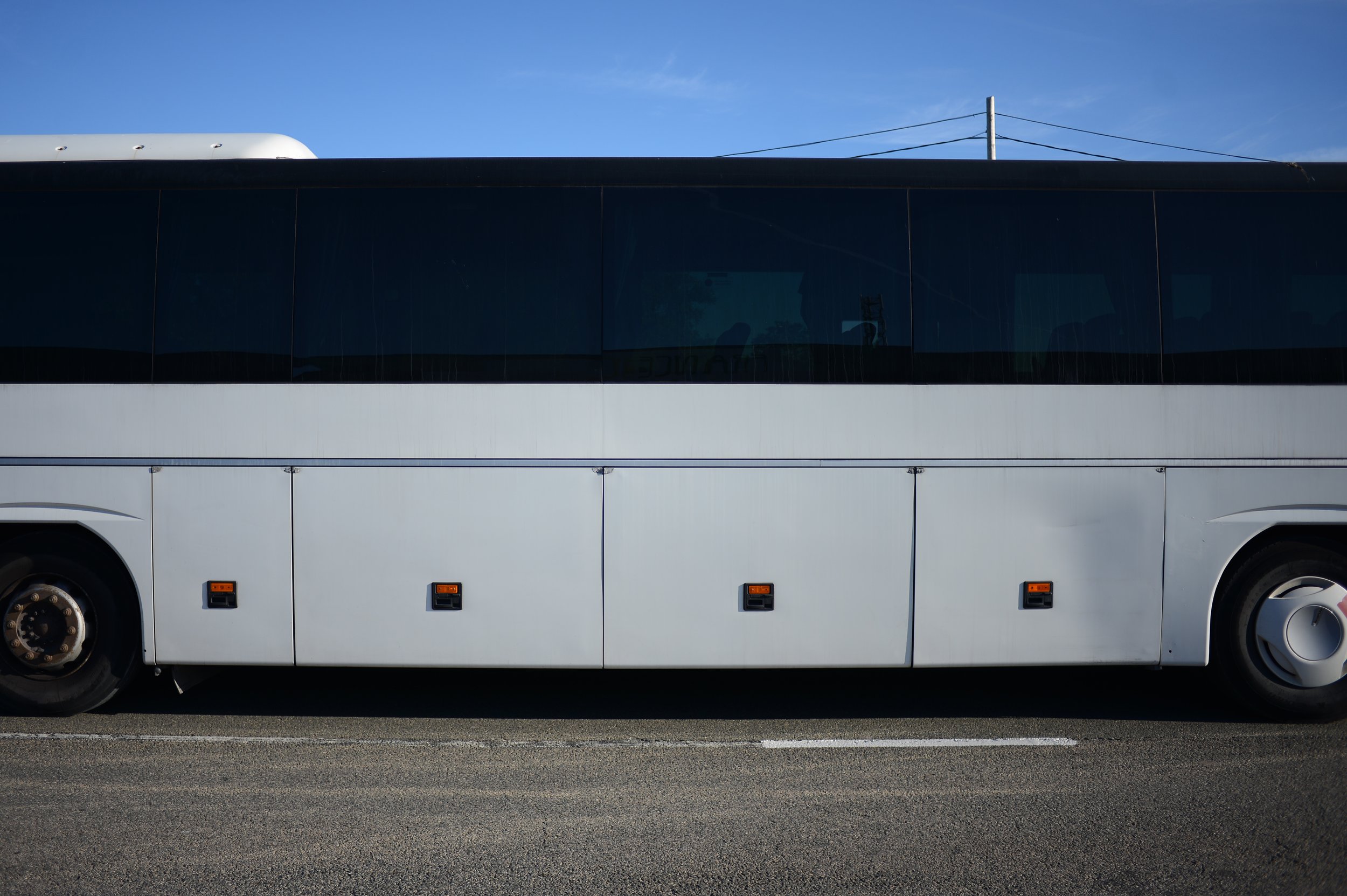
Refugees in Calais are apprehended by police during an #eviction and are forcibly put onto buses and shipped to unknown areas across France like livestock. Following that, any belongings left behind are burned or destroyed.
Communities are divided within an instant and of course, people make their way back the area, sometimes taking days, travelling by foot.
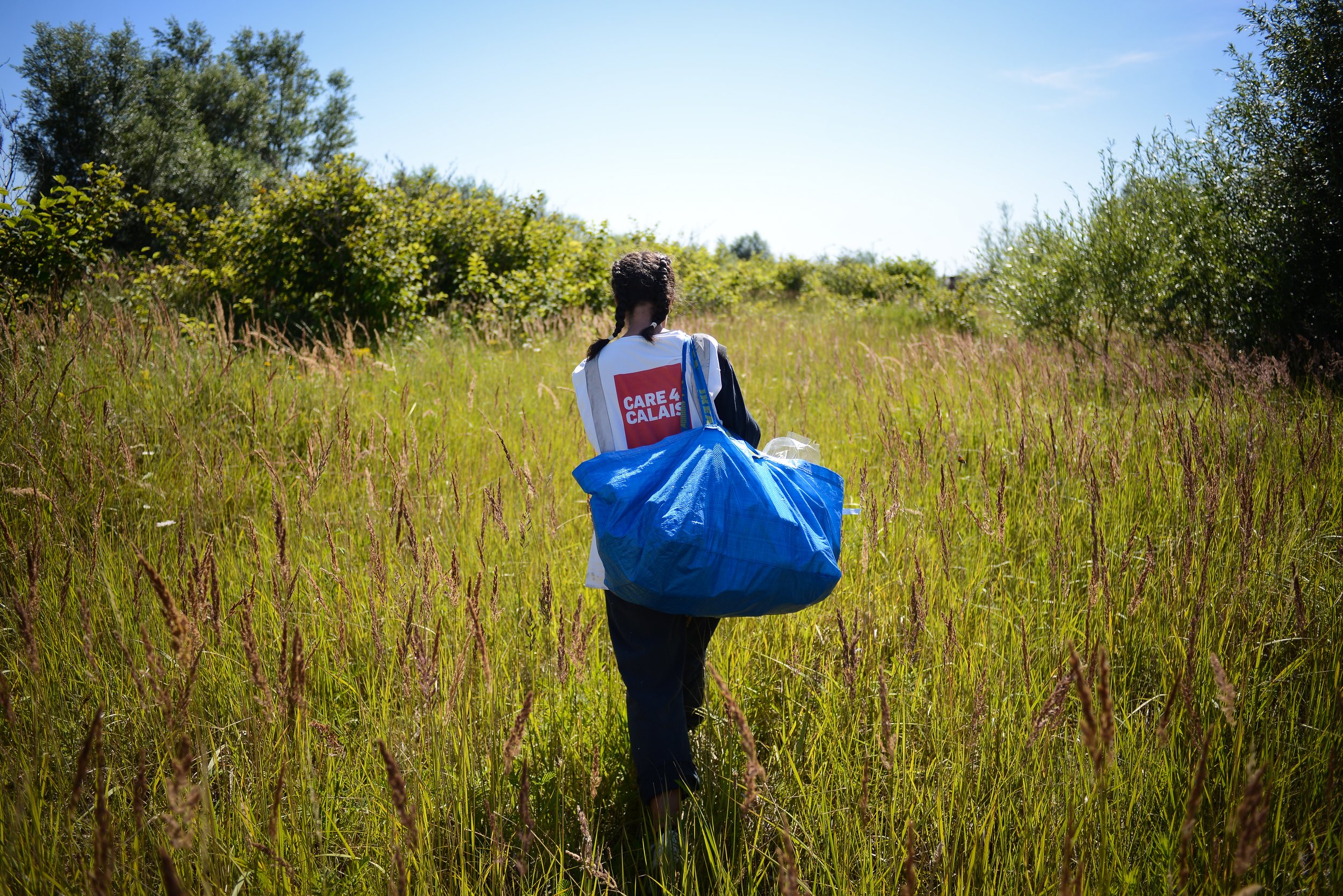
There are a variety of charities and organisations attempting to help the refugees in this part of France, one of the largest being Care4Calais .
I was fortunate enough to volunteer with them for a couple of weeks but some other volunteers I met there were working for months! Honestly, it was sometimes physically and emotionally draining but I can see why some of those volunteers decided to stay for those long lengths of time: it's wonderful work. Tiring, but honest. And the majority of the refugees you get the opportunity to meet are equally wonderful.
Care 4 Calais are always in need of donations, whether it be money, food and hygiene items or clothes and tents. But they also need people-power. Time volunteering can be the best donation a person can give.


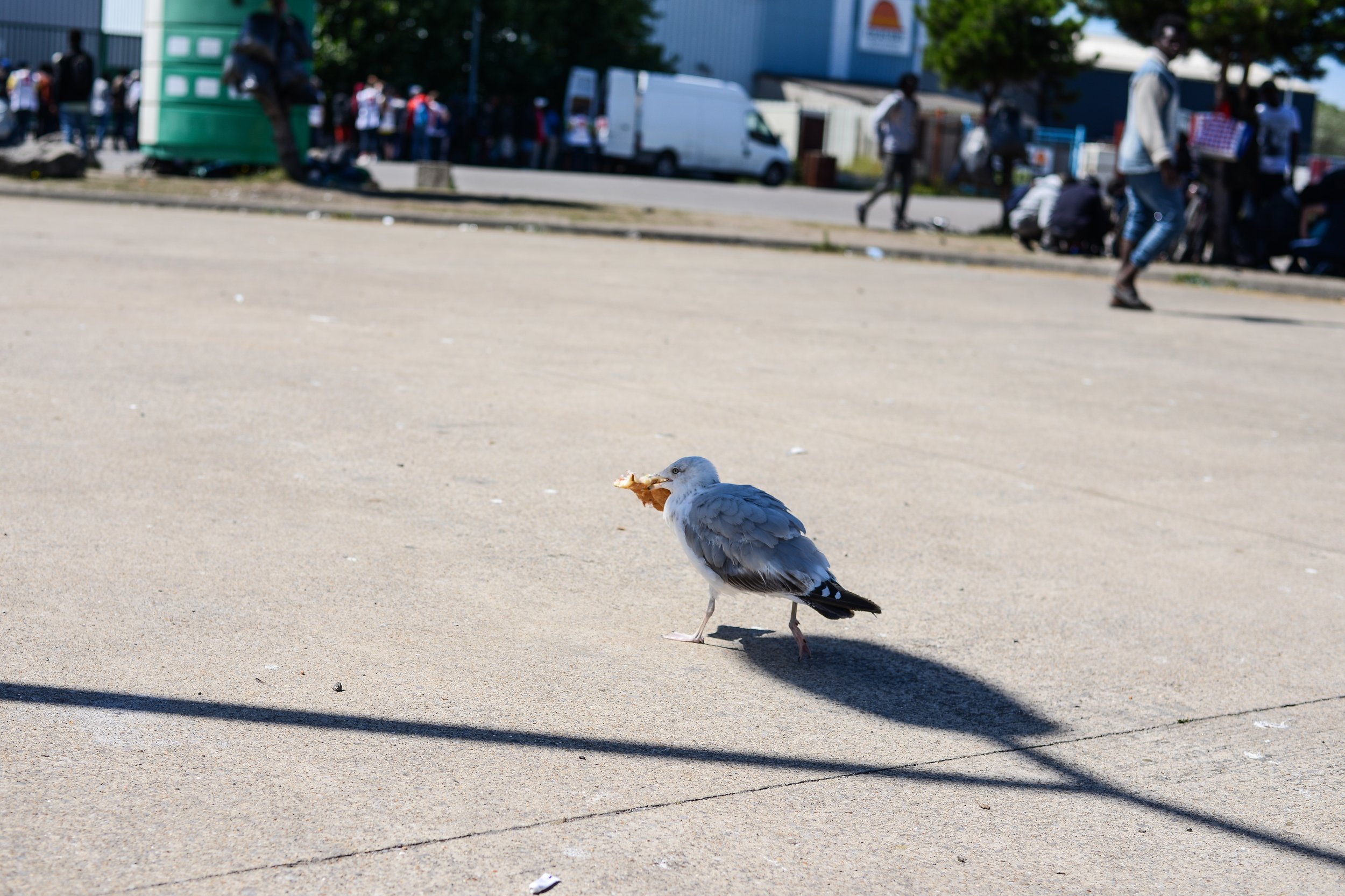
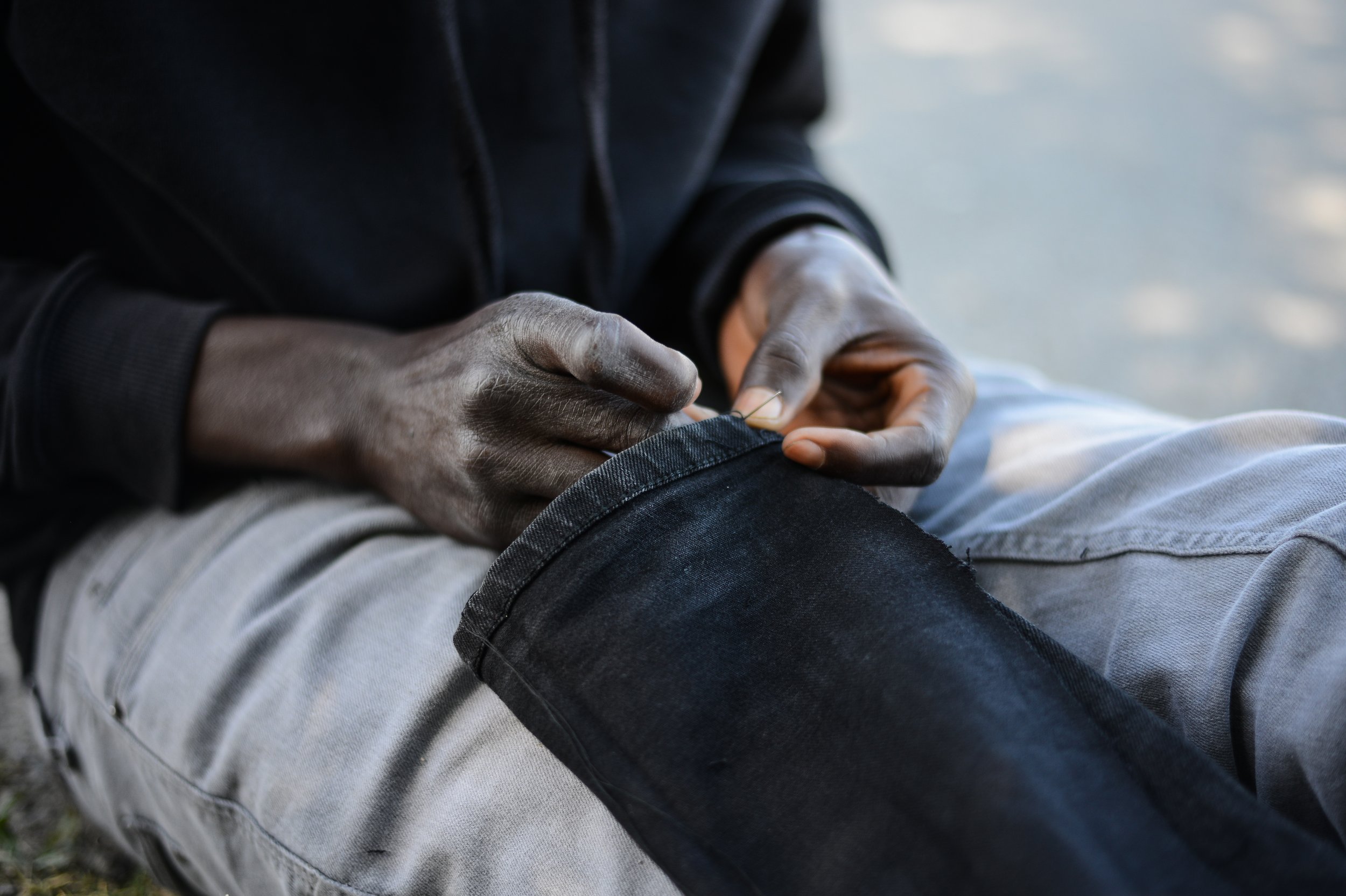
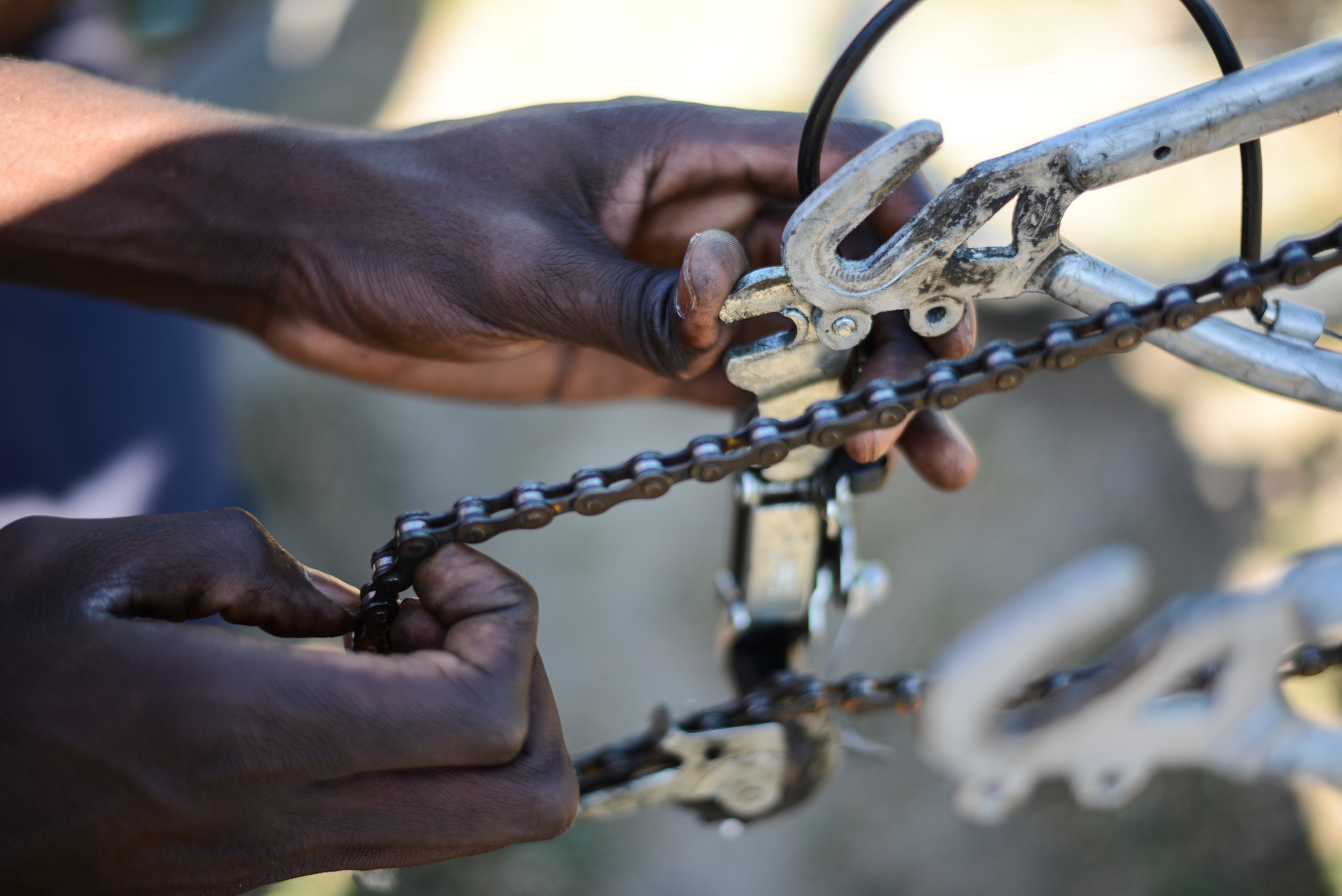
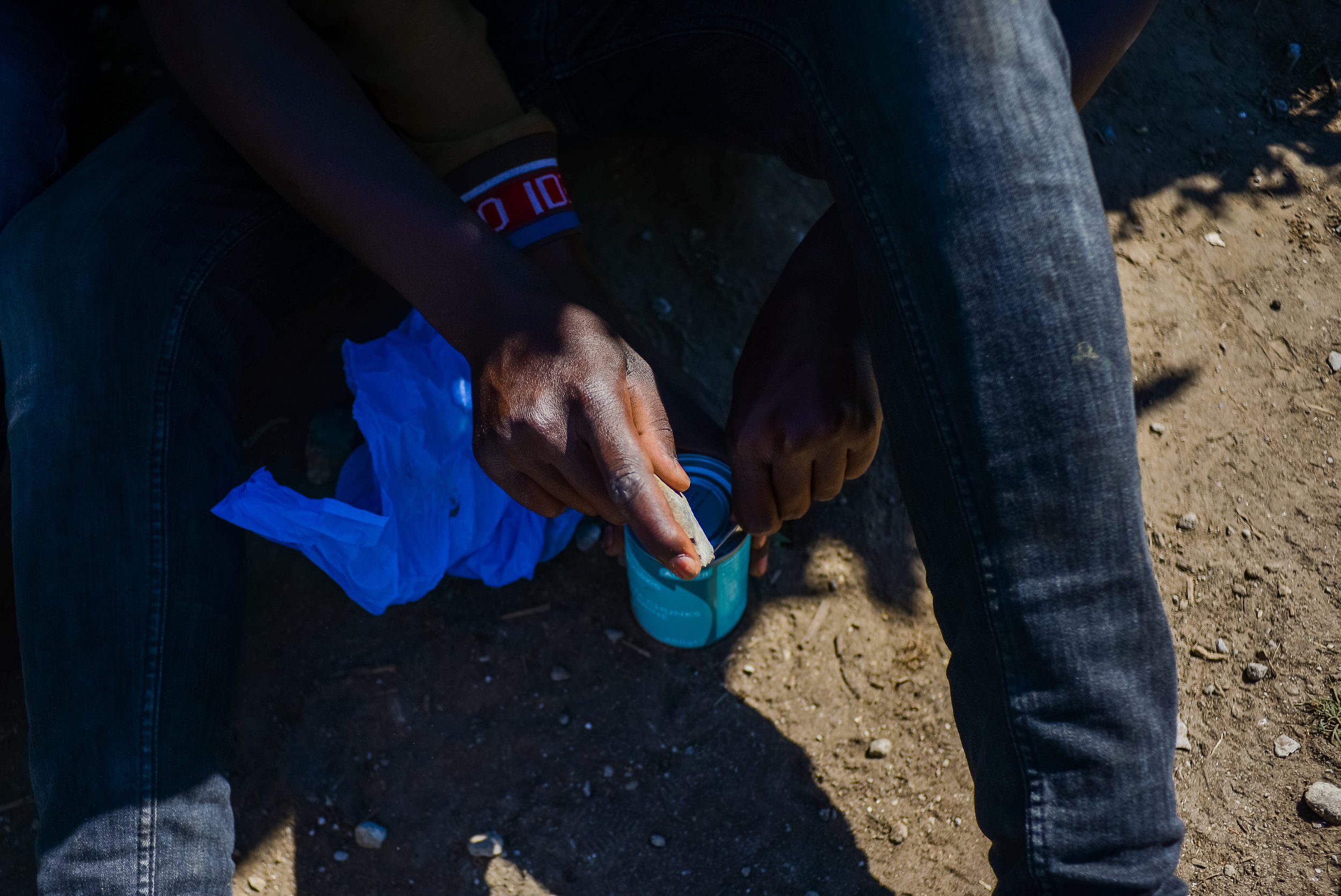
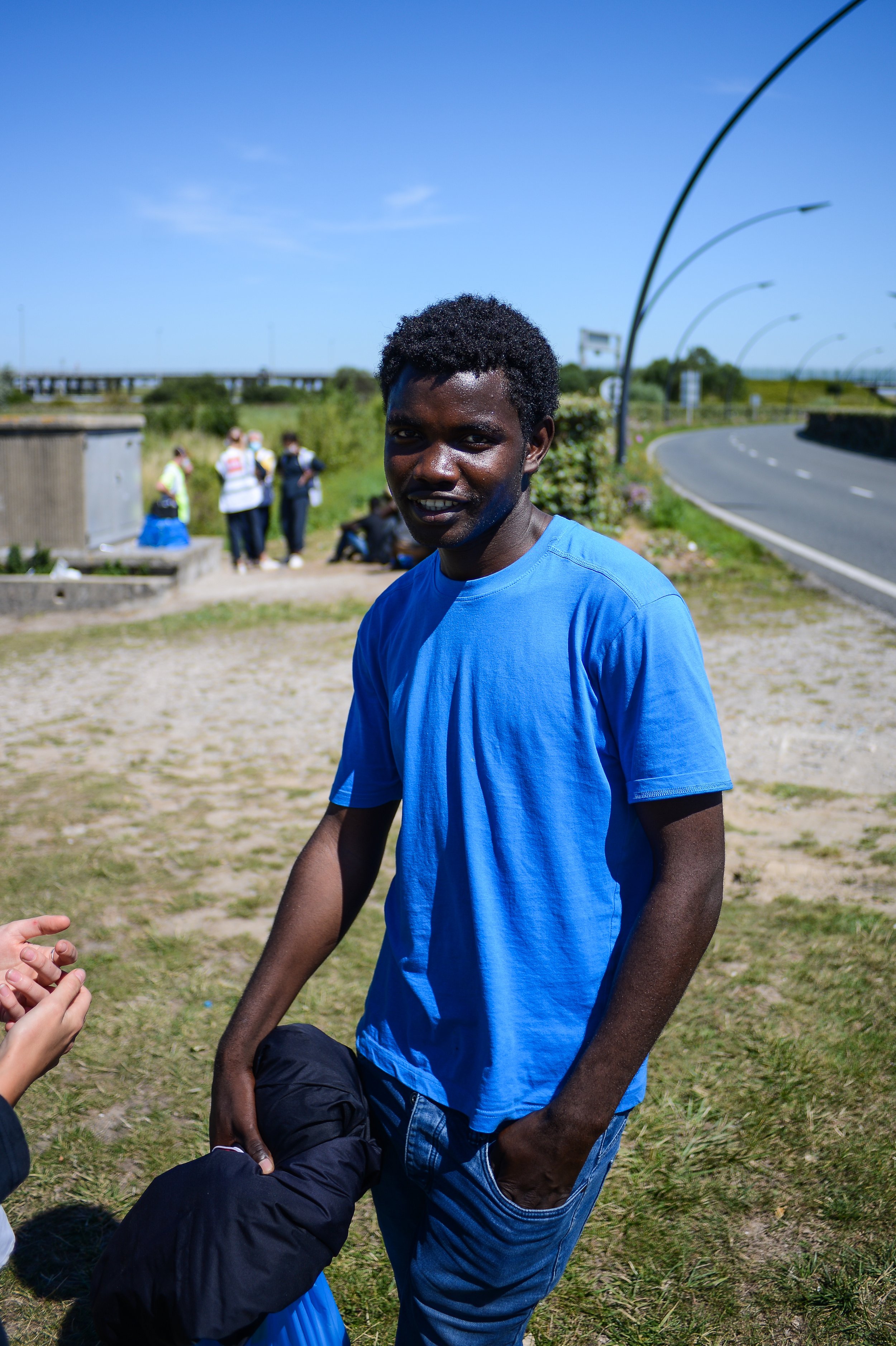




































































Photographing refugees in Calais produced a myriad of reactions. Some were very much against the idea of making a portrait, fleeing regime persecution. Other people want to pose, and would ask for the photos to be sent to them. Maybe a way to remember who they're with at this time? Who were those friends, those comrades, those shelters, those shoulders. Some of the people I met responded to my camera in ways I didn't expect, reacting as my friends and family would. Silly faces, hand gestures, funny postures. It made me question my own expectations. Of course they made silly faces! They're regular people just like those people at home. My mind had a narrative that was refreshingly unfulfilled. I feel blessed to have been afforded the opportunity to meet the people I did and blessed to have been allowed to attempt to document their experiences. But ultimately, I feel blessed I’m not a refugee. I'm glad I came to Calais. I didn't feel as though I did much, but I'm glad that I met these people. If only to say: I see you.
This amazing teenage boy from Niger (who was fluent in at least 3 languages) politely and calmly explained to me that his knee was injured by #police during the last big #eviction in Calais almost a month ago. They had shot him with a rubber bullet.
A long line of men, mostly from Sudan, queue patiently as they wait for local charity organisation @care4calais to distribute items (whether it be clothing, food or other essentials) .
Each refugee 'site' around Calais is home to a particular community. The people that reside within them are both surrounded by some form of familiarity and utterly alone.
At the 'Afghani Hospital' site, people wait for a variety of services, such as first-aid, haircuts and hot drinks.
Care4Calais prep everything for distribution and services from their warehouse in the morning, before meeting refugees in the afternoon.
A Kurdish man makes hot water for coffee on his make-shift stove in Dunkirk. I first saw him praying outside his tent which was beneath a bridge, next to railway tracks. He was smiley.
The Kurds don't have an official nation state. They're a people, with their own culture and language, spread mostly across Iraq, Iran, Syria and Turkey and have been persecuted for many years in the Middle East.
On the Dunkirk site there are lots of Kurdish families, some with very young children. These girls played for an hour or so with toys (their adult gave me permission to take these photos) and they seemed to have fun.
A difficult realisation that, after the playing, they would be going back to their tents in an unsecured area in Dunkirk, dangerous for adults, let alone infants.
It highlights the desperation of these people to find a new home for their families. No parent would willingly put their child at this much risk unless they absolutely had to.
Afghani men and boys living within the same site in Calais. I found the vast majority of the people I encountered here to be affable and communicative; almost playful. Some of them reminded me of friends at home.
A group of 5 boys from Afghanistan (the youngest 15 and the eldest 18) travelled together for approximately a year across Europe to reach Calais, mostly by foot.
They were friendly and welcoming but were bemused Care4Calais didn't bring a cricket set this time. I didn't know cricket was so popular in Afghanistan!
It was pretty shocking to see people so young travelling unaccompanied across such a distance, but they clearly supported each other in their make-shift camp.
Life in Calais - Documenting the refugee crisis in Northern France (2020)
Life in Calais - Documenting the refugee crisis in Northern France (2020)
Life in Calais - Documenting the refugee crisis in Northern France (2020)
'G' (an aid worker) and 'A' (a refugee) are crying with laughter over something A had said!
A group of workers and refugees were treated to dinner one evening and it was really heartening to witness the friendship between the two.
It served as another reminder that everyone around the table was a 'regular' person, enjoying food with friends and having a good time. A welcome respite, certainly, but a break from the narrative.
At the table, everyone was allowed to have what they needed, as it should always be. At the table, no one was simply surviving. During those brief moments together, we were all prosperous.
A group of Ethiopian men are forced to flee their camp and move elsewhere from the threat of a potential eviction the next day.
We gave them a lift across the town to reach the new site quickly. They didn't really know where they were going or have much in terms of belongings but there was a sense of confidence about them.
One of them told me he was really into Michael Bolton! They were cool.
Two refugees from Sudan, watched by aid workers, hop over a perimeter fence very early in the morning to evade police during an eviction.
By avoiding the police this time, they avoided potential violence towards them and certain extradition from this part of France.
The police were only 50m away and making their way through the woods. It was truly desperate to witness.
Evictions by police are common place among the sites in Calais.
This one took place in one of the main 'jungle' sites on the 30th of July at approximately 6.30am and involved police from 2 distinct departments (the CRS, once part-funded by the UK government) forcibly removing people from their would-be 'homes', before placing them on buses to be dumped in different regions across France and then burning any belongings that are left (sometimes all that these people have).
This time, the police put up an eviction notice a day before to let the refugees know they were coming which caused many to relocate to another site nearby where they thought they would be safe.
The people they did catch were loaded onto a bus before being the police headed to the other site where the refugees had relocated. This was unexpected. 3 or 4 more buses of people were caught by surprise, loaded onto buses and shipped out. No warning was given.
Thankfully, this eviction wasn't violent. Previous evictions have involved tear gas, people being arrested, hit with batons and sometimes shot with rubber bullets.
The police I encountered were polite, but assertive. Robotic almost. However, their silence and forceful nature was a metaphor and signifier of how the state views the refugees here. They'd prefer them to simply vanish. Dehumanised in this hostile environment.
Once areas are cleared of refugees, the state will often put up whole new fences with barbed-wire to keep people from returning. A harsh way of 'shepherding'. Brutal and symbolic.
Life in Calais - Documenting the refugee crisis in Northern France (2020)
Refugees in Calais are apprehended by police during an #eviction and are forcibly put onto buses and shipped to unknown areas across France like livestock. Following that, any belongings left behind are burned or destroyed.
Communities are divided within an instant and of course, people make their way back the area, sometimes taking days, travelling by foot.
There are a variety of charities and organisations attempting to help the refugees in this part of France, one of the largest being Care4Calais .
I was fortunate enough to volunteer with them for a couple of weeks but some other volunteers I met there were working for months! Honestly, it was sometimes physically and emotionally draining but I can see why some of those volunteers decided to stay for those long lengths of time: it's wonderful work. Tiring, but honest. And the majority of the refugees you get the opportunity to meet are equally wonderful.
Care 4 Calais are always in need of donations, whether it be money, food and hygiene items or clothes and tents. But they also need people-power. Time volunteering can be the best donation a person can give.